World Scout Committee 2017 - 2021 Triennial Report



World Scout Committee
2017 - 2021 Triennial Report

It is a movement, because it moves forward. As soon as it stops moving, it becomes an organisation and is no longer Scouting.
Robert Baden-Powell
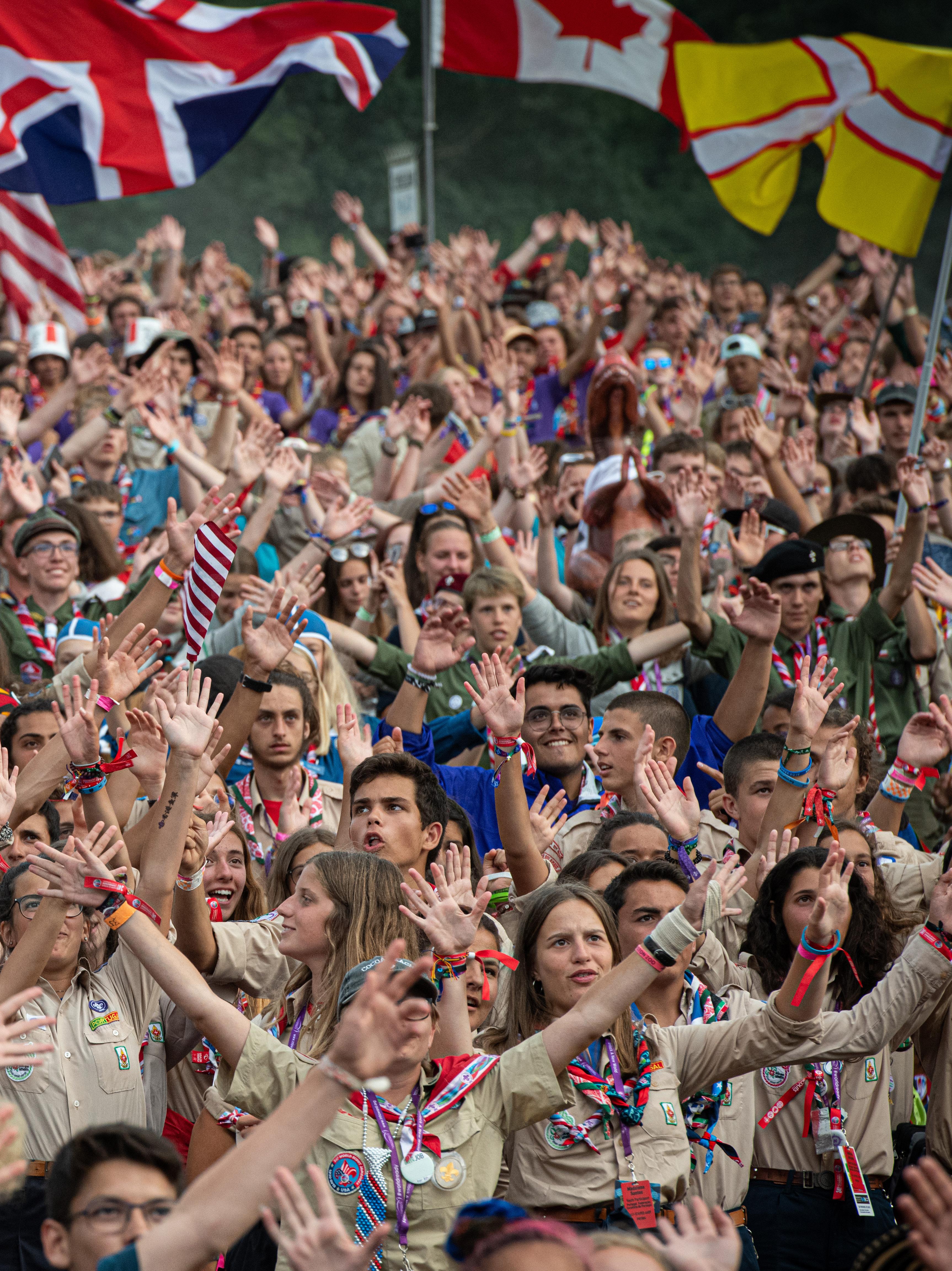
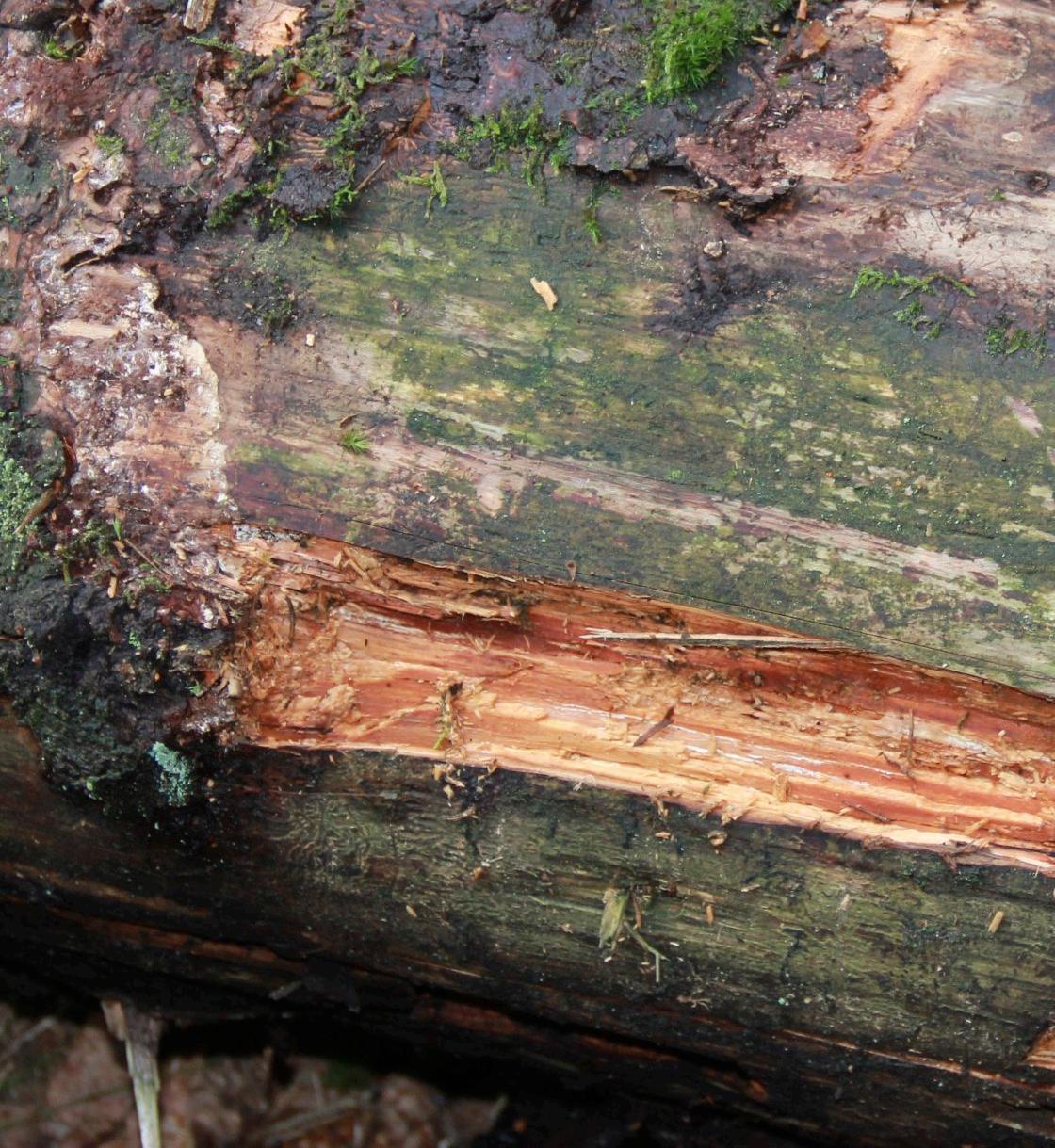
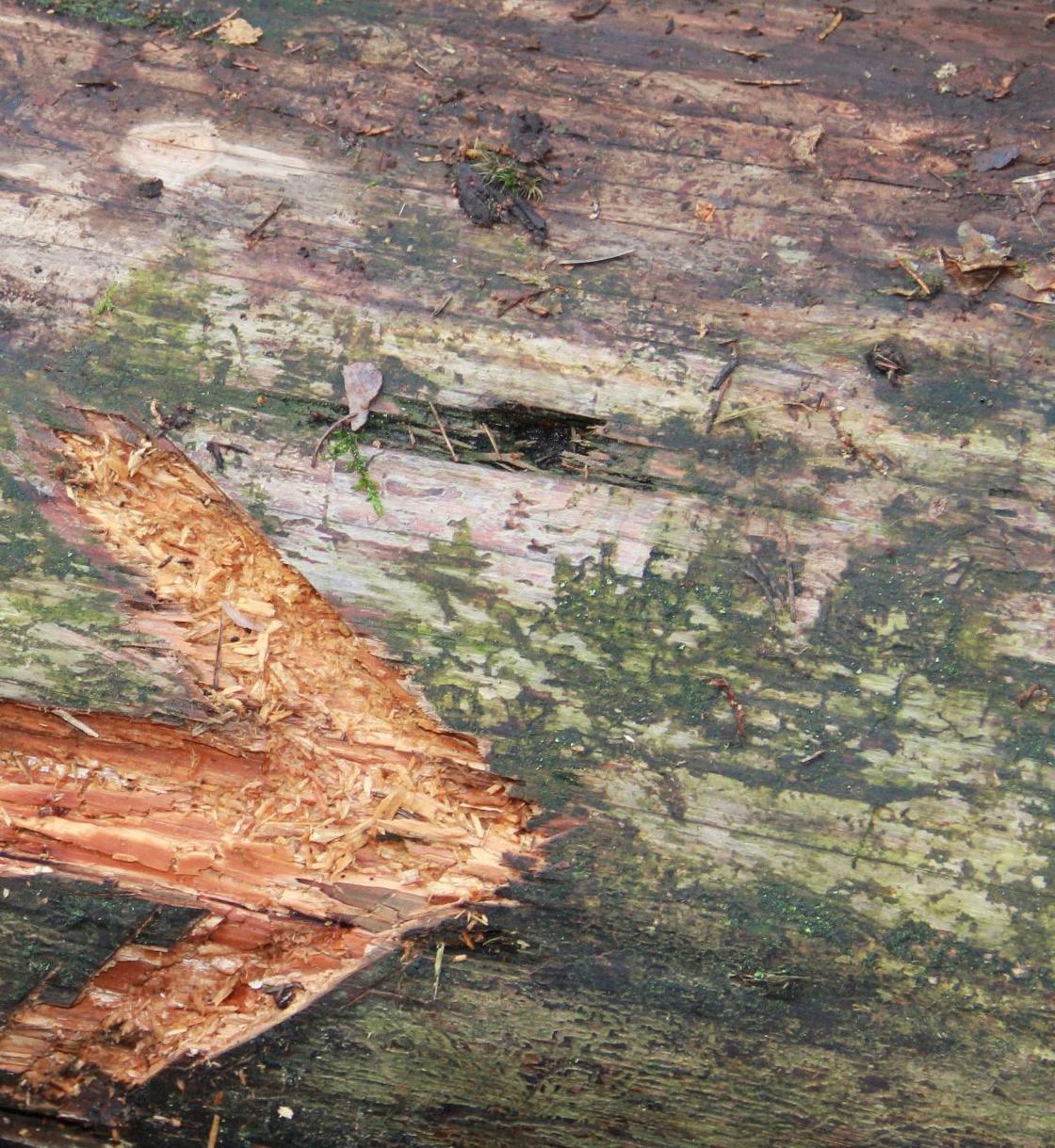

In 2017, the World Organization of the Scout Movement (WOSM) set out on an ambitious course following the 41st World Scout Conference in Baku, Azerbaijan with an aim to accelerate our efforts towards achieving Vision 2023, our Strategy for Scouting , to be the world’s leading educational youth movement. Over the course of the triennium, our global Movement stepped forward in extraordinary ways to demonstrate our collective strength, unity, resilience and impact.

This Triennial Report shows the progress we have made towards implementing the shared objectives of our World Triennial Plan, and we are proud to highlight the many successes that have enabled us to grow stronger together during the triennium. The report continues with the story of how the Scout Movement adapted during the COVID-19 pandemic, one of the most extraordinary challenges of our times. We look back at the achievements during WOSM’s 100-day emergency response at the onset of the pandemic, followed by the 20202021 WOSM Plan to support our 172 National Scout Organizations as they ensured Scouting continued to support young people and their communities around the world.
You will also find an overview of the various initiatives we undertook during the extended triennium, including a concerted effort to implement a global Growth Initiative enabling our Movement to reach a record number of 57 million Scouts and millions more beneficiaries, the culmination of 10 years of grassroots impact through the Messengers of Peace initiative, as well as the convening of the World Non-Formal Education Forum and the adoption of the Rio Declaration on Non-Formal Education. We also increased global recognition of our Movement as the leading educational youth movement through enhanced communications and a wide network of partnerships, and launched Scouts for SDGs as the world’s largest coordinated youth contribution towards the UN 2030 Agenda for Sustainable Development.


Not only are we pleased to report the progress made towards Vision 2023, but we are equally proud to note the progress in ensuring that the governance and management of WOSM are conducted to the highest standards with a commitment to continuous improvement. We focused on solidifying good governance principles and enhanced the engagement of volunteers, we adopted modern project management approaches to our work and acted with agility to the unexpected challenges presented by the pandemic, and we stepped up our support to World Scout Events, including a successful World Scout Jamboree and a reimagined JOTA-JOTI. In addition, we built the capacity to observe the highest ethical standards in our work, including by establishing a WOSM Ethics Committee for the first time, and we built WOSM Services to streamline support to Member Organizations resulting in over 500 services delivered to our members.


This has also been an extraordinary extended triennium full of major milestones and celebrations, including the 100th anniversaries of the Rover age section, World Scout Jamboree, World Scout Conference and World Scout Bureau.







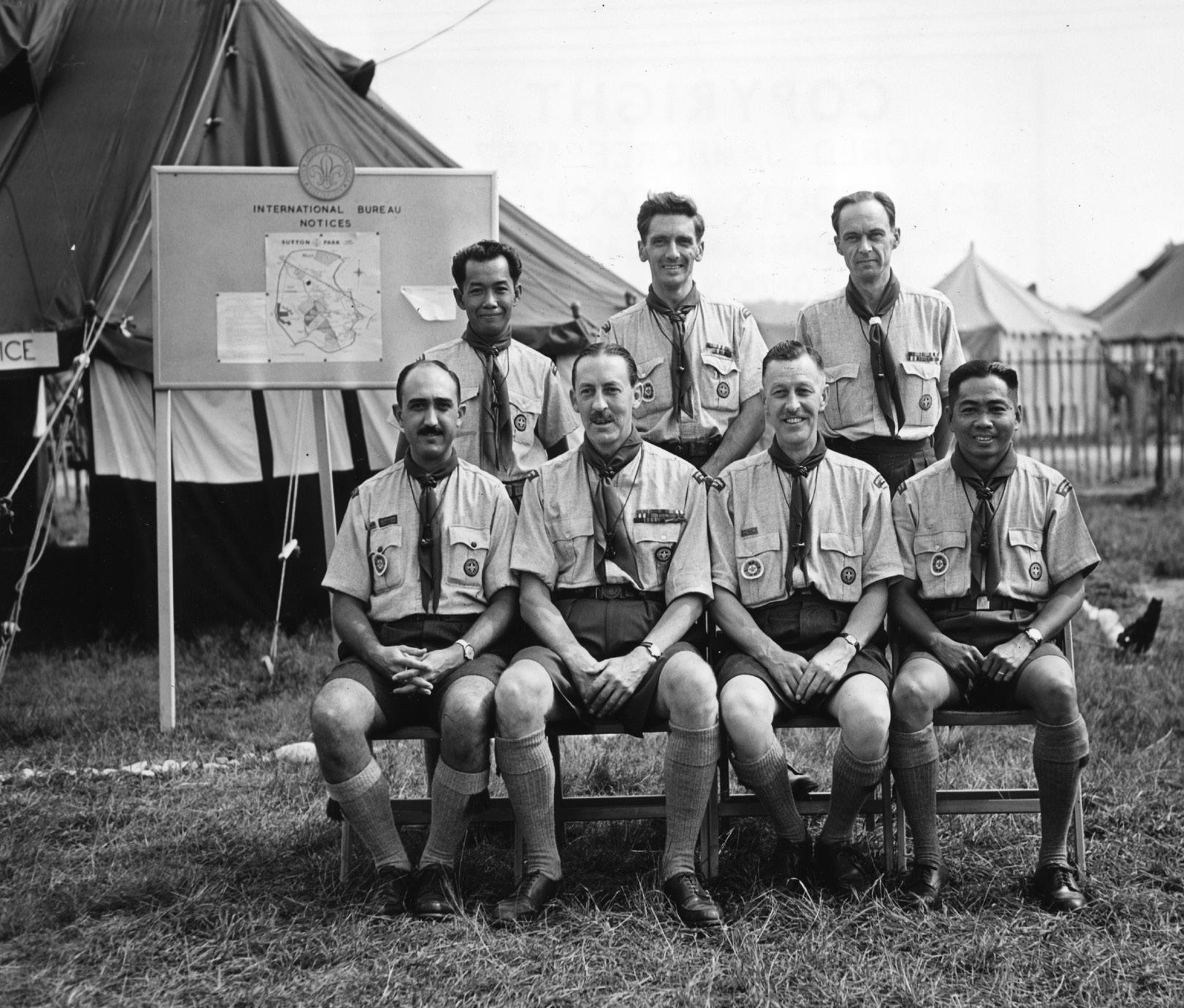
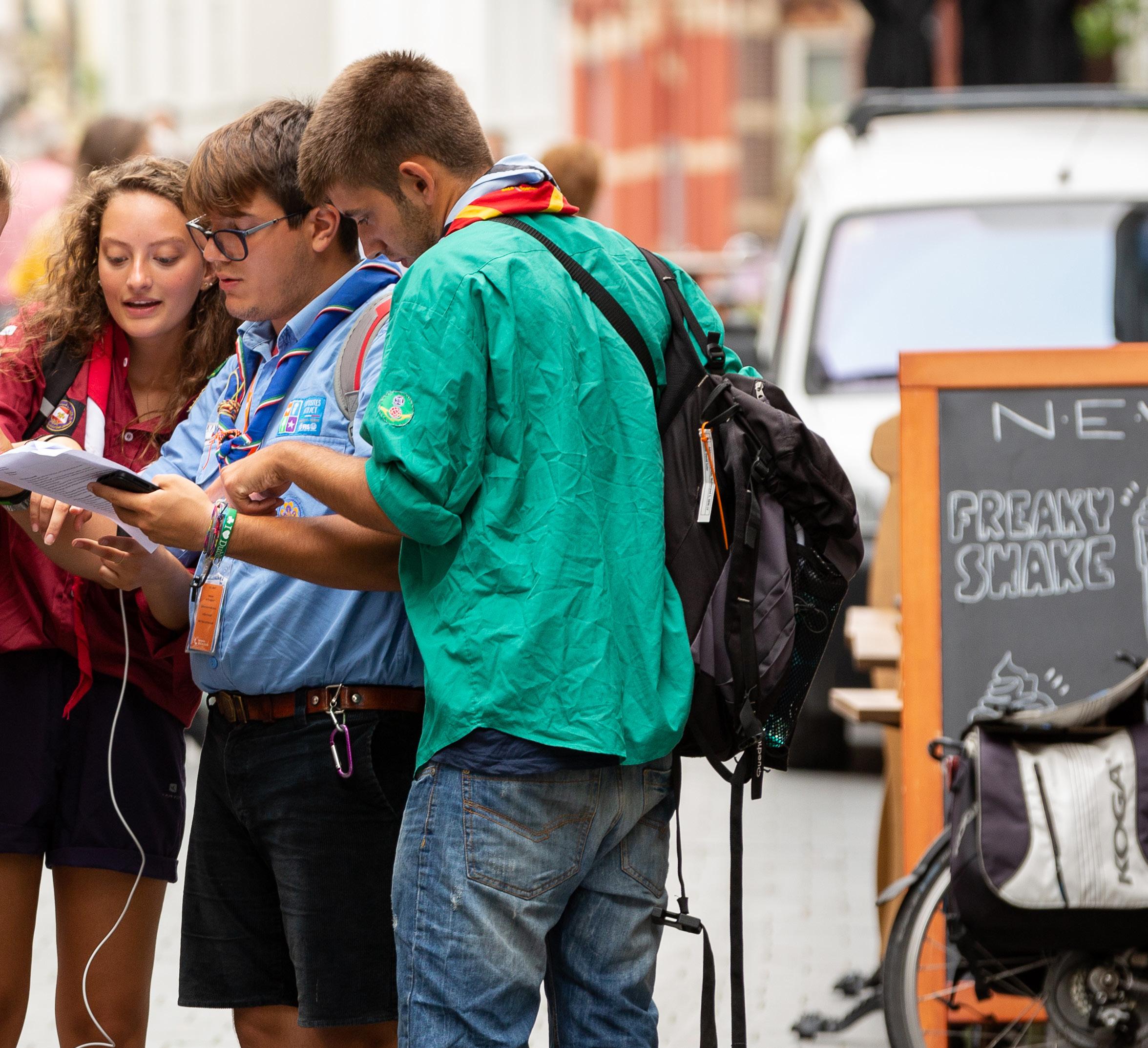
Through it all we made great strides in delivering on Vision 2023 and came together as a strong and united global Movement. As we look forward, we now have an opportunity to build on these remarkable efforts as we continue to enable even more young people and volunteers to be a force for good in their communities.
Yours in Scouting

 Craig Turpie Chairperson World Scout Committee
Craig Turpie Chairperson World Scout Committee
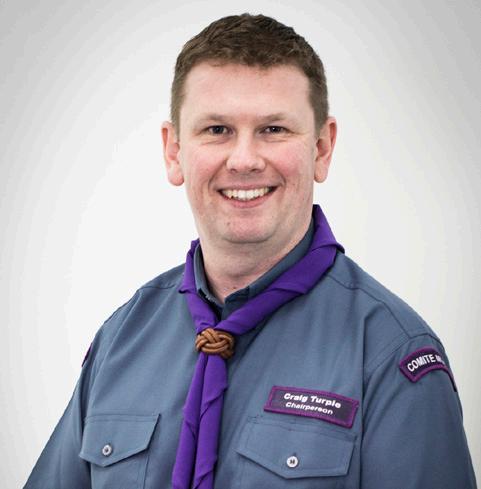
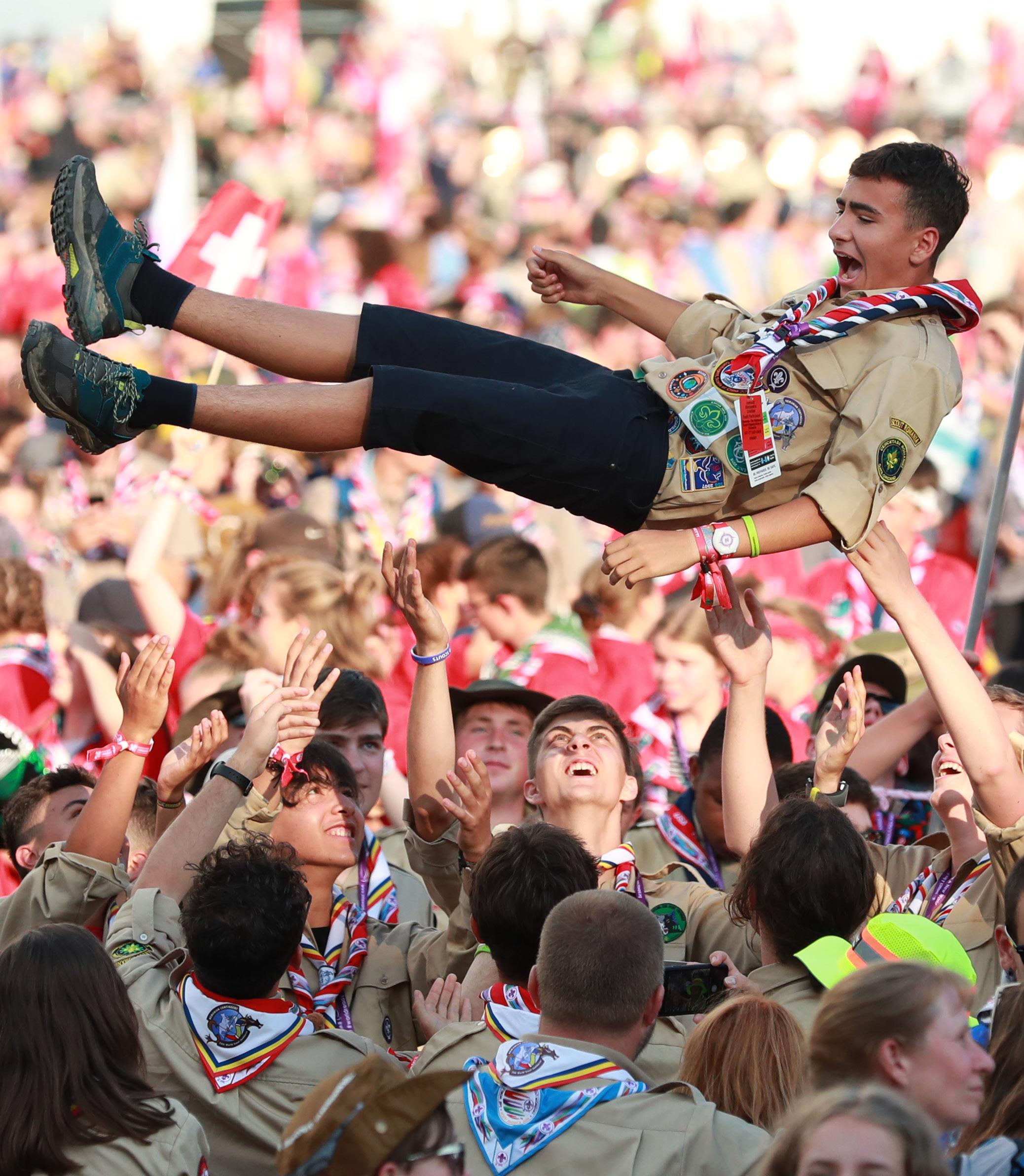
Four years ago we gathered in Baku to renew our collective commitment to advance our Movement towards Vision 2023. As we get ready for the 42nd World Scout Conference and 14th World Scout Youth Forum, we are pleased to share with you this report highlighting the breadth and depth of the work and impact achieved over the past period.

We can all be proud of the many ways we have served the mission of Scouting and overcame a number of challenges along the way. Our report offers you an overview of this extended triennium and adds an exciting second chapter on our three triennium journey to achieve the current Strategy for Scouting - Vision 2023.
Guided by the overarching pillars of Vision 2023 - Unity, Growth, Influence and Impact - you will note how we have increased our influence and impact, both internally and externally, while growing the Movement and solidifying its unity. Together, we did not shy away from tackling critical issues and we embraced opportunities for innovation and improvement in all aspects of our work.
We embarked on a journey to fully revamp our support to NSOs by providing a cutting-edge WOSM Services powered by a team of trained Consultants. WOSM Services features accessible resources and e-learning courses to provide our membership with necessary support and promote good practices across the Movement. Our digital transformation efforts led to a suite of digital solutions, including an upgraded membership portal and directory, learning zone library, educational initiatives platform and donation platform. During the triennium we delivered over 500 services, including services to potential new members to help them achieve WOSM membership and improve recruitment.
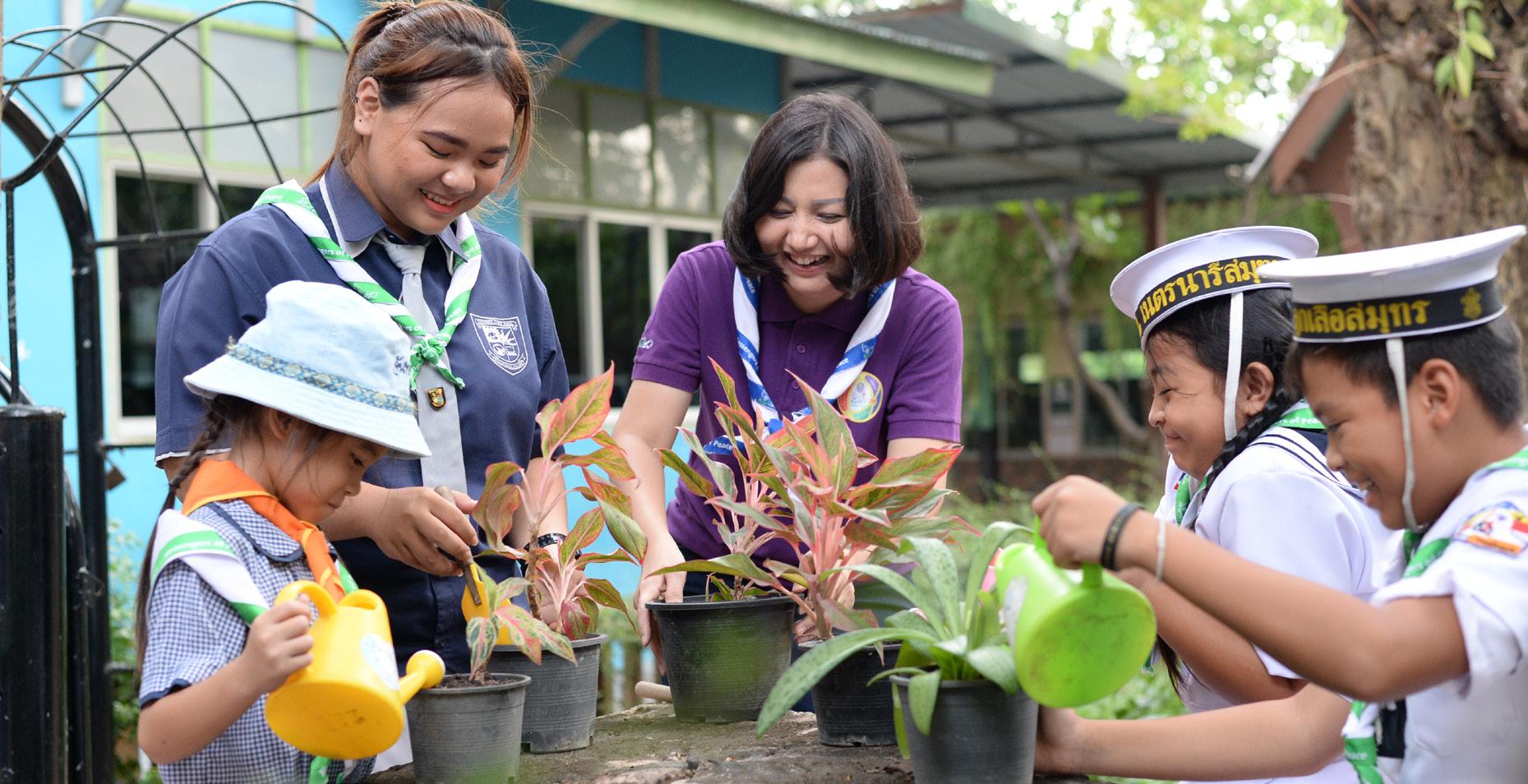
The triennium saw the redesign of a number of flagship products that set the standards, norms and policies for our Movement. We released an updated version of the Essential Characteristics of Scouting, one of Scouting’s most foundational educational resources, and we refreshed the Guide to Youth Programme in Scouting (GPS) to assist NSOs in the development and renewal of their national Youth Programmes. We also released the Scoutship marking a significant upgrade in how we support Adults in Scouting and updated the Wood Badge Framework. Together we increased our outreach through Regions to promote these new resources.

Our Messengers of Peace initiative celebrated its 10-year anniversary in 2021 and we delivered an incredible 2.3 billion hours of community service towards peace and sustainable development. We also launched Scouts for SDGs to mobilise 57 million young people in making the world’s largest coordinated youth contribution towards the Sustainable Development Goals (SDGs). In addition, we increased our focus on diversity and inclusion, advanced our work on gender equality, and launched the Earth Tribe as a new educational offering focused on environmental action.
We continued to widen our impact and increase global recognition of Scouting as the world’s leading educational youth Movement. Among the various initiatives and partnerships developed, we co-convened the first World Non-Formal Education Forum in Rio De Janeiro, Brazil and led the way on a new Global Youth Mobilization in collaboration with the Big 6 Youth Organizations and the World Health Organization to address the negative impact of the COVID-19 pandemic on young people, and support them to build back better.
WOSM continues to deliver some of the largest and most engaging World, Regional and national events for young people. In addition to the unforgettable 24th World Scout Jamboree in North America, we also worked to re-imagine JOTA-JOTI into the world’s largest digital Scout event promoting friendship and global citizenship education. During the triennium and across all Regions we delivered over 700 events and opportunities for engagement at all levels.
This triennium saw an overhaul of WOSM’s internal operations, driven by the World Scout Committee’s commitment to strategic governance and the World Scout Bureau’s revitalisation agenda. We rewired the Bureau, adopting Thematic Teams across Regions, and pioneered a more modern and agile approach to project management, working together with volunteers and putting a clear focus on serving the needs of NSOs. We also made a commitment to diversity and inclusion across our global workforce.

We moved to a more representative Senior Management Team and significantly increased the number of women in leadership positions. We also provided more opportunities for young people to join the Bureau by expanding our internship programme. Looking at our financial management, for the first time we developed a fully integrated approach across Regions to our budgeting process through a three-year Master Operational Plan. The reform made sure we better aligned priorities across our Regions and made more efficient use of our financial resources.
Despite the financial challenges caused by the pandemic, WOSM with the support of the World Scout Foundation provided provisions to support NSOs financially, and we reported balanced budgets throughout the triennium. And as part of prudent financial management, we made the necessary budget cuts to weather the income shortfalls and impacts of the COVID-19 pandemic.
In conclusion, we can confidently report that our Movement is on track towards Vision 2023 and beyond. Our unity is stronger, our impact is evident, our influence is making a difference, and our growth is a reminder that the world needs more Scouts. As we transition to the last triennium of Vision 2023, let us build on this momentum to create the much needed positive change that the world so urgently needs
Yours


The 2017-2020 Triennium marked the “middle” triennium of Vision 2023, our Strategy for Scouting. The overall goal the World Scout Committee (WSC) set for itself at the outset was to significantly strengthen WOSM’s strategic focus on achieving sustainable growth and deepening Scouting’s impact and influence –within and outside of the Movement.
This triennium also saw an overhaul of WOSM’s internal operations and processes, driven by the WSC’s commitment to strategic governance and the World Scout Bureau revitalisation agenda, resulting in initiatives such as WOSM Services, an agile project-driven approach with a clear focus on serving the needs of National Scout Organizations (NSOs).

WOSM experienced strong growth throughout the triennium, adding new youth members and volunteers at all levels of Scouting, and providing an opportunity for even more young people to experience Scouting’s transformative non-formal educational Youth Programme. We welcomed three new Members Organizations to the Movement this triennium, bringing our membership to a total of 172 NSOs, representing over 57 million Scouts i n more than 220 countries and territories worldwide.
This is excellent progress in spite of the COVID-19 pandemic which had a significant impact on Scouting’s membership around the world. As a consequence we enhanced our support on membership retention and recovery, boosting local efforts through the Re-Energising Scouting Fund. Our priority remains on reaching our goal of growing the impact of the Movement to 100 million by 2023, as we anticipate a heightened interest of young people in outdoor activities post-pandemic. We are committed to maintaining a strong focus on growth as we work together to offer better Scouting to more young people.

The 2017-2021 extended triennium saw key resources developed and renewed to strengthen our core educational support to NSOs. An updated version of our foundational educational resource the Essential Characteristics of Scouting was released, as well as the Guide to Youth Programme in Scouting (GPS), which now serves as World Scouting’s core toolkit to assist NSOs in the development and renewal of their national Youth Programmes.
In the Adults in Scouting area, the release of Scoutship represents a significant upgrade in bringing all our resources available to support volunteers in Scouting under one easy to navigate micro-site. The World Scout Academy, our continuous learning opportunity for Adults in Scouting run over the course of eight weeks in July and August 2020, proved to be an excellent ground to test many new formats of training and learning for adults.
A series of educational initiatives were released, providing NSOs with programme offerings to equip young people with the life and leadership skills to tackle some of the most world’s most pressing social, economic and environmental challenges.
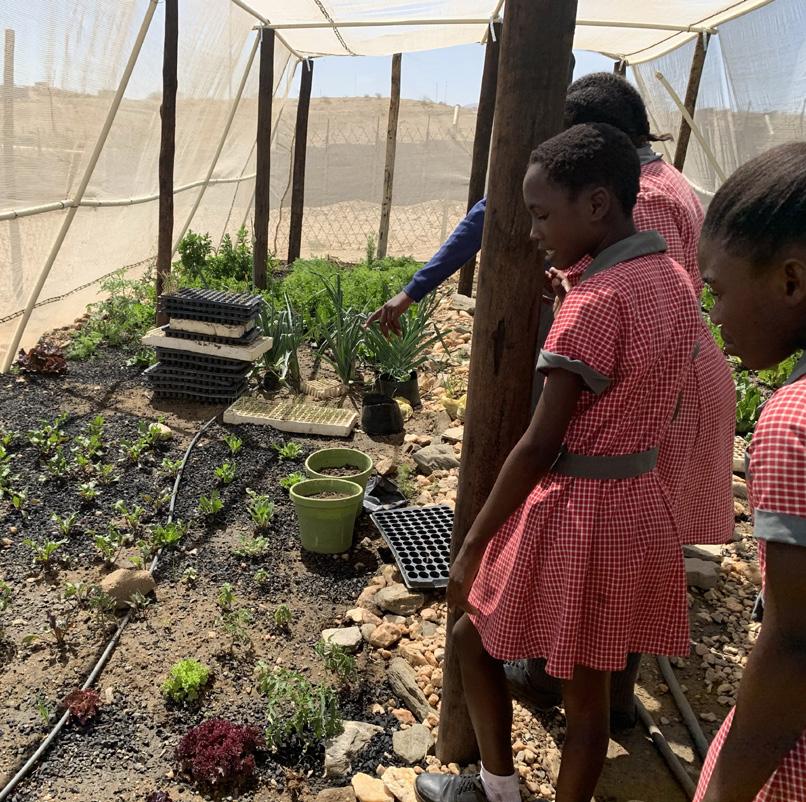
Through the Better World Framework, Scouts for SDGs, Earth Tribe, and other key global, regional and local initiatives, we mobilised millions of Scouts in delivering community service projects and actions to make the world’s largest youth contribution to the Sustainable Development Goals (SDGs) - improving the sustainability of our planet, promoting peace and tackling inequality along the way.
The Messengers of Peace initiative celebrated its 10-year anniversary in 2021. Over the past decade, Messengers of Peace has involved nearly all NSOs, and inspired more than 16 million projects and actions totalling over 2 billion hours of community service towards the SDGs. This incredible impact has been made possible thanks to the generous support of a $27 million grant from the Kingdom of Saudi Arabia to fund Messengers of Peace, which has helped to transform Scouting at all levels across the Movement.
Scouts and NSOs were also active as global citizens in responding where their communities needed them most - mobilising in the aftermath of natural disasters, acting as first responders during humanitarian crises, engaging with refugees and internally displaced persons, and leading local activities and dialogue to promote peace.
This past year also saw millions of Scouts and volunteers worldwide going above and beyond to serve their communities as part of local COVID-19 pandemic response and recovery efforts. Young people led initiatives to coordinate health and safety campaigns, sew face masks, deliver necessities to those in need, and install hand washing stations across cities.

Following the adoption of the World Safe from Harm Policy, support in this area increased significantly resulting in more than 50 trained WOSM Consultants and dedicated services delivered to over 100 NSOs. A series of Safe from Harm resources and e-learning courses were launched, both for use within WOSM at World and Regional events, as well as easy-touse materials for Scout Leaders to adopt within the Youth Programme and a self-assessment tool for NSOs.
This triennium saw also the establishment of the WOSM Code of Conduct, with ancillary codes for conduct during elections and bidding for Scouting events. We further established an Ethics Committee and updated our complaints policy to ensure an impartial handling of any complaints and infringements of our Codes, adhering to the highest ethical standards befitting for a world organisation.
Given the critical importance of this area of work, the WSC also moved Safe from Harm as a key priority for the next triennium through the Draft 2021-2024 Triennial Plan, a dedicated Draft Resolution, and a proposal for Constitutional Amendment.


This triennium our Movement came together in so many ways through good times as well as challenging moments. One of the unforgettable highlights was the 24th World Scout Jamboree, a world-class event hosted by the United States, Canada and Mexico that united over 45,000 young people and volunteers from more than 150 countries. Portions of the programme were streamed live online to increase the reach and participation in the Jamboree around the world.
The format of JOTA-JOTI, our largest World Scout event, was also significantly upgraded over the past triennium, with a full new programme overhaul, live-streaming of sessions and a host of new partner content. Both a Special Edition of JOTI in April 2020 at the onset of the pandemic, as well as the annual 2020 edition cemented JOTA-JOTI as the world’s largest digital Scouting event promoting friendship and global citizenship education, with over three million young people from more than 200 countries and territories participating.
Significant work was also carried this triennium through the Task Force on Evolving the World Scout Conference and Youth Forum, resulting in a detailed proposal being put forward for consideration at the 42nd World Scout Conference to evolve the current events with a new integrated Conference format that aims to strengthen youth involvement and diversity throughout its approach.
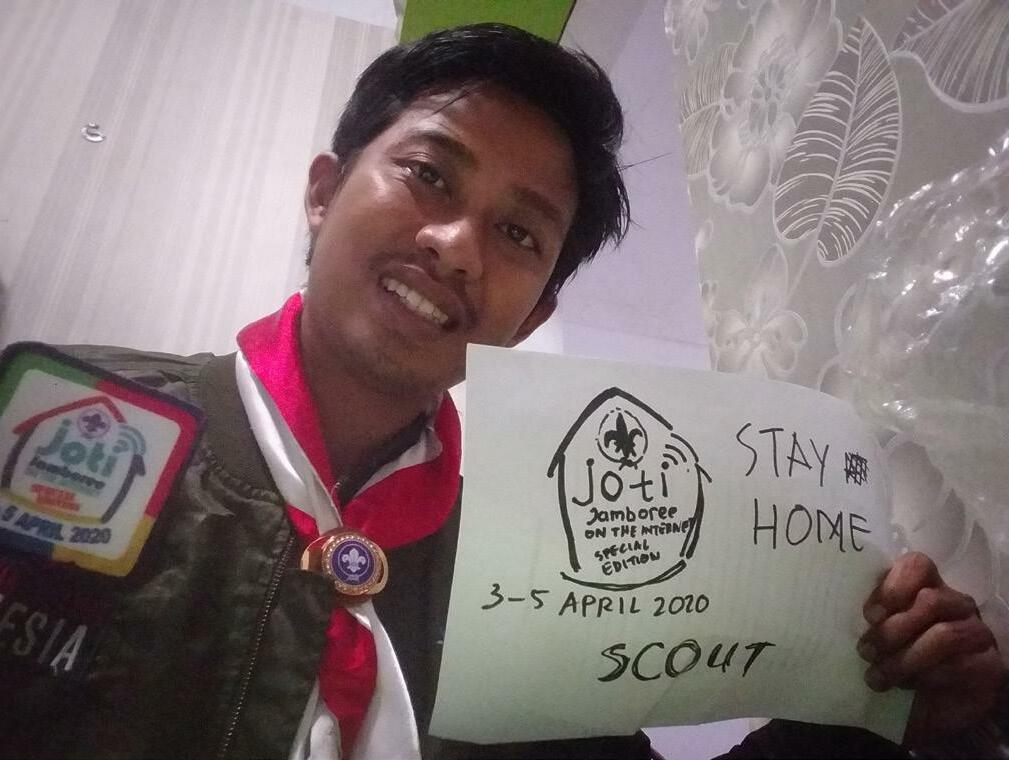
World Scouting continued to enhance its external partnerships through a number of different ways. We teamed up with UN Environment to support action in the fight against plastic pollution through the Earth Tribe’s new Tide Turners Plastic Challenge. The World Scout Bureau and WWF also launched the Champions for Nature Challenge designed to inspire Scouts to connect with nature and take action for the environment.
We continued to explore other partnerships and collaborations with organisations such as UNHCR, UNFPA, KAICIID, UN Volunteers, Office of the Secretary-General’s Envoy on Youth and UN Special Representative of the Secretary-General on Violence against Children.
Finally, we continued to maintain strong relationships with other key WOSM partners such as the World Association of Girl Guides and Girl Scouts, Kandersteg International Scout Centre, as well as organisations that hold Consultative Status with the WSC, and provided mutual support to each other during the pandemic.

Further increasing the visibility and influence of Scouting on the world stage was also a highlight of the triennium. From the Nairobi Summit on ICPD25 focused on population and development to the 2019 Web Summit in Lisbon, WOSM was active in new spaces to increase the profile of Scouting as the world’s leading educational youth movement.
World Scouting built a global network of 12 trained youth representatives to be the face of our Movement and advance WOSM’s advocacy efforts through participation in global events. We also welcomed Bear Grylls as Chief Ambassador of World Scouting who helped boost Scouting’s public image and inspired more young people and volunteers to get involved in Scouting.
In 2019, WOSM held the first World NonFormal Education Forum bringing the nonformal education sector together and launching an ambitious agenda to invest and innovate in non-formal education solutions for youth development. Building on this success, a new Global Youth Mobilization led by WOSM and the Big 6 Youth Organizations in collaboration with the World Health Organization, also convened young people together through a Global Youth Summit i n 2021, and is investing in scaling up youth-led solutions to the COVID-19 pandemic.
We are also transforming the way we operate as a global Movement by strengthening connections between our Regional Support Centres and pioneering a fresh, service-oriented approach to the way we serve and support NSOs through WOSM Services.
Since the launch of WOSM Services in 2018, a total of 518 Services have been delivered across 13 support areas to more than 125 NSOs, equipping them with the necessary tools and resources to develop growth strategies, implement Safe from Harm policies and practices, leverage partnership opportunities, and innovate their Youth Programmes.
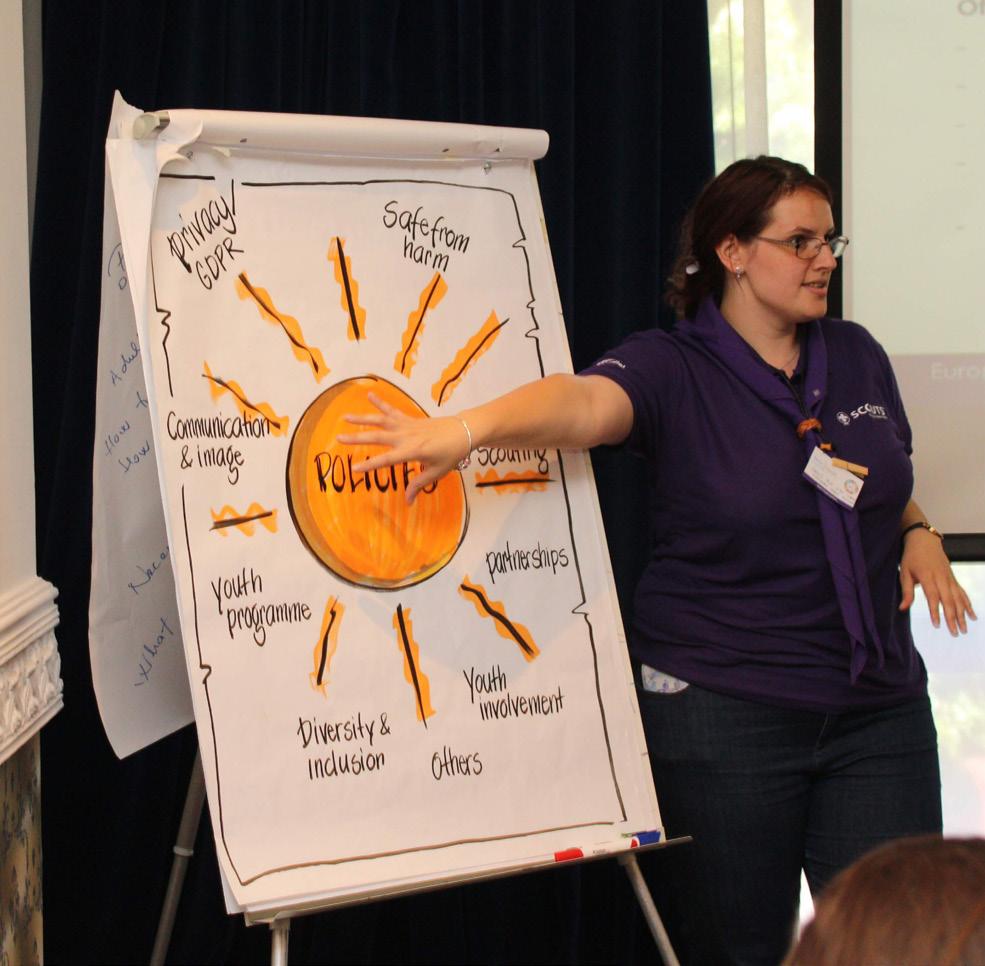
More than 200 WOSM Consultants across all Regions were trained to offer capacitystrengthening services to Member Organizations, and a library of more than 700 resources, best practices, publications, guides, toolkits and e-learning courses in multiple languages are available online to support the delivery of Scouting at all levels.

Our approach to strengthen the capacity of NSOs over the past triennium focused on championing an agenda for growth and providing direct tailored support to over 30 high-potential NSOs over an extended period of time.
In addition, hundreds of workshops, seminars and trainings took place at World and Regional levels since the last World Scout Conference in Azerbaijan. Through GSAT, WOSM’s Quality Standard, over 120 NSOs are now assessed providing WOSM with a very detailed picture of capacity across the Movement enabling targeted support.

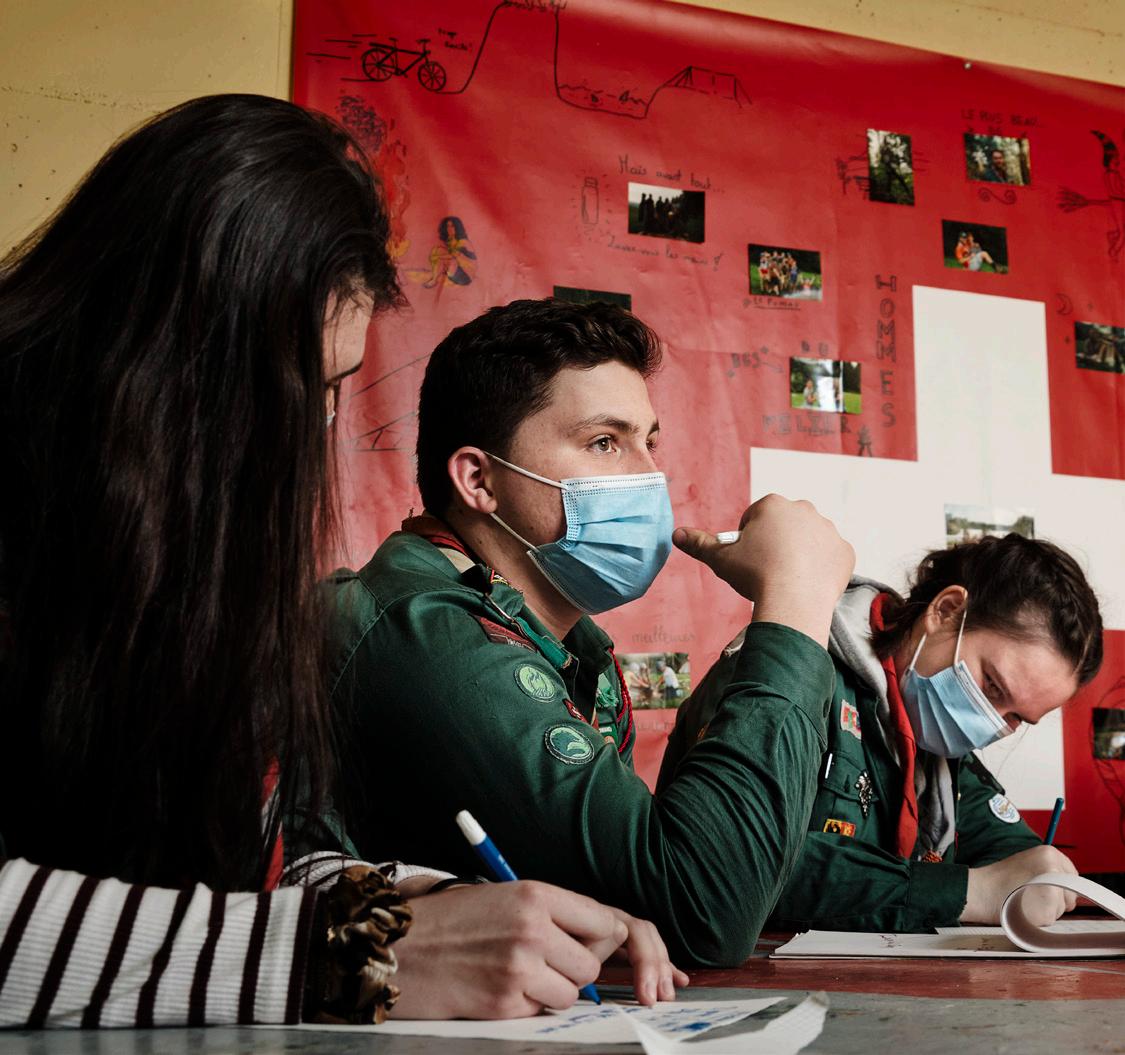
Amidst the global COVID-19 pandemic, our Movement stepped forward in a time of great need to lead community response and recovery efforts. Around the world, NSOs demonstrated incredible leadership and innovation by adapting their educational programming to continue to engage young people safely in Scouting activities at home and online.
WOSM responded swiftly, rolling out a 100-day emergency response plan to support NSOs and Scout Leaders by organising learning opportunities through the World Scout Academy, supporting Scouting at home activities, and sharing stories of community-led action from across the Movement. During a time of need, WOSM established the Emergency Fund for
COVID-19 through the Scout Donation Platform to support volunteers worldwide in responding to the pandemic, and launched a crowdfunding appeal raising more than $120,000 USD towards emergency relief efforts in 25 countries around the world.


A Special Edition of JOTI was also organised by WOSM to offer young people who were isolated under lockdown during the COVID-19 pandemic the opportunity to connect, showcase their creative talents, and experience a dynamic educational programme featuring special guests, partners and high-profile speakers.

Several Task Forces completed their work this triennium, providing follow-up on key institutional requests from the World Scout Conference and WSC. The Fees and Voting Task Force proposed a new fee system in March 2018 that was endorsed by the Committee and promoted during Regional Conferences.
WOSM budgeted and reported on balanced budgets throughout the triennium, noting though that the COVID-19 pandemic required significant budget cuts during the financial years of 2019-2020 and 2020-2021 to ensure we were able to cope with unexpected shortfalls in income. This triennium, we also established a fully integrated approach to our budgeting process through a Master Operational Plan, ensuring better alignment of priorities across our offices and moving towards a higher financial and resource efficiency.
The Scout Donation Platform, launched at the 41st World Scout Conference, yielded more than $367,000 USD in crowdfunding donations, which enabled us to support almost 100 community-based projects from over 40 NSOs. The Scout Donation Platform yielded a considerable following on social media thanks to the many stories of project leaders in the field showcasing the impact of their initiatives.
Thanks to the Messengers of Peace Support Fund and significant support from other donors through the World Scout Foundation, we continued to strengthen our sub-granting process to NSOs, directing funds and other resources to have an impact through countless local Scouting projects. A total of $4,619,653 USD was granted directly to NSOs in the 2017-2021 period.
The WSC Size and Effectiveness Task Force consulted with over 60 NSOs and produced an exhaustive report for the Committee, resulting in several changes to its Standing Orders, Terms of Reference and role descriptions to ensure strengthened efficiency of our governance clearly focused on strategic oversight.
The WOSM Languages Task Force resulted in significant operational capacity for addressing the use of languages throughout WOSM, including the setup of volunteer language pools in each of the five WOSM languages.
The WSC also wishes to acknowledge its appreciation to the continuous efforts of the World Scout Foundation for the financial support to WOSM and its tremendous efforts in identifying funding sources for global, regional and national projects.

• Influence
(“By 2023 Scouting will be the world’s leading educational youth movement,”)
• Growth
(“enabling 100 million young people”)
• Impact
(“to be active citizens creating positive change in their communities and in the world”)
• Unity
(“based on shared values.”)
This extended triennium of our Strategy for Scouting resulted in a period of unprecedented adaptation and innovation as we continued to make Scouting more relevant for even more young people around the world, and led urgent emergency response efforts during a global health crisis to support each other and our communities.
Through it all we extended Scouting’s reach to millions of young people around the world, provided relevant and timely support to NSOs worldwide, and accelerated our collective efforts to be the world’s leading educational youth movement. While we still have work to do in the next triennium to achieve our ambitious aims, this triennium was a reminder of the incredible strength and resilience of our Movement. We were prepared to meet the challenges of today, and are now even more ready to focus on the future!

2017-2021 by the Numbers
5,183,253
NEW SCOUTS JOINED THE MOVEMENT THIS TRIENNIUM.
NEW NSO MEMBERS (VIETNAM, AFGHANISTAN AND SOLOMON ISLANDS) JOINED THE MOVEMENT THIS TRIENNIUM.
3 3.2
3.16% 2 billion
NEW SCOUTS JOIN THE MOVEMENT EVERY MINUTE

REPRESENTS SCOUTING’S GLOBAL MARKET SHARE WITH 0.90% MARKET SHARE GROWTH OVER THE LAST TRIENNIUM
OF COMMUNITY SERVICE HOURS RECORDED BY SCOUTS THROUGH THE MESSENGERS OF PEACE INITIATIVE TO IMPROVE THE SUSTAINABILITY OF OUR PLANET.
518 Services 200 700
WOSM CONSULTANTS ACROSS ALL REGIONS ARE AVAILABLE TO SUPPORT NSOS.
WERE DELIVERED ACROSS 13 SUPPORT AREAS TO MORE THAN 125 NSOS SINCE THE LAUNCH OF WOSM SERVICES IN 2018.
78%
8.91 was the Net Promoter Score
OF WOSM’S MEMBERSHIP HAVE REQUESTED AND RECEIVED SERVICES.
OF ALL EVALUATED SERVICES ACROSS THE WOSM SERVICES PLATFORM (“HOW LIKELY ARE YOU TO RECOMMEND THIS SERVICE TO ANOTHER NSO?”)
RESOURCES ARE AVAILABLE ON THE WOSM SERVICES PLATFORM, INCLUDING BEST PRACTICES, PUBLICATIONS, GUIDES, TOOLKITS AND E-LEARNING COURSES.
2017-2021 by the Numbers
LOCAL ACTIONS AND PROJECTS WERE CARRIED OUT BY SCOUTS AROUND THE WORLD AS PART OF THE MESSENGERS OF PEACE INITIATIVE.
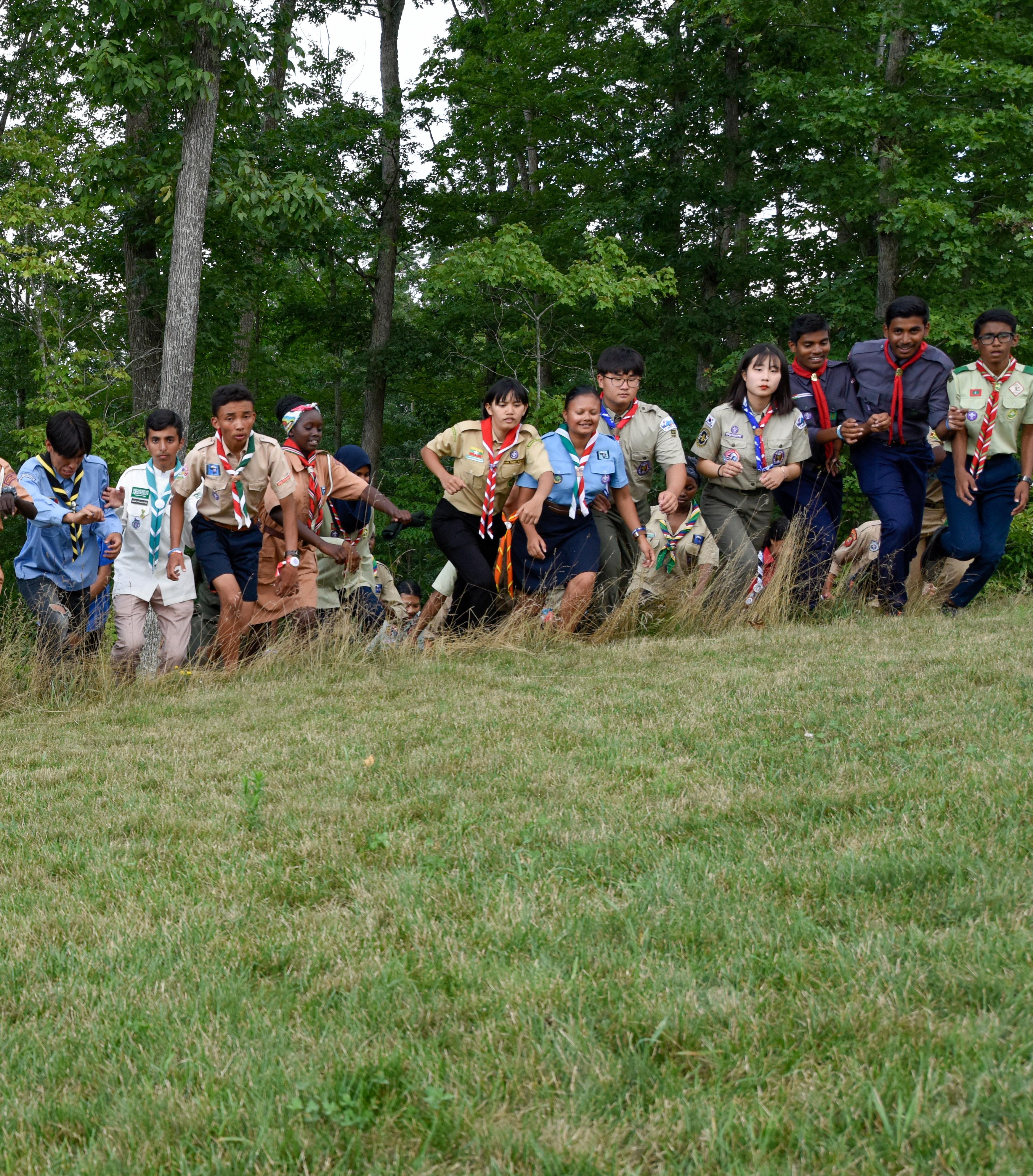
WERE CONTRIBUTED FOR EVERY $1 USD INVESTED IN THE MESSENGERS OF PEACE INITIATIVE.
30,000 non-funded projects
WAS GRANTED DIRECTLY TO NSOS THROUGH FUNDED PROJECTS BETWEEN 2017 AND 2021.
OF VOLUNTEERS APPOINTED TO THE 2017-2020 OPERATIONAL FRAMEWORK WERE UNDER 30-YEARS-OLD, UP FROM 29% IN THE PREVIOUS TRIENNIUM.
WERE GENERATED FOR EVERY FUNDED PROJECT CREATED THROUGH THE MESSENGERS OF PEACE INITIATIVE. 35% 43%
OF VOLUNTEERS APPOINTED TO THE 2017-2020 OPERATIONAL FRAMEWORK WERE WOMEN, UP FROM 33% IN THE PREVIOUS TRIENNIUM.

Triennial Plan 2017-2020: Growing Together
Educational Methods Workstream

Educational Methods Workstream
The Educational Methods Workstream was mandated to:
• Coordinate the overall work in the areas under Educational Methods scope ensuring a holistic approach, ensuring coherence with work done in the Regions and efforts from earlier trienniums.
• Provide NSOs with the resources needed to deliver the Youth Programme and to manage Adults in Scouting.
• Provide the WSC with advice and relevant data on issues related to Educational Methods.
• Support the establishment, development, review and implementation of Educational Methods services, policies and guidelines.
• Support World Scout Event hosts in ensuring a highquality educational focus for young people.

Educational Methods Workstream
To carry out its mandate, the Workstream was divided into five areas: Youth Programme, Adults in Scouting, Youth Engagement, World Events, and Diversity and Inclusion. Each area and the corresponding key performance indicators is reported in the following pages.
Over the course of the 2017-2020 triennium, the Workstream developed content and processes centred on keeping Scouts safe, reaching out to all, incorporating the Sustainable Development Goals (SDGs), strengthening the capacity of NSOs through direct support in eight of the WOSM Services areas that support Educational Methods and creating lasting impact in local communities.

Key achievements from the Educational
Workstream included:
• Developing key resources, e-learning courses and support to NSOs through the Educational Methods areas within the WOSM Services
• Developing different reference educational documents that support NSOs in their educational offering and understanding of Scouting, such as the Essential Characteristics of Scouting , Scout Method, Guide to Youth Programme in Scouting (GPS), Scoutship (Adults in Scouting guidebook).
• Reviewing World Scouting’s educational offerings, enabling a reorganisation of the Better World Framework in “initiatives” and “challenges” to become more structured and relevant for today’s global challenges and the needs of young people. As a result, 4 focal areas were defined: environment & sustainability, peace & community engagement, health & wellbeing and skills for life.
• Launching the Earth Tribe initiative and its challenges (Champions for Nature Challenge, Tide Turners Plastic Challenge and Scouts go Solar Challenge) in collaboration with UNEP and WWF.
• Supporting the implementation of World Scouting initiatives with partners, such as HeForShe (UNWomen) and Dialogue for Peace (KAICIID).
• Supporting the development and launch of the Scouts for SDGs mobilisation and digital hub.
• Strengthening NSO capacity with a series of toolkits, resources, webinars, e-learnings and workshops on keeping Scouting members Safe from Harm, including a Self-Assessment Tool for NSOs
• Concluding the final youth involvement survey report of the 2011-2020 Youth Engagement Strategy, which served as a key input for the development of the goals and objectives of the new Youth Engagement Strategy proposed as Draft Resolution 2021-E.
• Supporting the educational programme offering at World Scout Events (JOTA-JOTI, 24th World Scout Jamboree, World NonFormal Education Forum and the World Scout Academy).

• Supporting the implementation of World Scouting initiatives with partners.
• Supporting the update of the joint position of the Big 6 on non-formal education
The Youth Programme Area was comprised of three units — Youth Programme, Better World Framework, and Spiritual Development. The mandate of these units was to support the development of key documents, resources, and toolkits, such as the Essential Characteristics of Scouting, Scouts for SDGs mobilisation and digital hub, and the Guidelines on Spiritual Development in the Youth Programme.
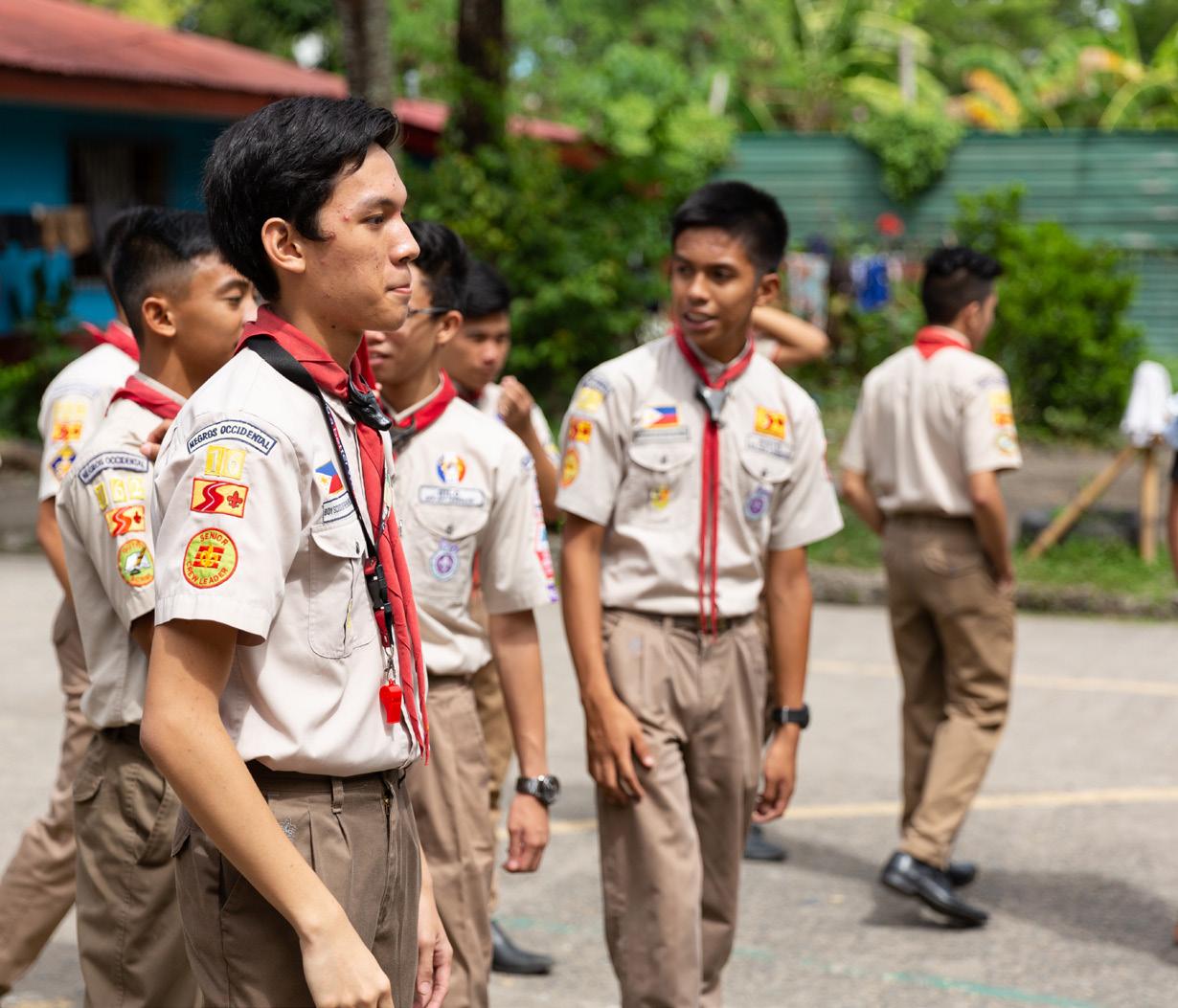
OBJECTIVE: Improve the quality of Youth Programmes in NSOs based on the World Scout Youth Programme Policy
KPI: 55 NSOs will improve their Youth Programmes in line with the needs of young people.
OBJECTIVE: Develop a model of integrating the SDGs into the Youth Programme.
KPI: 60 NSOs will incorporate the SDGs framework in their Youth Programmes through their own national initiatives.
• 76 NSOs in five Regions incorporated S couts for SDGs into their Youth Programme through learning objectives, as well as Better World Framework initiatives and challenges.
• 60,000 Scouts learned about Scouts for SDGs and Better World Framework initiatives through their participation at World and Regional events such as Jamborees, Moots, JOTA-JOTI and Youth Forums
OBJECTIVE: Increase the quality and quantity of community development projects
KPI: 30 NSOs will inspire community development projects as a progress of implementing the SDGs and the Better World Framework.
OBJECTIVE: Empower more young people to have a positive impact on their environment.
KPI: 65 NSOs will provide learning opportunities to their members about environmental protection and sustainability by using WOSM’s educational resources.
QUICK FACTS AND FIGURES
• 63 NSOs adopted the Earth Tribe initiative and its challenges to complement their Youth Programmes.
OBJECTIVE: Improve the spiritual development aspect of the Youth Programme
KPI: 15 NSOs will improve the spiritual development aspect in their Youth Programmes by using WOSM’s educational resources.
QUICK FACTS AND FIGURES
• New Guidelines for Spiritual Development in the Youth Programme were published to support NSOs to improve this aspect of their Youth Programme
The Adults in Scouting Unit was comprised of two units — Adults in Scouting and Safe from Harm. The mandate of these units was to support the implementation of the Adults in Scouting lifecycle within WOSM structures through the development of resources and tools for the different stages of volunteering, and to develop essential tools to support NSOs to enhance their capacities in the area of Safe from Harm. Two major outcomes in this area include the revision of the Wood Badge framework and the publication of Scoutship as the successor of the Adults in Scouting Handbook.
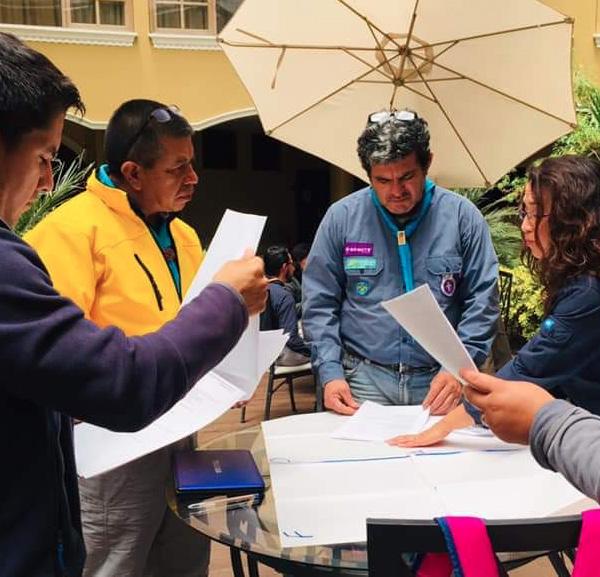
OBJECTIVE: Strengthen the implementation of all aspects of the lifecycle of Adults in Scouting (including recruitment, training and retention), in accordance with the World Adults in Scouting Policy.
KPI: 80 NSOs will improve their internal processes for recruiting, training, and retaining adult leaders in accordance with the World Adults in Scouting Policy.
80 More than 80 Achieved
• The Wood Badge framework was renewed and we celebrated its centenary in 2019
• Scoutship, the renewed Adults in Scouting guidebook was published.
• More than 80 NSOs received support through the Adults in Scouting service.
OBJECTIVE: Ensure the safety of Scouts.
KPI: 35 additional NSOs will incorporate a Safe from Harm policy in their national policies and practices, inspired by the World Safe from Harm Policy.
• Developed Safe from Harm Implementation Guidelines and a Self Assessment Tool for NSOs to support Member Organizations to not only draft a policy, but also implement and evaluate Safe from Harm at the local level
• More then 30,000 adults took Safe from Harm e-learning courses, with additional training provided during World and Regional Scout events
• Published a series of hands-on materials for local Scouts and their leaders on Safe Scouting, including topics such as “Anti-Bullying ” and “Online Safety”
Safe from Harm is a very important initiative developed in WOSM to help to protect children, Scouts from violence and other harm. It is what will make it possible to inspire others to reach the ultimate goal of ending violence against children in the next ten years.
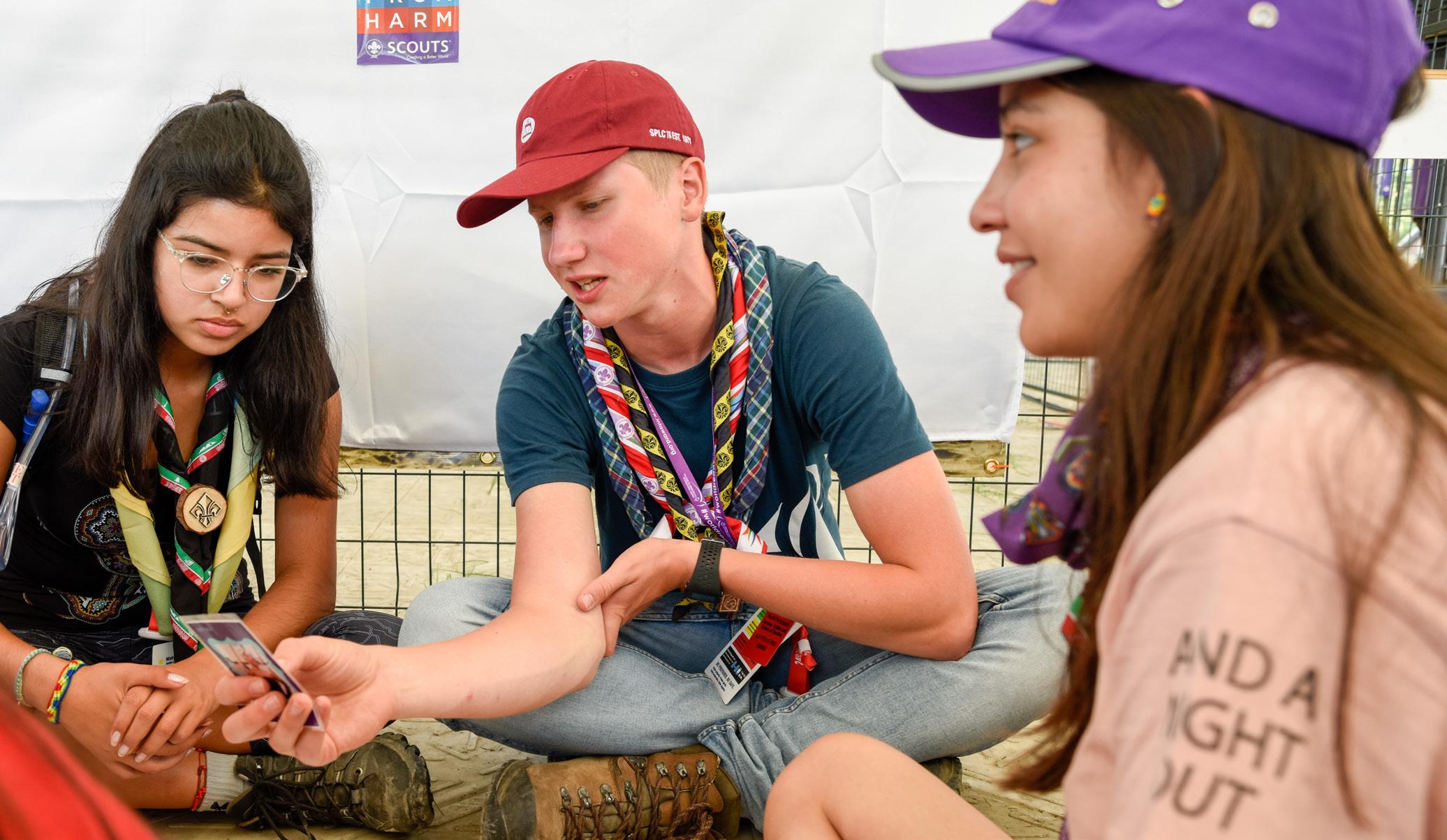
The mandate of the Youth Engagement Unit was to provide continued support to deepen youth engagement practices throughout WOSM. Various tools and resources, such as the Youth Engagement Assessment Tool and the
e-learning course on intergenerational dialogue, were created to support NSOs to embed youth engagement practices at all levels of their operations.

OBJECTIVE: Ensure greater youth engagement in NSO decision-making bodies at all levels.
KPI: 30 NSOs will have a young person under 30 as a voting member on their national board.
30 More than 30
The Diversity and Inclusion area was comprised of two units — Diversity and Inclusion and Humanitarian Action. The mandate of the units was to support the evolution of Diversity and Inclusion work within WOSM through the assessment of key areas such as gender equality, and through the creation of key resources and guidelines, as well as to strengthen NSO capacity to support and respond to humanitarian issues.

OBJECTIVE: Ensure that WOSM’s membership reflects the diversity of local communities where Scouting exists and that Scouting is accessible to all.
KPI: 50 NSOs will develop a national Diversity and Inclusion strategy making Scouting available to all and actively reaching out to underrepresented communities.
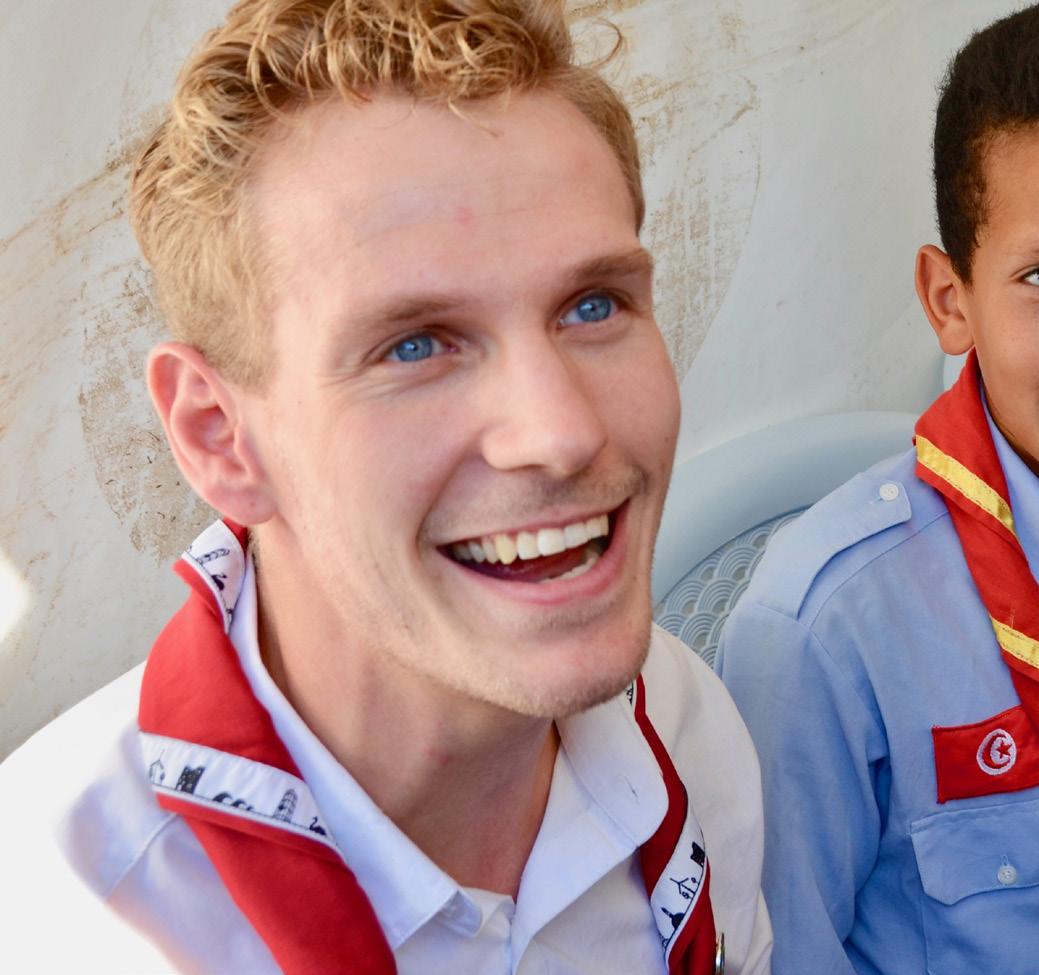
• Developed resources to support NSOs in developing Diversity and Inclusion strategies and assess their current situation using the Diversity and Inclusion Guidelines
• Developed resources to support NSOs in developing their Humanitarian Action capacities and how to create educational programme within a humanitarian setting.
OBJECTIVE: Ensure gender equality at all levels in Scouting through:
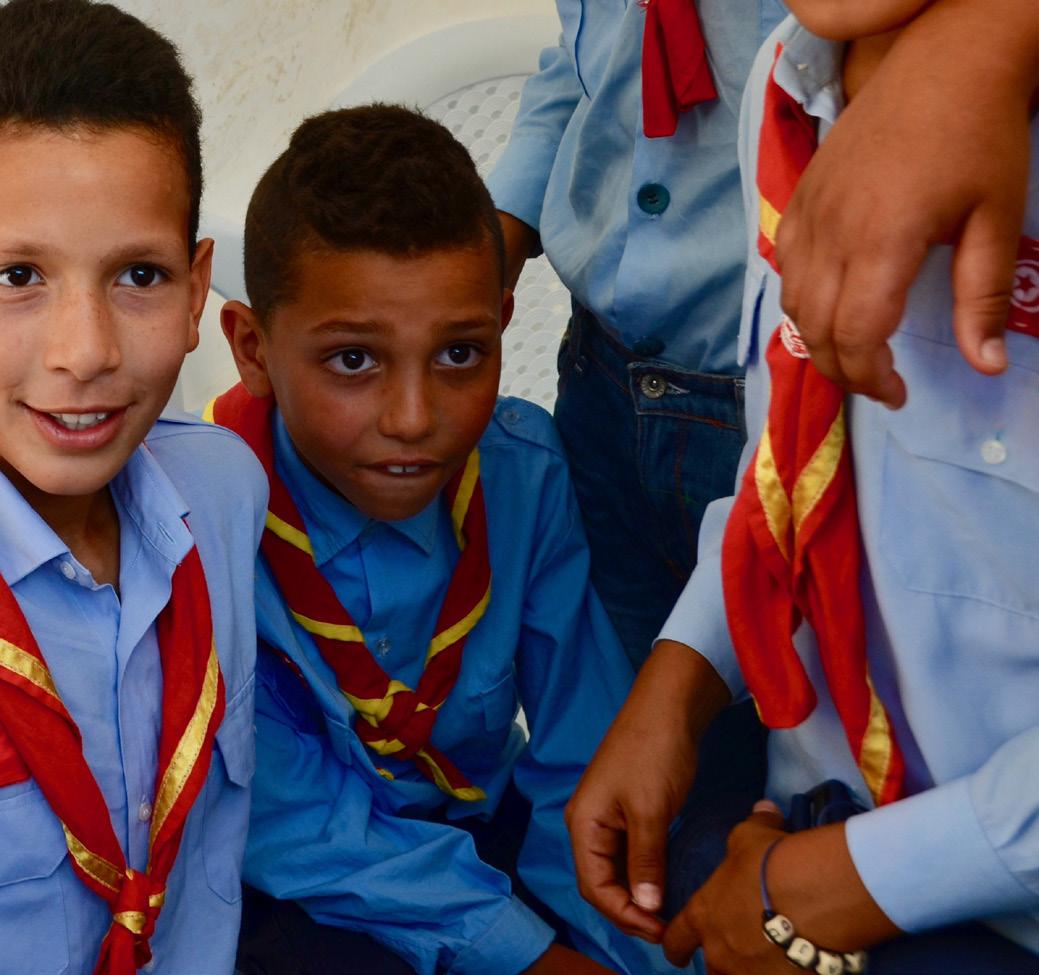
• Offering gender equality education to members.
• Providing training opportunities for Adults in Scouting on gender equality.
• Benefiting from partnerships on gender equality.
KPI: 35 NSOs will improve gender equality in their NSO and local communities by providing education and training for youth members and Adults in Scouting.
• Educational tools were developed for Scouts, including the HeForShe Action Kit available in five languages, with promotion at various Regional Events through the Better World Tent.
• Launched the Gender Equality Self-Assessment Tool for NSOs
OBJECTIVE: Investigate programmes and partnerships to assist and integrate refugees and migrants in local communities through Scouting.
KPI: 15 NSOs will develop a major project on the integration of migrant and refugee young people and adults.
Triennial Plan 2017-2020: Growing Together
Communications and Partnerships Workstream
The Communications and Partnerships WorkStream was mandated to:
• Coordinate the overall work of communications and partnerships ensuring a holistic approach to both areas.
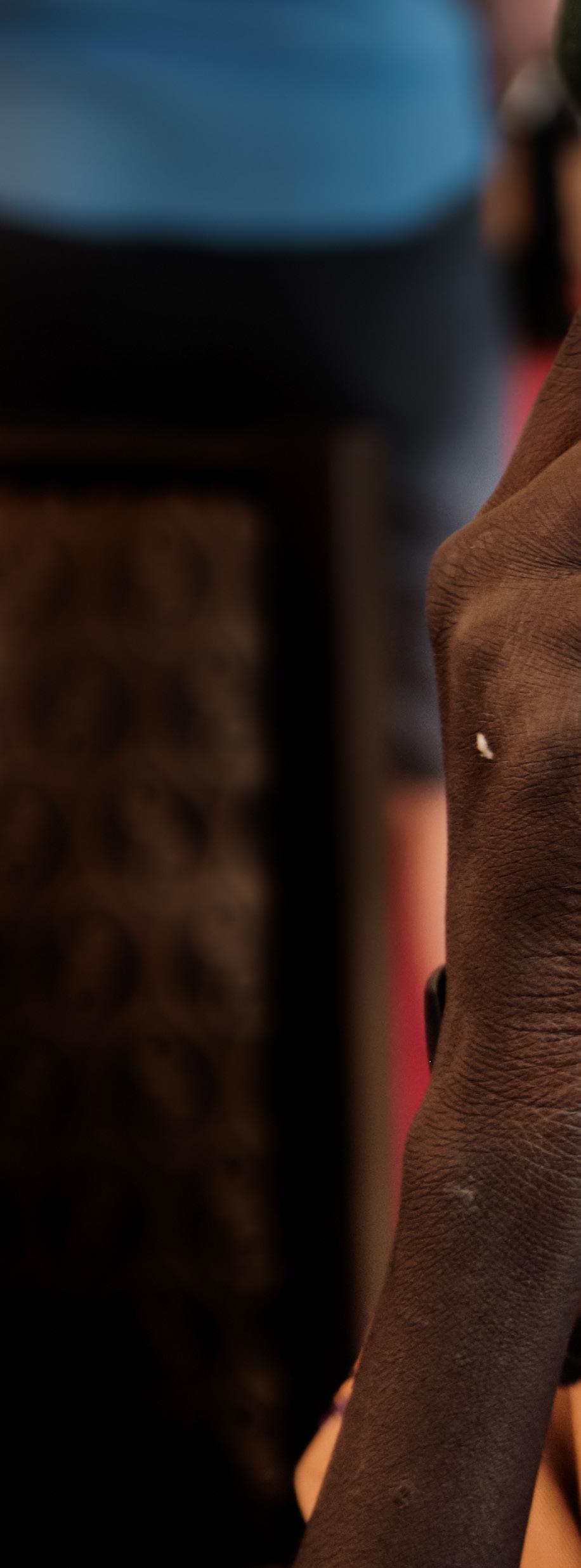
• Support the implementation of the Communications and Strategic Engagement Strategy.
• Work on optimising the social profile of Scouting.
• Support the achievement of the Strategy for Scouting, including Vision 2023.
• Build the recognition and brand of Scouting as a global Movement.
The key achievements from the Communications and Partnerships Workstream included:
• Launching the Global Communications Network and engaging more than 120 representatives in capacity building sessions and key campaigns
• Training and establishing of a network of 12 youth representatives to represent WOSM in global events and advance our advocacy efforts.
• Announcing Bear Grylls as the Chief Ambassador of World Scouting and engaging him in events and online activations.
• Enhancing storytelling, social media activation and campaigns for international days of action in collaboration with key partners.
• Developing key resources, e-learning courses and support to NSOs through the WOSM Services areas of communications and partnerships
• Coordinating communications, branding, visual production, media relations and partnership engagement for the 24th World Scout Jamboree, JOTA-JOTI and World NonFormal Education Forum.

• Producing an updated version of WOSM’s position papers on non-formal education with the Big 6 Youth Organizations, and producing the Rio Declaration on Non-Formal Education.
• Strengthening relationships with new and existing global and regional partners by engaging them in our work.
The Communications Unit mandate was to communicate positively and accurately about Scouting, maintain the brand and reputation of Scouting at all levels, and build effective internal and external communications that promote shared values and the unity of the Scout Movement.
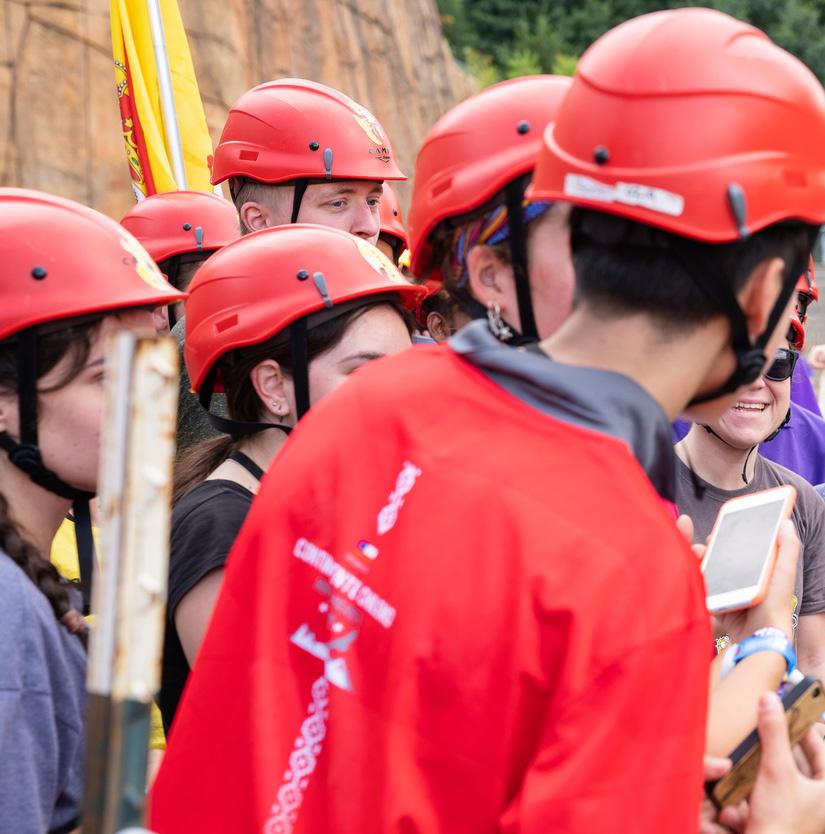
OBJECTIVE: Increase capacity of NSOs in internal and external communications.
KPI: 50% of NSOs in each region will report improved internal and external communications, on utilising WOSM resources and receiving WOSM support.
TARGET END OF TRIENNIUM RESULT STATUS
50% 43% Partially Achieved
OBJECTIVE: Improve relevant communication between the World Scout Bureau / WSC and NSOs.
KPI: 80% of NSOs will note an improvement in communications with the World Scout Bureau/WSC at the end of the triennium.
• Launched the Global Communications Network and engaged representatives in capacity building sessions and key campaigns.
• A new Members Portal on Scout.org was launched featuring news, circulars, event details and programme information for NSO leadership.
• Improved the design and distribution of ScoutPak to NSO leadership featuring circulars, member news, resources and event information.
TARGET END OF TRIENNIUM RESULT STATUS
80% More than 80% Achieved
The Advocacy and Partnerships Unit’s mandate was to position the Scout Movement as the world’s leading educational youth movement, and to develop and maintain strategic partnerships with key international organisations to attract support for Scouting and create positive change through advocacy.
OBJECTIVE: Improve financial stability by diversifying WOSM’s funding sources.
KPI: WOSM will identify and access three new funding sources.
• Three new funding sources were secured related to Scouts for SDGs, Earth Tribe and My Europe, My Say initiatives.
• Acted as a liaison to the United Nations entities based in New York, Nairobi and Geneva to tap into a wider network of potential partner and funding opportunities.
OBJECTIVE: Advance Scouting’s Mission and Vision through establishing strategic partnerships at the world level and supporting NSOs in establishing partnerships at the national level.
KPI: 50 NSOs will benefit from partnerships established at the world level.
• Over 400 hours of workshops and campfire dialogues involving 39 UN agencies, international non-governmental organisations and NSOs were run as part of the Global Development Village at the 24th World Scout Jamboree.
• New partnership agreements were signed with WWF, UNHCR, UN Environment, UN Women, UN Volunteers and KAICIID.
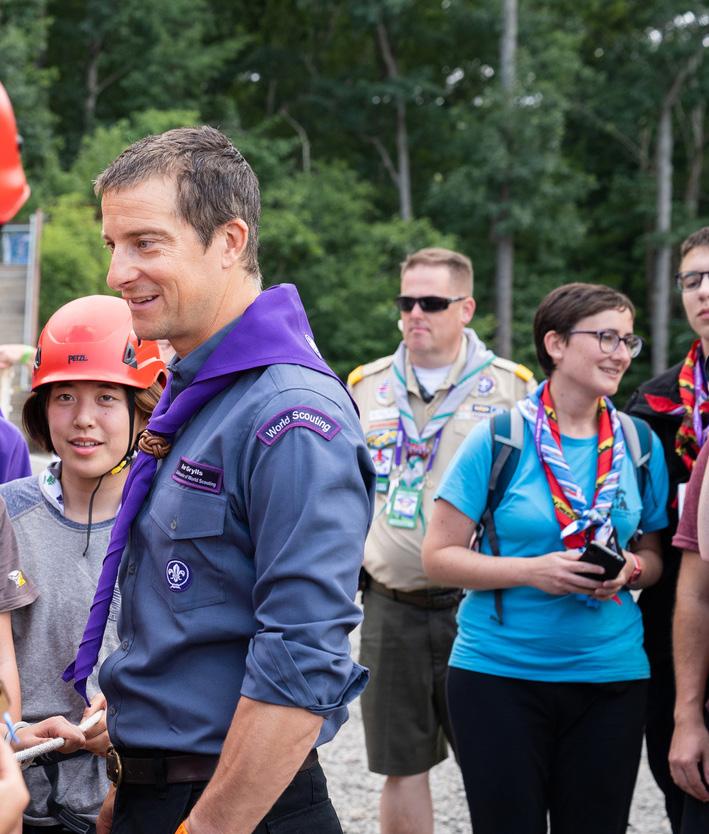
KPI: 30 NSOs will develop partnerships on national level with WOSM’s support

OBJECTIVE: Advance WOSM’s position and contribute significantly to discussions on education and youth-related issues in various national and international settings.
KPI: 17 NSOs will contribute to the development and implementation of educational and youth policies in their countries in line with the key WOSM positions.
• 12 global youth representatives around the world were as trained spokespeople to be advocates and champions for the environment, gender equality, peacebuilding and other topics at key global events.
• Produced advocacy briefs and key WOSM positions related to Scouting’s work on climate action, gender equality, humanitarian action and more.
• Supported NSOs and NSAs to be actively involved with their National Youth Councils and regularly engage in dialogue with key policymakers in their countries.
During the triennium, World Scouting built a global network of youth representatives to be the face of our Movement and stand up for issues we care about on the international stage. Engagement at the UN General Assembly, Commission on the Status of Women, High Level Political Forum and ECOSOC Youth Forum led up to an advocacy workshop for a dozen youth representatives in Kuwait, preparing them with media training and tools to be champions for the environment, gender equality, peacebuilding, and more.

The Good Governance Workstream was mandated to:
• Support capacity strengthening efforts through the implementation of GSAT, WOSM’s quality standard.
• Help NSOs to contribute towards the long-term goals of the Scout Movement and Vision 2023 through the development of sound strategic planning.
• To measure the social impact of Scouting.

• Financial management by looking at all resources at hand to help NSOs improve the management of their finances.
• To develop support for NSOs in the area of membership management systems.
Throughout the triennium there was clear organisational focus within WOSM on strengthening the governance and accountability among NSOs via support and guidance, as well as through the good governance elements of the Global Support Assessment Tool (GSAT) as WOSM’s Quality Standard.
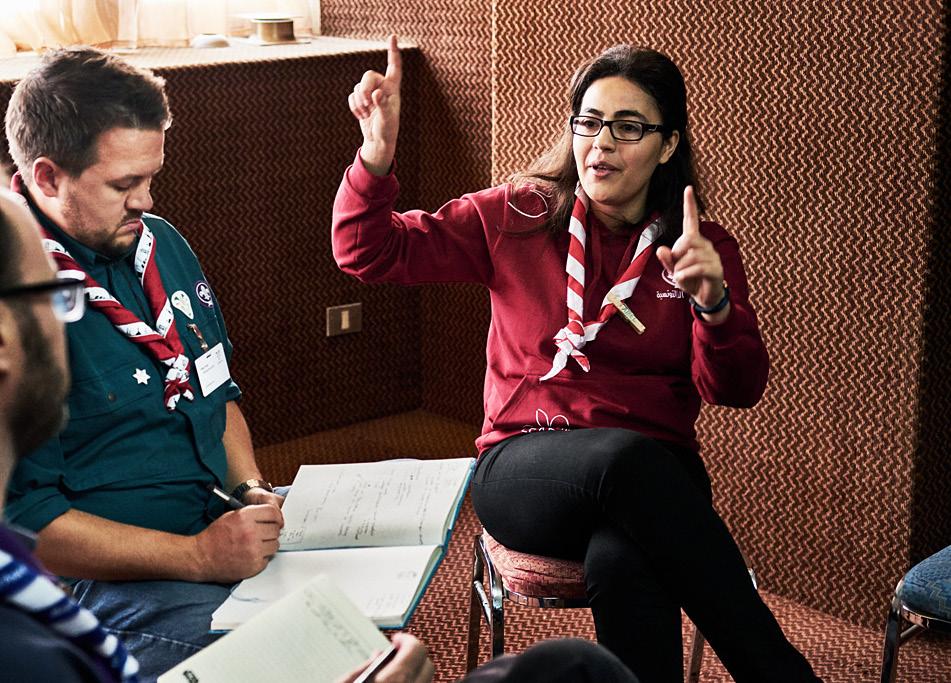
The key achievements from the Good Governance Workstream included:
• Developing a series of resources, including a Good Governance in National Boards Toolkit , Membership Management Toolkit , Financial Management Toolkit and Strategic Planning, Monitoring and Evaluation Facilitators Guide and Toolkit.
• Reviewing and updating the Global Support Assessment Tool (GSAT)
• Conducting a GSAT impact study and developing training materials.
• 63% of NSOs completed a GSAT assessment at least once by the end of the triennium.
The mandate of the Strategic Planning, Monitoring, and Evaluation Unit was to support NSOs to enhance their capacities in strategic planning, monitoring and evaluation. This was largely accomplished through the creation and development of toolkits, compiling resources, and providing training to WOSM Consultants who delivered services related to these topics to NSOs.

OBJECTIVE: Strengthen support to NSOs in strategic planning, monitoring and evaluation.
KPI: 50 NSOs will improve their capacities in the areas of strategic planning, monitoring and evaluation.
QUICK FACTS AND FIGURES
• A number of new and improved resources were developed for NSOs including a Strategic Planning, Monitoring and Evaluation Toolkit , participant workbook , facilitator’s guide, and a collection of NSO best practices.
OBJECTIVE: Measure the impact of Scouting and use the information for continuous improvement.
KPI: 25 NSOs will strengthen their capacity and implement a process to measure their impact.
QUICK FACTS AND FIGURES
• Two studies measuring Scouting’s impact on the development of young people were published.

The mandate of the Financial Management Unit was to outline and gather key resources supporting and promoting best practices in financial management.
OBJECTIVE: Strengthen support to NSOs in financial management.
KPI: 25 NSOs will improve their capacities in the area of financial management.
Partially Achieved
The Global Support Assessment Tool (GSAT) Unit’s mandate was to continue assessing the capacity of NSOs using GSAT, provide effective support to the GSAT Consultants worldwide and make GSAT data accessible and integrated into WOSM strategy development.
OBJECTIVE: Continue the implementation and further development of GSAT as WOSM’s standard for NSOs and ensure follow-up on its results.
KPI: 75% of NSOs will complete a GSAT assessment.
The NSO of Honduras, as part of their GSAT assessment, identified that they needed to strengthen their financial management systems. With the support of the Financial Management Unit they were able to receive technical assistance in the design and implementation of their financial development plan. They were able to update their financial procedures, revise their internal control system, and explore a policy for fundraising and revenue generation.
Partially Achieved
• 63% of NSOs were assessed at least once using GSAT by the end of the triennium, and 80 GSAT Consultants were trained to provide services and support to NSOs.
• All triennial planning processes in the Regions were supported with aggregated GSAT data to facilitate strategic decision-making.
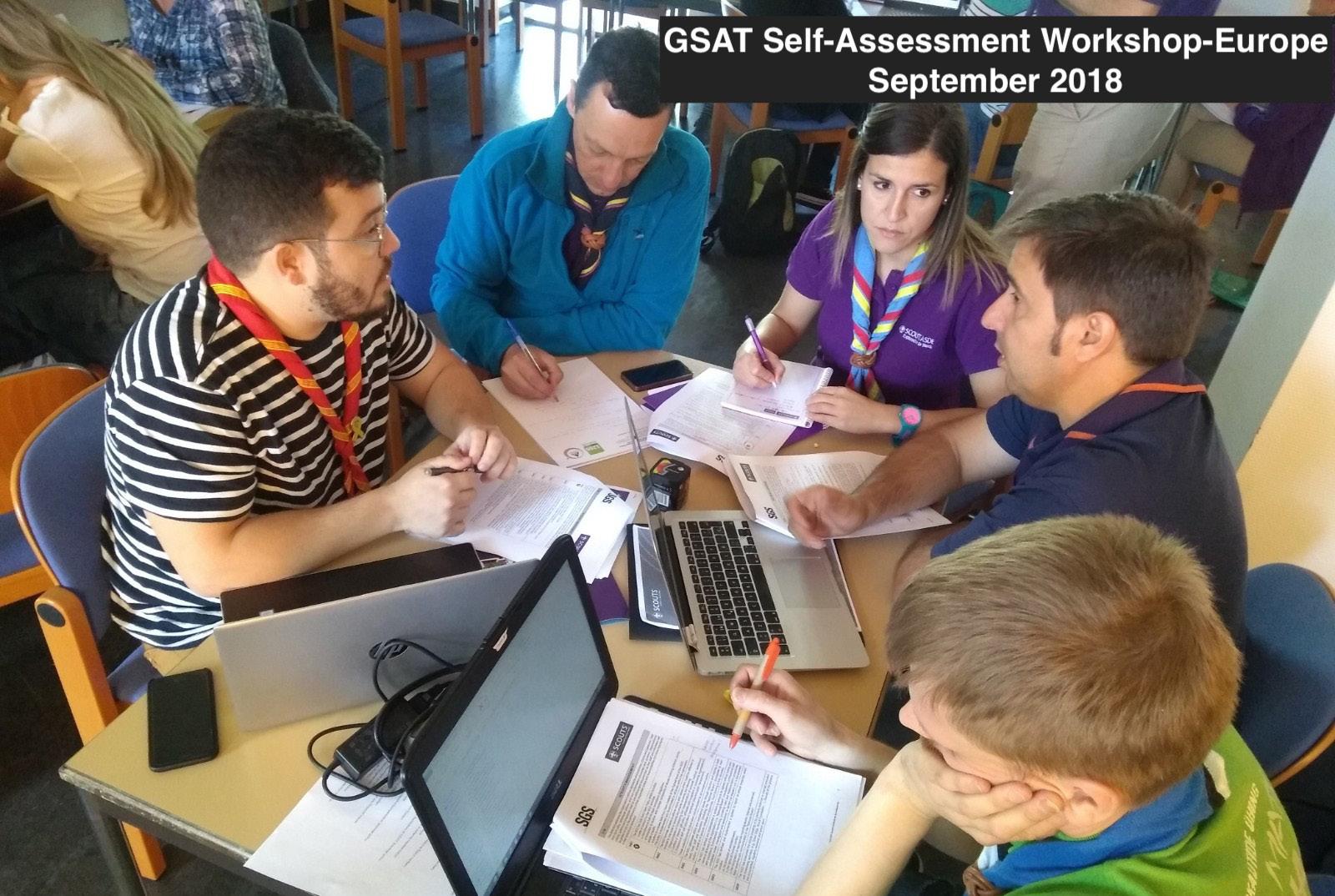

“Thanks to the GSAT, Beninese Scouting has been able to implement several improvement projects. These projects notably enabled us to proceed with the development of our 2016-2019 strategic and operational plan and the implementation of a communication strategy, the implementation of which led, among other things, to the design and setting up of a dynamic website, developing the graphic charter and the visual identity of our organization and designing a leaflet presenting our activities. We were also able, with the GSAT, to proceed with the development of an administrative and financial management manual, and were able to acquire accounting software.”
Rolland Agbessi- Executive Director, Scoutisme Beninois
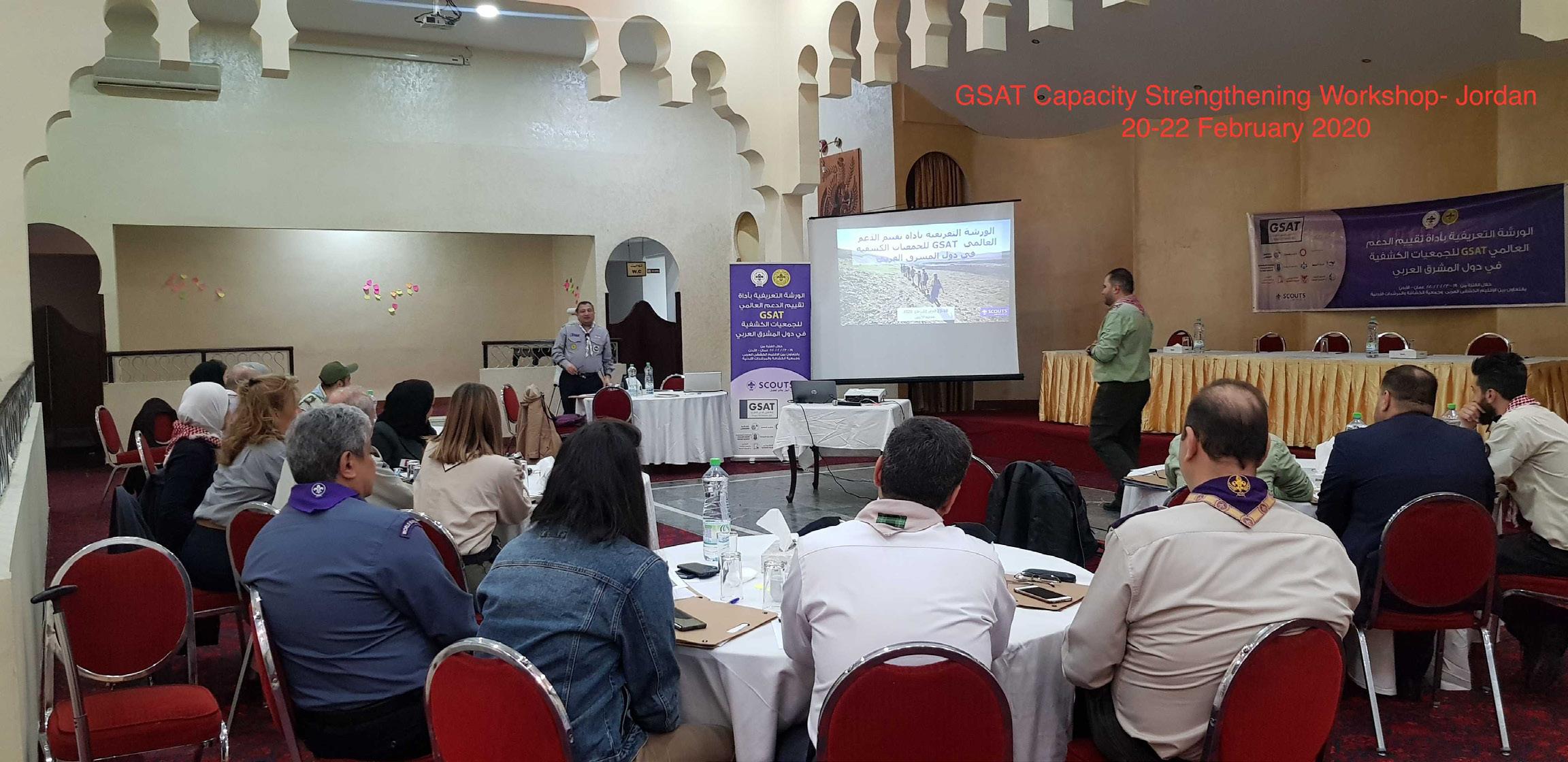
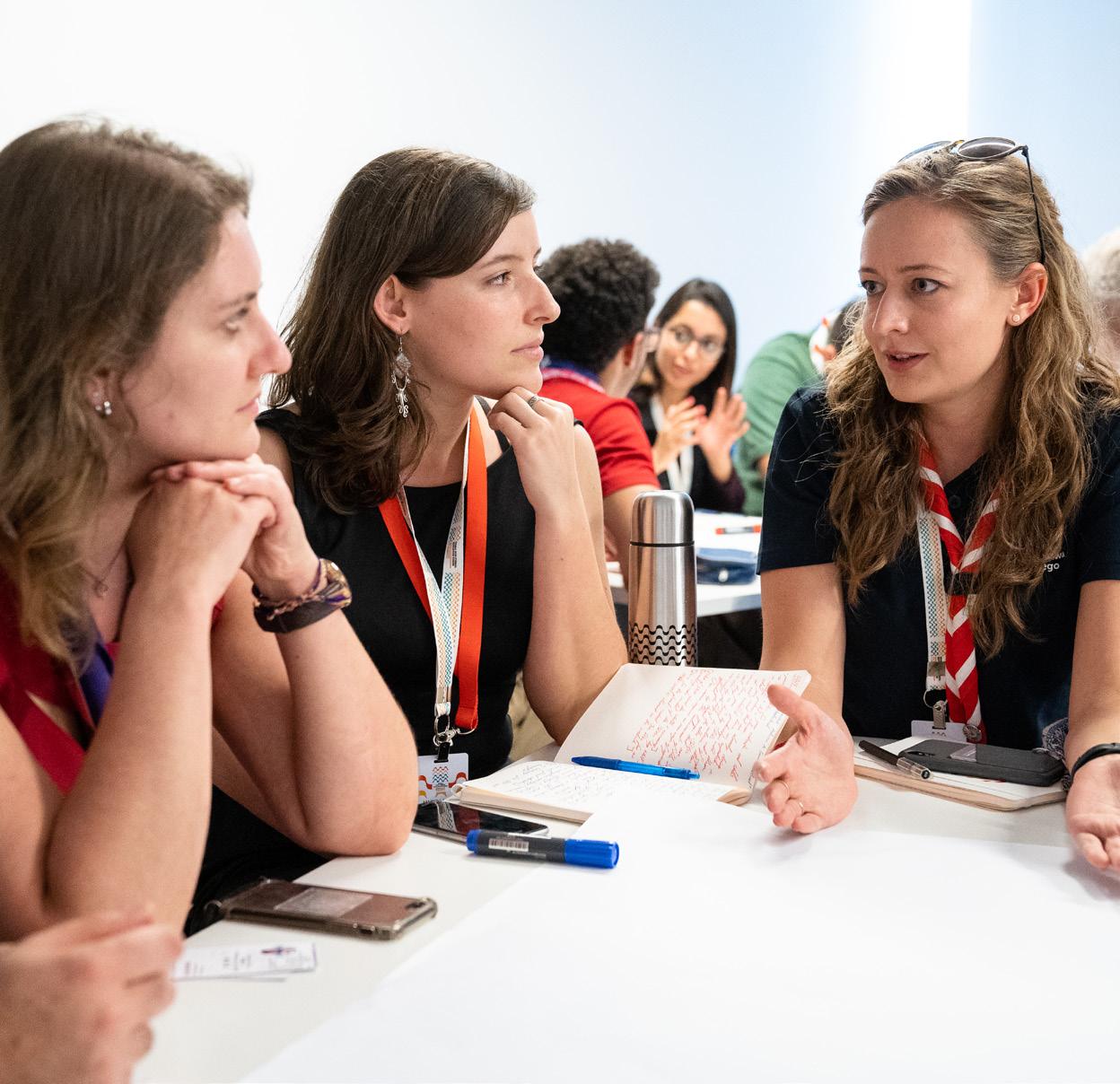
The mandate of the Membership Management Unit was to assist NSOs with planning and identifying key resources needed to commission a membership management system. Key achievements of this unit were the development of a Membership Management System Toolkit to be used by NSOs to help them navigate the engagement of third-party suppliers to secure a membership management system. Additional guidance is also availabe with a list of do’s, don’ts and best practices on how to handle the development process of a custom membership management software
The mandate of the Good Governance in National Boards Unit was to provide NSOs with quality information to support good governance within national boards, building on a series of best practices developed in Regions and within WOSM’s own governance. The key achievement of this unit was the creation of the Good Governance in National Boards Toolkit
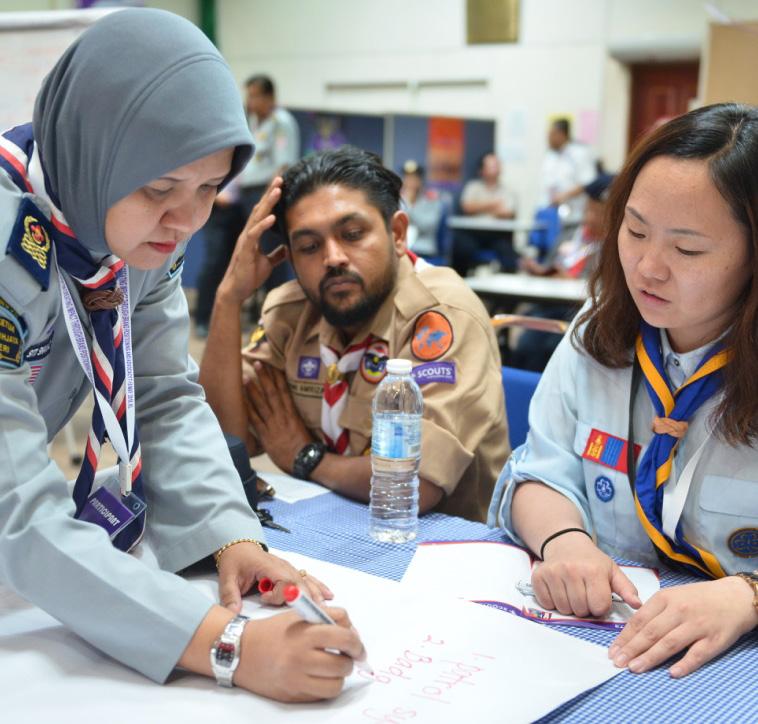
The Growth and Strategy Coordination Group was mandated to support four main bodies of work during the triennium to:
• Monitor the overall implementation and further planning towards the Strategy for Scouting, vision 2023.

• Coordinate targeted initiatives to support membership growth worldwide.
• Coordinate the development process of the Triennial Plan 2021-2024.
• Oversee continuous improvement efforts aimed at strengthening the working methods, performance management and decisionmaking of the WSC and the Operational Framework.
Triennial Plan 2017-2020: Growing Together
Growth and Strategy Coordination Group

Key achievements in the area of Strategy Coordination included:
• Conducting quarterly coordination meetings to ensure alignment and facilitate communication between Workstreams and Task Forces across the Operational Framework.
• Providing assistance to Regional Committees in the development of their Triennial Plans and Operational Frameworks, encouraging alignment with the World Triennial Plan.
• Coordinating the process to develop the Triennial Plan 2021-2024 for consideration at the 42nd World Scout Conference.

OBJECTIVE: Ensure progress towards achieving Vision 2023 and oversee growth initiatives across the Movement.
KPI: Regional Triennial Plans will reflect 80% of the World Triennial Plan’s objectives
Partially Achieved
The WOSM Global Growth Agenda was approved by the WSC in early 2018 to ensure an organisation-wide focus on one of the key areas of Vision 2023. The Growth Agenda was based on six pillars cross-cutting WOSM’s operations:

Understanding more accurately that the state of our Movement is a vital part of membership growth, various measures were taken to improve WOSM’s understanding of members and beneficiaries over the past three years. These measures and achievements included:
• Launching the NSO Data Portal in 2019 which enabled WOSM to significantly improve the collection of data from NSOs and improve membership data measurement.
• Active outreach to receive 2019 annual census submissions from 70% of NSOs providing up-to-date reporting on membership situation across the Movement.
• Developing a more in-depth understanding of the number of Scouts not declared through the official census
To better understand the number of young people impacted by Scouting, work was carried out to better define and measure the beneficiaries of Scouting beyond the direct participation of young people in the Youth Programme of NSOs.
Following a test run in 2018, the census gathering in 2019 was expanded with a component on beneficiaries with clear guidance for NSOs to understand how to measure the number of beneficiaries in their communities. Through the latest census, WOSM recorded beneficiary counts from 56 NSOs, tallying up to 12 million beneficiaries in the humanitarian, educational and social categories. Work is planned to continue in this area in the next triennium as referenced in the Draft Triennial Plan 2021-2024.
The WOSM Growth Service was developed to enable NSOs to access resources and support to advance their plans for growth. The Growth Service provides targeted support to NSOs in developing and implementing country-specific growth strategies, as well as makes best practices from around the world easily accessible. In addition, significant work was undertaken through the Regions, leveraging their unique and in-depth understanding of growth potential and challenges. Key accomplishments here were the establishment of dedicated growth networks, growth sessions and seminars at Regional Conferences and dedicated “growth champions” functioning as focal points and ambassadors for growth in each Region.
• Since its inception in 2020, 26 NSOs benefitted from direct support through trained Growth Consultants.
• Over 70 unique resources are available to NSOs in the area of growth planning, inspiration, membership management, retention and recruitment.
At the start of the triennium, 30 NSOs with high growth potential were identified and invited to be part of a growth initiative to support and accelerate their work around membership growth. This initiative kicked off with a growth seminar in 2018 to start building capacity and create individual growth strategies. Over the triennium, these NSOs were responsible for 70% of the WOSM’s growth seen by implementing the actions mapped in their growth plans.
Regular support to these 30 NSOs included trainings and support in the following areas: recruitment, engagement and retention; building blocks for growth; fundraising; strategies for growth; reaching out to new communities; creating new groups; and recruitment and training of adult volunteers.

WOSM saw three applications for membership come to fruition this triennium in the countries of Vietnam, Afghanistan and Solomon Islands. In addition, significant progress was made in supporting the Scout Associations in Antigua and Barbuda, Congo-Brazzaville, Central African Republic and Mali on their journey towards WOSM membership.
Over the triennium, six feasibility studies were developed exploring the potential to introduce Scouting to countries where it currently does not exist. These studies considered the environment and potential approaches for initiating Scouting in Iran, China, Cuba, Laos, Uzbekistan and Kyrgyzstan. Two of these studies have been converted into roadmaps for membership growth and work has already begun to implement those plans.
The Growth Unit developed 18 innovative ideas for membership growth, which were further enriched with research about global youth trends and benchmarking with the growth strategies of other international organisations. After a feasibility analysis, 13 ideas were eventually implemented across the various projects of this Triennial Plan.
KPI: 20 NSOs with high growth potential will develop and implement strategic action plans towards sustainable growth
KPI: WOSM will establish five feasibility studies and from them develop strategies for expanding Scouting in countries where it is currently non-existent (or where there is no registered NSO).
Building on the efforts of the last triennium, the Continuous Improvement Unit reflected on methods to strengthen and improve the efficiency and effectiveness of the WSC, as well as to enhance the functionality of the Operational Framework.
Key achievements of the Continuous Improvement Unit included:
• Developing end-of-day meeting evaluations when the WSC convened to make immediate shifts based on the previous day’s feedback.
• Circulating overall meeting evaluations to improve the meeting process for the following Committee meeting.
• Creating the WSC performance review and satisfaction evaluation process, including both a self-assessment and a peer-to-peer evaluation.
• Improving the volunteer on-boarding , enhancing the overall experience for volunteers, and supporting transparency through the creation of clear Terms of References, volunteer commitments, mutual agreements and performance management.
• Strengthening wellbeing efforts for volunteers and staff active in WOSM’s Operational Framework during the global pandemic
• Innovating the 2021-2024 volunteer open call process with a more efficient timeline, enhanced efforts for a more diverse and inclusive outreach and an optimised selection process in line with the Adults in Scouting Policy.

Akey commitment of the WSC this triennium was to take bold steps towards advancing gender equality throughout WOSM’s governance and operations. An innovation group was formed to lay the groundwork for more long-term strategies to address structural barriers to gender equality in WOSM. The group supported the World Scout Committee with analysis, advice, capacity building and facilitation for institutional gender mainstreaming.
Key achievements of the Gender Mainstreaming Innovation Group included:
• Compiling data on gender and age representation in World-level governance structures, including the World Scout Conference, World Scout Youth Forum and World Scout Committee.
• Facilitating an in-depth gender analysis workshop with the World Scout Committee and Senior Management Team to explore causes, effects and experiences of gender inequality in WOSM.

• Supporting the integration of a gender perspective in all projects of the 100-Day Emergency Response Plan by:
- Advising project teams on applying a gender perspective to the processes and substances of their work.
- Delivering a 1.5-hour learner-centered “gender glasses” training for volunteers and staff involved in the response through the World Scout Academy.
- Conducting a survey to evaluate gender mainstreaming efforts at the end of projects, showing 62.5% of the respondents applied a gender perspective in their work as a result of the training. This resulted in more open conversations around inclusion and gendered implications of projects, as well as increased attention paid to gender representation in volunteer recruitment and communications efforts.

The group also created a framework for ongoing and continued efforts focused on advancing gender equality in World Scouting in three primary ways:
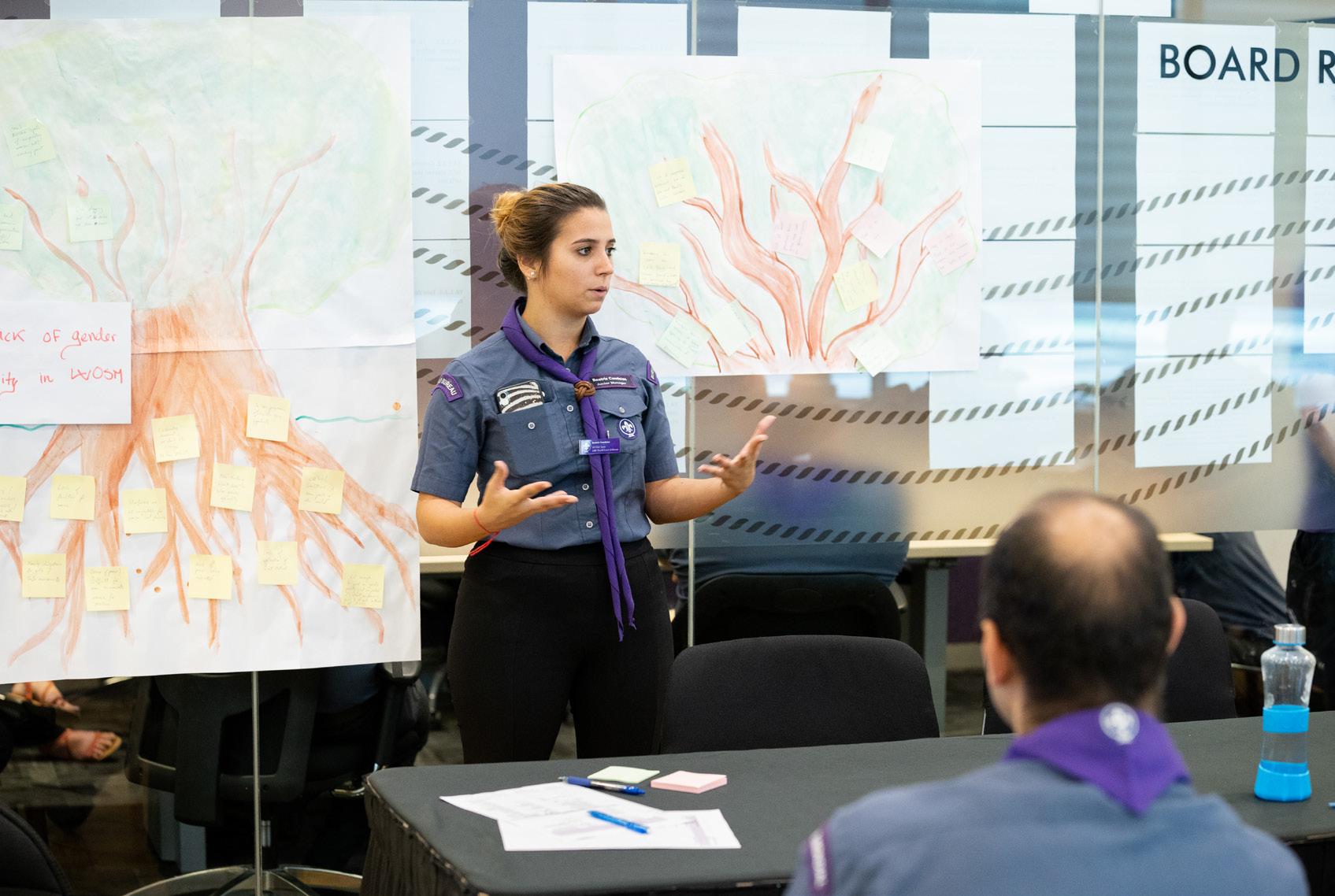
• Institutional: Providing NSOs and WOSM structures with support and tools to assess their current situation and create strategies to advance gender equality in their organisations.

• Educational: Continuing to provide educational tools and resources for NSOs to offer high-quality gender equality education for young people, leveraging existing partnerships.
• Communication and Advocacy: Providing adults and young people with guidance to become agents of positive change, contributing to gender equality in their organisations and communities.
B y committing to take action through HeForShe and rallying behind SDG 5, millions of Scouts are working to make the world more equal and just for women and girls.
In Burundi, Scouts started supporting victims of gender based violence following a workshop delivered by a WOSM Services Consultant using the HeForShe Action Kit.

• In Saudi Arabia, a workshop on gender equality sparked a push to encourage more young women and girls to join Scouting in the region.
• In Bangladesh, Scout Leaders are pioneering the first all-girl Scout groups in schools to increase the self-esteem of female Scouts and start a dialogue about the importance of gender equality. Newly developed resources and e-learning courses, along with workshops hosted during world and regional events, continue to support young people to promote and take action for a more gender equal world.
Following the 41st World Scout Conference in 2017, five Task Forces were established by the WSC to respond to resolutions posed during the event as well as to progress key institutional matters.

Triennial Plan 2017-2020: Growing Together
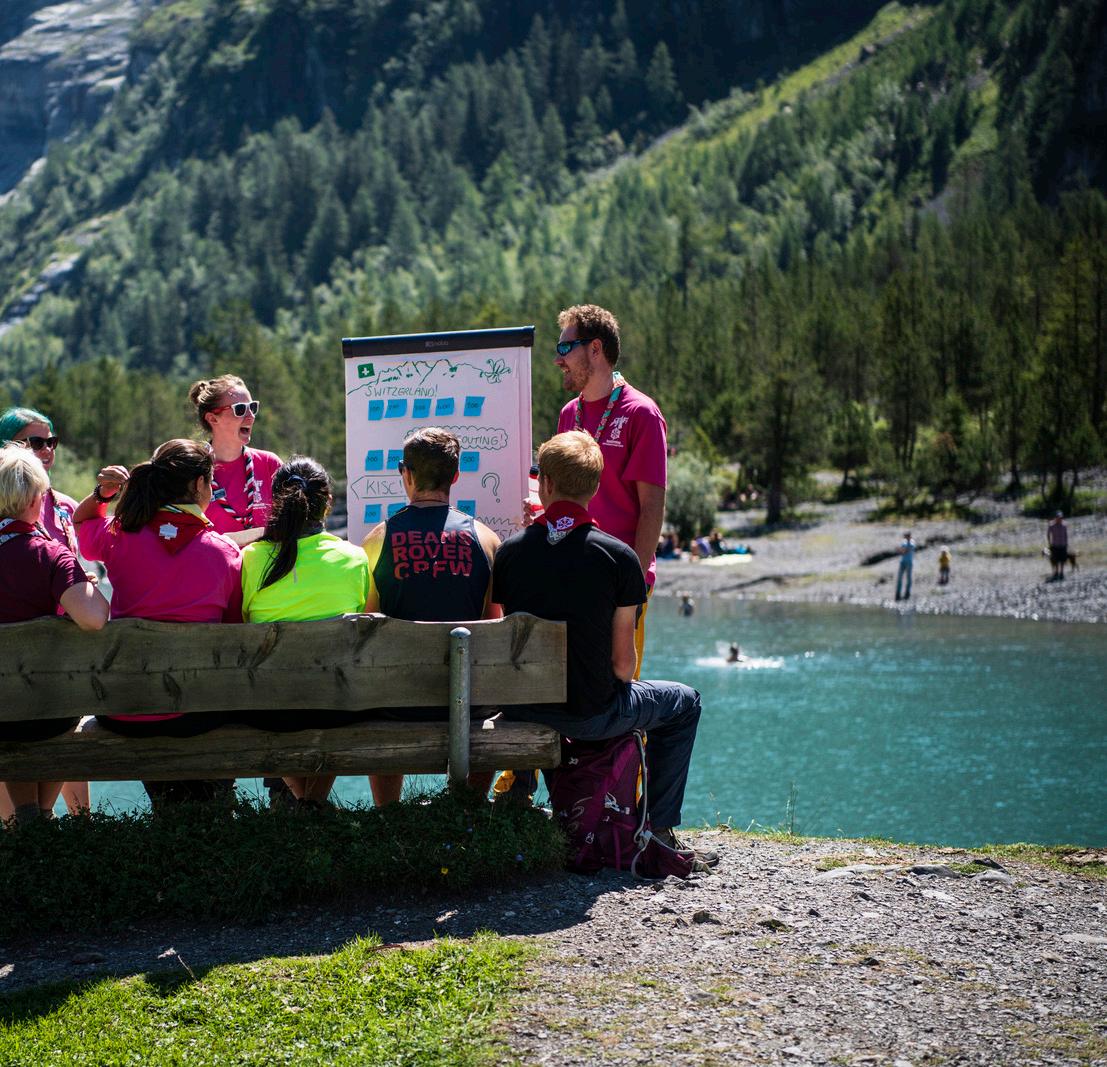
The WOSM Fees Task Force was originally established and confirmed following the 40th World Scout Conference in 2014 with the purpose of developing proposals for a new registration fee model and voting systems for WOSM. While the work on voting systems was completed in the 2014-2017 triennium, additional time was required to complete the work on the registration fees and the Task Force was thus extended with a new mandate into the 2017-2020 triennium.
The Task Force completed its consultations with key stakeholders and provided a recommendation of a new fee model to the WSC at its meeting in April 2018. The WSC subsequently endorsed the proposed model, and considered the formal mandate of the Task Force completed. From April 2018 forward the WSC took ownership of the endorsed fee proposal itself and ensured an extensive information and engagement effort with NSOs including:
• Developing a dedicated webpage featuring documentation, video and an NSO fee calculator available in five languages, which has continued to evolve over the triennium
• Hosting dedicated sessions during Regional Scout Conferences.
• Engaging directly with NSOs who had additional questions or alternatively had not yet engaged on this topic, ensuring organisation-wide awareness on the proposed model.
In early 2021, the WSC considered the impact of COVID-19 on NSOs leveraging a broad survey conducted by WOSM, as well as recent economic data available from the World Bank and WOSM census returns. As such, the WSC decided at its meeting in March 2021 to put forward a proposal to the 42nd World Scout Conference that entails continuing with the current frozen fee system until the end of the next triennium. In addition it proposes to the Conference to pass authorisation to the WSC to continue the frozen system for another triennium in the case that economic and membership stability has not yet returned by 2024.
OBJECTIVE: Improve the fee collection process in WOSM with NSOs satisfied with the level of their contributions.
KPI: The Task Force will deliver a report and proposal for decision to the WSC prior to 42nd World Scout Conference.

The WOSM Languages Task Force was mandated to conduct research into the accessibility of WOSM languages and identify opportunities for improvement, as requested through Resolution 2017-09. In addition it was tasked to develop a series of recommendations and proposed actions that WOSM can take to improve languages accessibility within the Movement and the World Scout Bureau.
Between January and September 2018, the Task Force conducted research into the accessibility of languages within WOSM through the following methods:
• Reviewing various target audiences and groups and mapping their language needs.
• Reviewing the current use and practice of languages throughout WOSM.
• Conducting a literature review of academic studies on languages, accessibility and cultural identity.
• Analysing the usage of languages around the world (primary and secondary) based on United Nations statistics and other datasets, and reflect these on the current usage of WOSM languages.
• Reviewing the language usage in different types of communication pieces sent out by WOSM at the World and Regional level in terms of size, relevance, objective and audience.
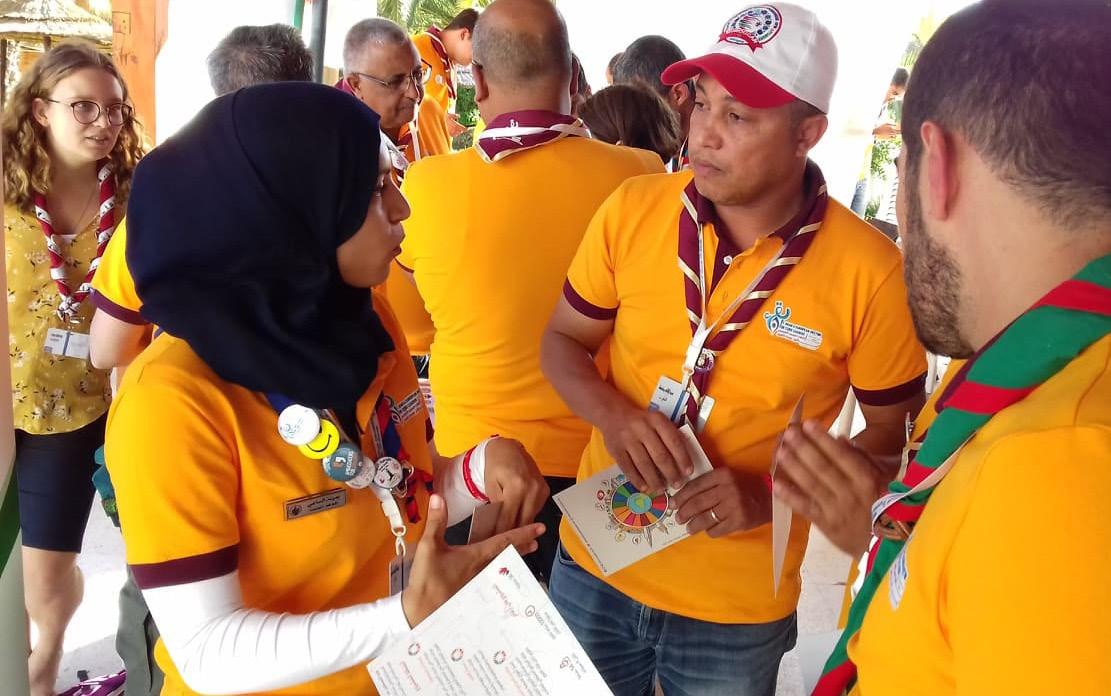
• Insights from interviews with World Scout Bureau staff working on languages.
• Insights from interviews with volunteer translators and interpreters supporting World and Regional events.
• Studying how similar multilingual international organisations to WOSM use, support and promote languages accessibility.
Following a review of the research by the WSC at its meeting in October 2018, the Committee noted the significant opportunities identified by the Task Force to improve WOSM’s use of languages in three operational areas: tools and operations, people and human resources, and events and meetings. The Committee further reflected that no strategic changes were required at this stage in WOSM’s language policies.

As a consequence, the Task Force collaborated jointly with the World Scout Bureau on the three areas identified with the following notable highlights:
• Languages capacity: Increased the number of translators and interpreters (World Scout Bureau staff, WOSM volunteers, NSO volunteers and professional contractors) available to support translation and interpretation service delivery, and upgraded the system to handle translation and interpretation needs.
• Networks: Strengthened the use of existing language-based networks within WOSM to improve the translation of materials.
• Events: Reviewed the operational use of languages at World Scout Events, ensuring Hosts are directly involved in the process to assess how event resources are best used to communicate in languages that are relevant for the needs of each specific event audience.
• Investment: Increased investment of human, financial and technical resources to improve the accessibility of languages through translation and interpretation. This included the hiring of a dedicated staff member to coordinate WOSM translation processes worldwide, an volunteer open call for translators and interpreters, as well as assigning staff and volunteer co-leads for each of the five WOSM languages.
• Operations: Developed clearer operational guidance to determine which communications and materials require translations and in which languages.
• Inclusivity: Ensured inclusive working methods for the use of languages within WOSM’s operations to enable volunteers with different language capacities to contribute to our efforts.
• Technology: Made better use of digital technologies to improve the speed and efficiency of translations through a WOSMwide deployment of SmartCat. In addition the pandemic enabled a significant increase in the use of technology to enhance simultaneous interpretation during events and meetings
• Volunteer engagement: Enhanced the recognition and engagement of volunteer translators and interpreters at the World and Regional levels.
• Data and analytics: Increased the use of statistical data and analytics to inform decision-making around the development of WOSM resources, and to monitor and evaluate which resources are used in various languages.
OBJECTIVE: Evaluate the use of WOSM working and official languages and provide recommendations for improvements in the use of languages in WOSM.
KPI: The Task Force will deliver a report and proposal for decision to the WSC on WOSM Languages prior to the 42nd World Scout Conference.
Following Resolution 2017-11 (“Review of WSC size for improved efficiency, accountability and effectiveness”) and Resolution 2017-12 (“Youth Advisor functions and responsibilities) of the 41st World Scout Conference, Baku 2017, the WSC set up a Task Force with the principal aims to gain feedback and make recommendations on:
• The size and effectiveness of the WSC;
• The role of Youth Advisors within WOSM.
To achieve the above outcomes, the Task Force conducted research into the functioning of the WSC focused around five key aspects: structure, size, accountability, effectiveness and function (roles and responsibilities) of the Youth Advisors. For the purpose of the research it gathered feedback from key cohorts within WOSM, namely a sample of NSOs (reflecting both regional spread and different sizes), current elected members of the WSC, current and former Regional Chairs, and Regional and World Youth Advisors.
The Task Force completed its mandate by issuing a report to the WSC in September 2019 with the following recommendations:
• Consider further defining job description, purpose and powers of all attending WSC meetings and further the sub-structures of the Committee (including an on-boarding programme).
• Consider to strengthen the WSC oversight on a strategic level.
• Consider embedding the overarching principles of the Operational Framework structures in the Committee’s Standing Orders, and in particular further clarifying the roles between governance (WSC) and executive (Secretary General, World Scout Bureau and appointed volunteers) bodies.
• Strengthen and innovate ways of communicating with NSOs regarding the work of the WSC.
• Consider more cost-effective and sustainable ways of engaging WSC attendees, including virtual attendance and meetings
• Develop an updated policy or strategy on youth involvement in WOSM decision-making.
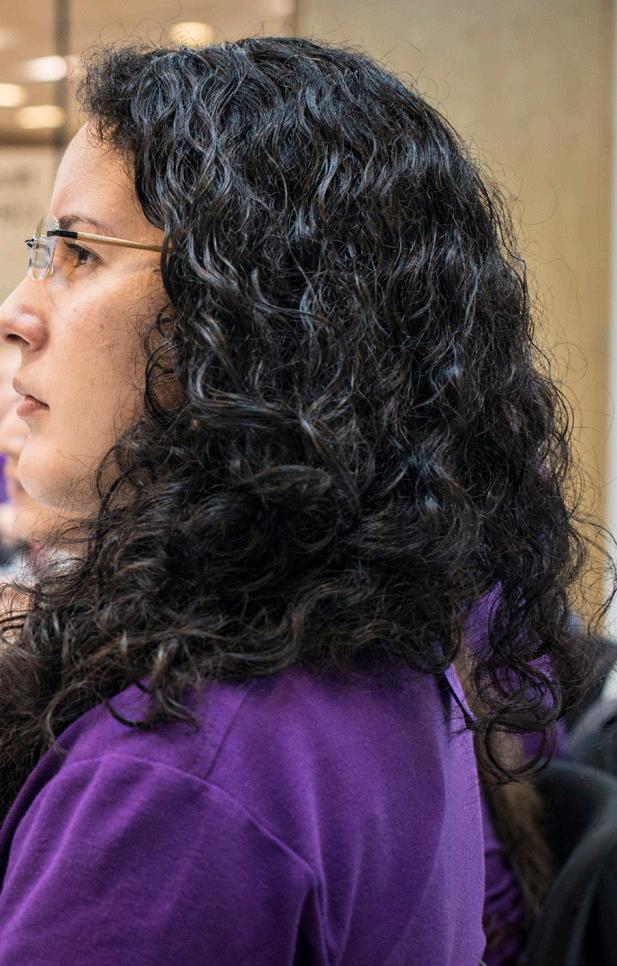
• If a system can be found that guarantees the presence of young members in the WSC, the current system of Youth Advisors could be discontinued, thereby indirectly reducing the overall size of the meeting attendees and delivering one of the requests of the Resolution.
• Within the WSC, a number of simple steps could be implemented to ensure Youth Advisors in the decision-making of WOSM (e.g. terms of reference, updating role descriptions and expectations).
Since the report was issued and reviewed in 2019, and with the approval of the WSC, the Task Force implemented the following actions:
• Updated the job description of WSC members as well as its Youth Advisors
• Developed amendments to the Committee’s Standing Orders to reflect the split between governance and operations in the Operational Framework, as well as requiring an annual review by the WSC of its Steering Committee’s remit.
OBJECTIVE: Evaluate the use of WOSM working and official languages and provide recommendations for improvements in the use of languages in WOSM.
KPI: The Task Force will deliver a report and proposal for decision to the WSC on WOSM Languages prior to the 42nd World Scout Conference.
Further building on Resolution 2017-14 “Bidding for Future Events – Code of Conduct” and noting recent evolutions in other international organisations, the WSC established this Task Force to:
• Investigate the role of ethical bodies in other organisations that operate internationally.
• Develop a WOSM Code of Conduct (behaviours at meetings, individuals and events).
• Develop a terms of reference, membership requirements and procedures for the operation of an Ethics Committee to deal with breaches of a WOSM Code of Conduct.
• Consider the implications, if any, of existing policies, guidelines and standing orders used by WOSM.
• Developed a role description for Regional Chairs of the WSC to facilitate a better understanding of the role.
• Contributed to an enhanced induction for incoming Regional Chairs into the WSC.
• Developed a terms of reference outlining the current involvement of Youth Advisors in the operations of the WSC.
During the first half of the triennium, the Task Force completed its mandate by developing the terms of reference for the Ethics Committee, creating a WOSM Code of Conduct , and revising the WOSM Complaints Policy. After this foundational work was done, the WSC requested the Task Force to test numerous complaints and ethical scenarios against the established policies, ensuring their robustness. The Ethics Committee was subsequently formalised and appointed as a new Standing Committee of the WSC in February 2019.
OBJECTIVE: Establish an Ethics Committee and develop policies where needed.
KPI: An Ethics Committee will be established and up and running in line with international best practices.

The Task Force on the Evolution of the World Scout Youth Forum and World Scout Conference was created in response to Conference Resolution 2017-07 to develop proposals to facilitate the merging of the World Scout Conference and World Scout Youth Forum into a “new event” in 2023. The Task Force aimed to do this through a continued innovation of WOSM’s decisionmaking processes to increase youth participation, transparency, inclusivity, effectiveness and opportunities for sharing of good practices.

The Task Force engaged in a number of measures to gain a better understanding of youth engagement trends at the Conference and Youth Forum, as well as gain key perspectives from NSOs, who are ultimately responsible for making decisions and voting on any proposals at the World Scout Conference. This included:
• Analysing the attendance data from previous Conferences and Youth Forums and highlighting an emerging trend of NSOs including young people in the Conference without them having attended the Youth Forum. This information further necessitated the need to explore options for evolving the Conference and Youth Forum into one event by 2023, and to ensure greater youth involvement.
• The Task Force also organised four rounds of consultations via surveys and face-to-face meetings which included:
- Measuring overall satisfaction with the Conference and Youth Forum.
- Analysing how decision-making can be made more inclusive, both culturally and in line with the World Scout Youth Involvement Policy.
- Receiving suggestions and ideas for the “new event,” as well as best practices that should be incorporated.
- Conducting face-to-face interactions at the 24th World Scout Jamboree and the Regional Scout Conferences, as well as consultations with the current WSC.
- Confirming the foundational principles on which the new event would be built.
In addition the Task Force built also on the innovations from the 41st World Scout Conference and those originally planned for the postponed World Scout Conference in 2020. As such, it established the foundations and principles for the “new event” in 2023, at the same time ensuring it combines learning and educational elements which promote opportunities for personal growth of participants and more effective decision-making.
Based on results from the consultations, the Task Force recommended that a “new event” replace the existing format of the Conference and Youth Forum in 2023 and be guided by four key dimensions when conceptualising the “new event”: Working methods, programme of the event, youth engagement, and solidarity. A final report was issued to the WSC in March 2020, following which the WSC moved a Draft Resolution and published a Conference Document to advance the recommendations of the Task Force.

OBJECTIVE: Ensure greater youth engagement and more innovative working methods in key world-level WOSM statutory decision-making bodies.
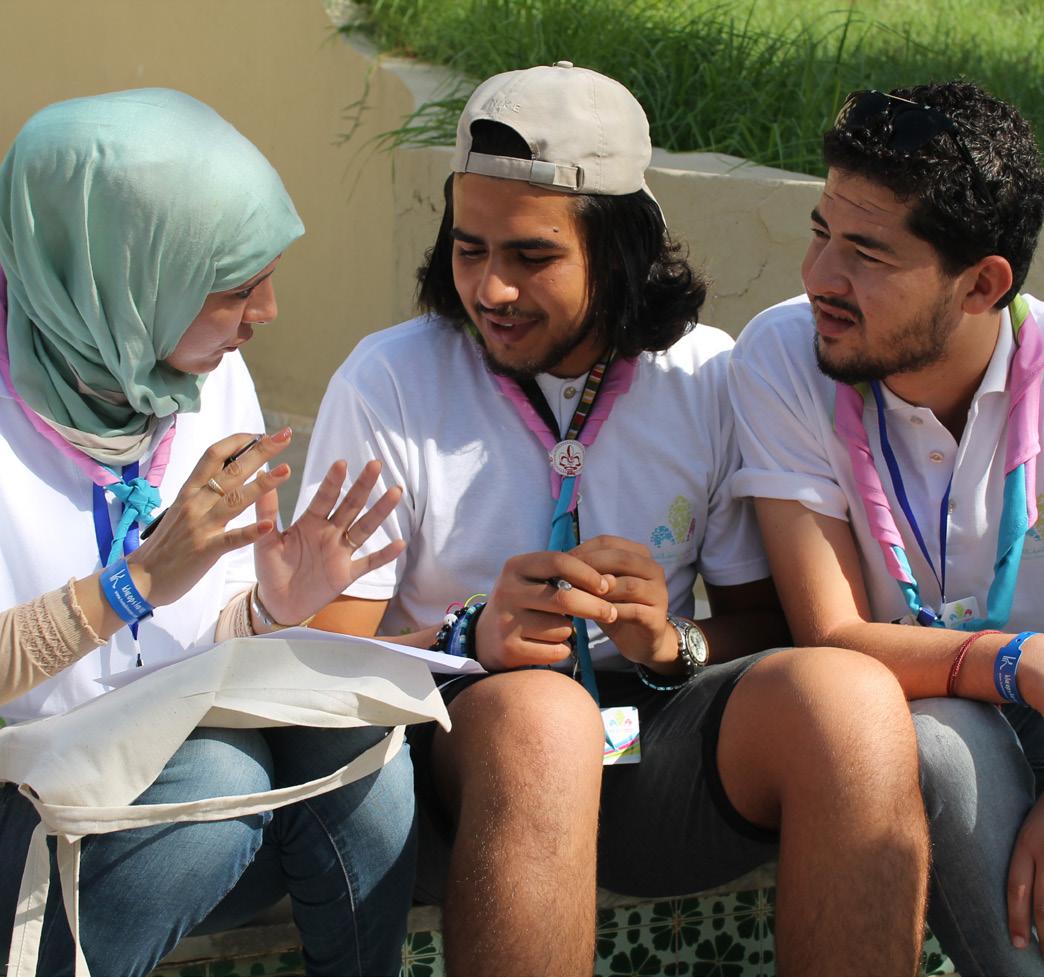
KPI: The Task Force will deliver a report and proposal for decision to the WSC for evolving the World Scout Conference and World Scout Youth Forum into one event by 2023 in consultation with NSOs.


WOSM’s 100-Day Emergency Response to COVID-19

WOSM’s 100-Day Emergency Response to COVID-19
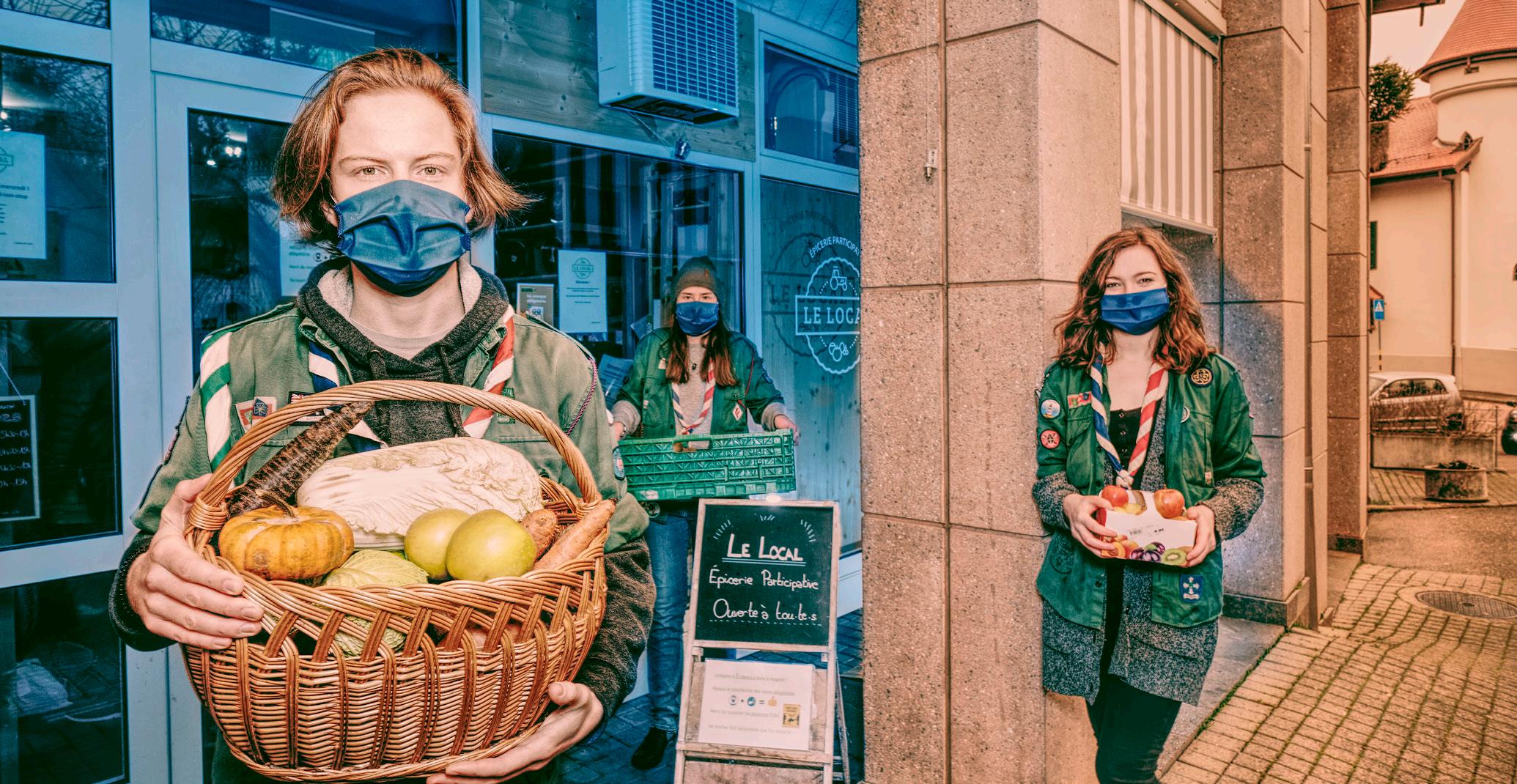
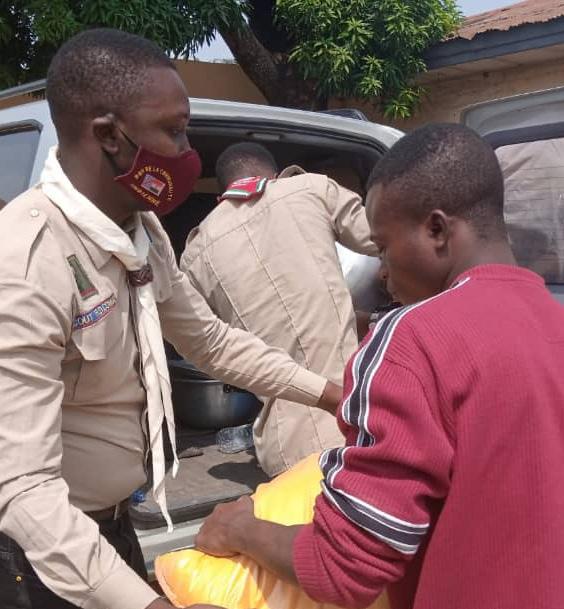

The start of 2020 marked a season of unprecedented times for the world at large and for WOSM. Despite the challenges that the COVID-19 pandemic posed, Scouts around the world mobilised and courageously demonstrated the resilient spirit of Scouting by quickly adapting and leading the charge to support young people and communities in need.
At the onset of the pandemic, WOSM’s primary focus was on providing information, protecting the best interest of members, and being a source of stability for the Movement. Towards that end, a number of initial measures were enacted:

• World Scouting’s COVID-19 Support Centre was launched as a key information hub for Member Organizations.
• Regular advisories were issued and the situation in all Regions was monitored closely by Global and Regional Support Centres.
• Several events were postponed or cancelled such as the World Scout Moot, World Scout Conference, Inter-religious Symposium and Africa Scout Day to mitigate the spread of the virus.
• All World and Regional Scout Committee meetings were convened virtually.
• A new agile approach dedicated to short-term projects and transversal team collaboration was piloted.
• Detailed contingency plans for world and regional events were created.
• A new Special Edition of JOTI was held to enable young people and volunteers to connect during the early months of the pandemic.
• A range of targeted efforts such as on-thejob training for selected NSOs, social media awareness campaigns, outreach to NSOs with high COVID-19 cases, and volunteer support to offset social isolation were delivered.
To support NSOs impacted by the pandemic, WOSM rolled out a 100-Day Emergency Response Plan to provide guidance, build NSO capacity, and offer relevant, timely, and adaptable resources to complement existing efforts within NSOs. A summary of the four projects and key outcomes can be found on the following pages.
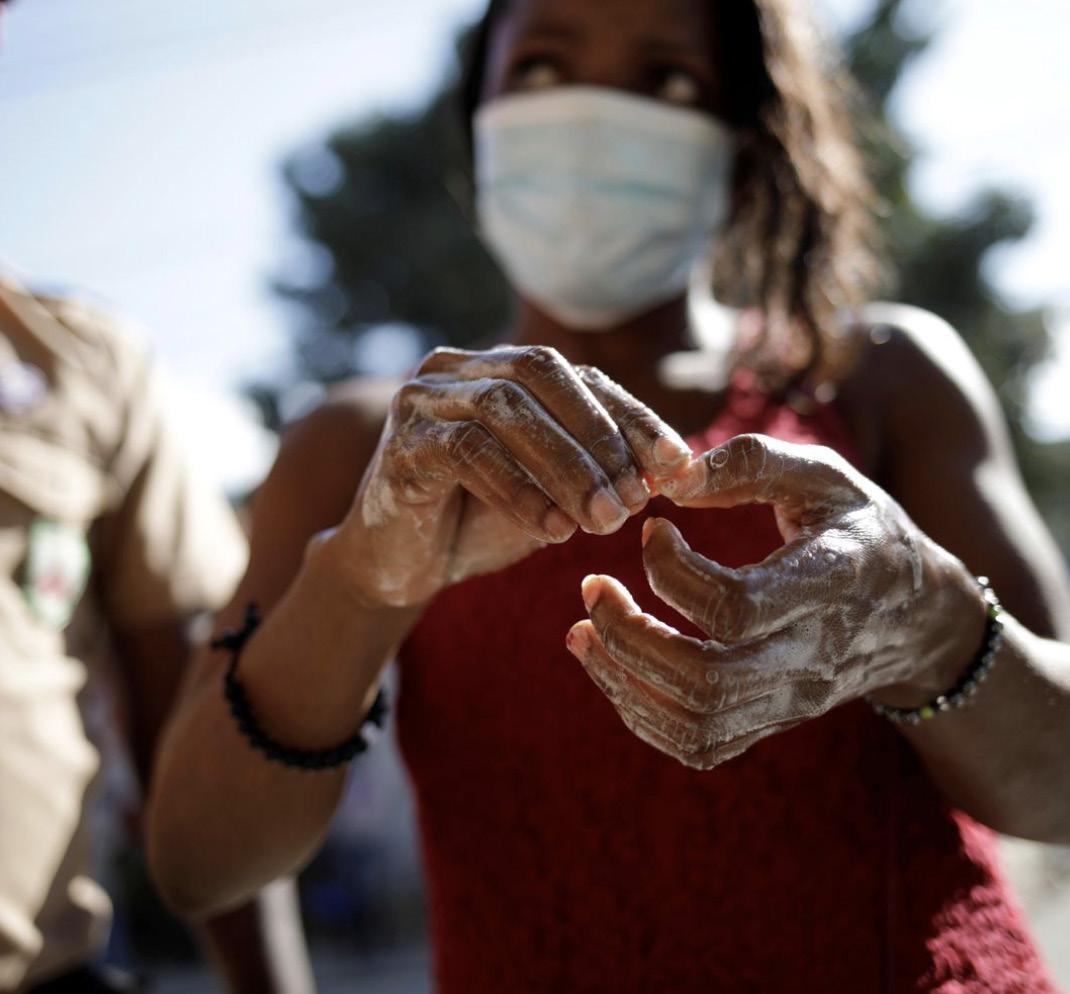
The World Scout Academy aimed to inspire and equip participants with the knowledge and skills to successfully lead their organisations and facilitate Scouting during new realities caused by the pandemic. Over the course of eight weeks, the Academy offered a total of 64 online sessions across 23 learning paths to over 4,000 participants.

The sessions were delivered by a total of 95 speakers from inside and outside of the Scout Movement. Participants had the opportunity to learn using various online tools, interact with experts, and exchange knowledge with peers around the world. A particular effort was also undertaken to ensure the online safety of participants throughout the event.
The World Scout Academy officially concluded with a closing ceremony held on 15 August, looking back at the outcomes of the 100-day emergency response initiatives and looking ahead to WOSM’s Plan for 2020-21.
The Scouting @ Home and Beyond initiative aimed to offer NSOs and Adults in Scouting access to tools, resources and learning opportunities to stay connected, adapt their national Youth Programme for delivery from home, and support the transition back to inperson Scouting activities.
During the 100-day period, the Scouting @ Home and Beyond initiative developed 37 resources in multiple languages, delivered 13 webinars, and created two e-learning courses and several videos for NSO leadership and Adults in Scouting, all available through a new Scouting @ Home and Beyond support area on the WOSM Services


The Humanitarian Action initiative was created to provide support and equip NSOs and consultants with relevant tools to scale up their humanitarian programme. New resources were developed under the WOSM Service on Humanitarian Action drawing on the experiences and best practices from NSOs, experts and partners working in the area of COVID-19 response and humanitarian action. Webinars delivered as part of the World Scout Academy also focused on providing practical guidance to NSO leadership around COVID-19 response and recovery.
The Communications and Resource Mobilisation initiative focused on showcasing the response by Scouts and NSOs to COVID-19 around the globe - from Scouts in Guyana addressing food insecurity to Scouts in Tunisia bringing students back to school to Scouts in Georgia teaming up with the Red Cross to promote health and safety. New partnership resources were also created for NSOs to help position Scouting as a leading educational youth Movement at the national level, including an e-learning course, partnerships guides and case studies, new content on the Members Portal, and an Memorandum of Understanding template for NSOs to use when establishing new collaborations.
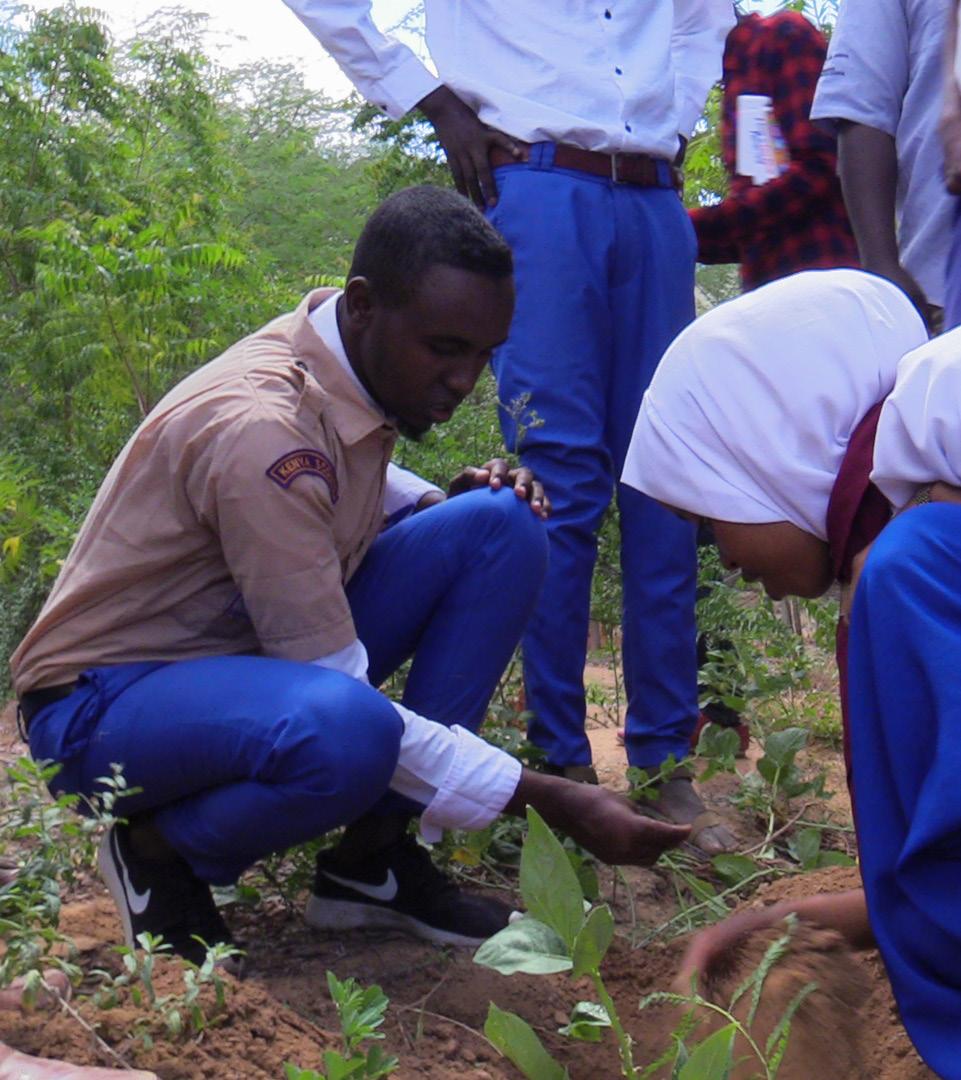
In September 2020, following WOSM’s 100-Day Emergency Response Plan, the WSC approved the “Growing Stronger Together” Plan. The plan placed a key emphasis on providing valuable support to NSOs, gaining a deeper understanding of emerging priorities in a post-COVID-19 context, and laying the foundation for the next triennium. The pillars of the plan were to:
• Support membership and volunteer and growth;
• Support Scouting through new financial realities;
• Strengthen Scouting as a key player in local communities;

• Better connect the Scout Movement in-person and online;
• Strengthen operations with a focus on long-term sustainability.
The Workstreams which were developed for the 20172020 period were embedded in the Growing Stronger Together Plan design, however the methodology shifted from long-term working units to small, short-term and focused projects using an agile project management approach. Below are the key highlights from each of the projects that emerged from the Growing Stronger Together Plan.
The aim of the project was to support NSOs to enrich their Youth Programme and to ensure the relevance of Scouting in a post-COVID-19 context by promoting the Guide to Youth Programme in Scouting (GPS), making use of the Youth Programme Self-Assessment Tool, and supporting NSOs to resume in-person activities in a safe and healthy way.
Key achievements of the project included:
• Delivering six regional webinars in the five WOSM languages to promote the GPS and support NSOs to adjust and adapt their Youth Programme.
• Promoting the Youth Programme SelfAssessment Tool to support NSOs to review and improve their educational offering, including a workshop to adapt the Youth Programme to a post COVID-19 reality.
Six regional webinars were delivered in all Scout Regions and in all five WOSM languages reaching 1,453 participants from 76 NSOs and NSAs.
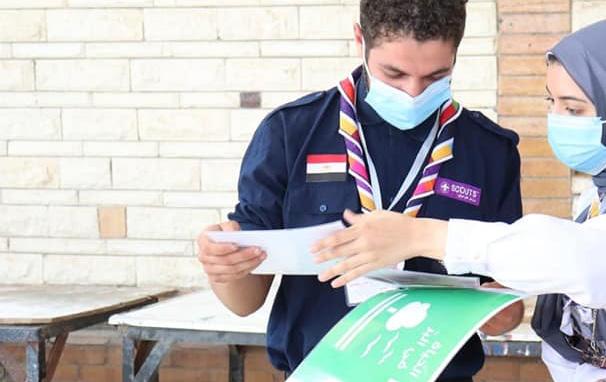
The aim of the project was to further develop and streamline the Better World Framework and its contribution to the Sustainable Development Goals (SDGs). This included promoting the Earth Tribe and Messengers of Peace initiatives, and developing programmatic elements in the area of health and well-being.
Key achievements of the project included:
• Published “Scouts for SDGs in the community ”, which provides a more structured support to align Scouting’s contribution to the SDGs on an NSO level.
• Creating an updated framework through the Earth Tribe initiative for environmental education and sustainability that aligns with current trends and demands around climate action.
• Developing resources on “re-opening Scouting”, supporting NSOs on how to resume in-person activities, including a dedicated website, the “Back 2 our Nature” guidelines, a checklist and NSO best practices. All of these are available in the Scouting @ Home and Beyond area in the Youth Programme Service.
• Realigning Messengers of Peace as a Better World Framework Initiative for peace and community engagement, to enable a more integrated approach and connection with the SDGs.
• Developing a programmatic concept for a new health and well-being initiative.
• Publishing an updated version of the Guidelines for SCENES (Scout Centres of Excellence for Nature, Environment, and Sustainability).
This project was a critical component to building NSO capacity in humanitarian action and raising Scouting’s profile during the pandemic.
Key achievements of the project included:
• Strengthening the partnership with UNHCR through joint initiatives, such as the recognition of World Refugee Day and a joint webinar for NSO leadership and UNHCR country offices.
• Publishing and promoting three new resources, including a Scouting in Humanitarian Action Settings Manual & Action Kit , as well as Capacity Building in Humanitarian Action for NSOs.
• Identifying gaps in resources and knowledge of WOSM Consultants specialised in Humanitarian Action through three training webinars focused using the new resources, as well as on dialogue and risk reduction.

• Aligning WOSM’s humanitarian action strategy with the Global Compact for Young People in Humanitarian Action as co-leads of the Task Force on Capacity Building, placing a focus on post-COVID-19 realities and engaging young people as key actors in humanitarian settings.
“The full commitment to partnering with the Scout Movement is seeing this as a huge opportunity for us, and especially for the young people that we serve. The Scout Movement is the world’s largest youth organization with more than 57 million members, and it is of course a fantastic network that provides a new opportunity for young people who are displaced or stateless.
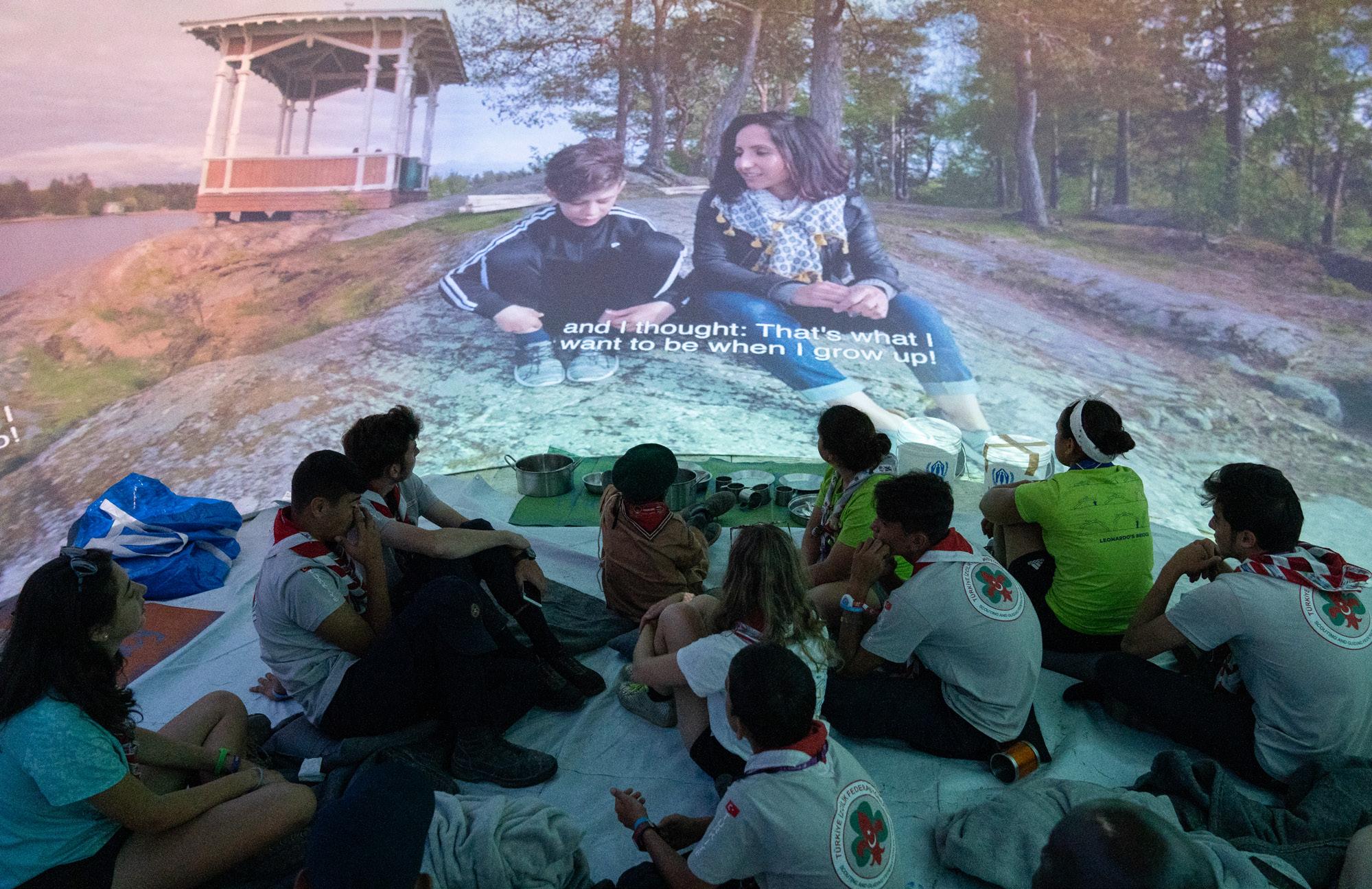 Ingela
Ingela
Stahl-Zulu, Senior Partnership Officer, UNHCR
In the light of the COVID-19 pandemic, young people who were already in especially difficult circumstances became even more vulnerable by experiencing increased inequalities and more barriers to education and a prosperous life.
The aim of the Diversity and Inclusion project was to expand and scale up the Ticket to Life project to multiple countries and continents. Ticket to Life supports these young people by providing holistic services that address education and training needs along with social support and life skills.
In addition the project aimed to research and develop a diversity and inclusion reality check methodology for NSOs, enabling us to develop an action plan to rollout in the next triennium.
Key achievements of the project included:
• Strengthening the new framework for the Ticket to Life initiative by developing support resources, including a comprehensive criteria checklist for NSOs, a training package for leaders to complement to their regular adult training, and a list of potential partners and target groups to sustain the project.
• Developing a diversity and inclusion reality check methodology paper with concrete proposals for its implementation in the next triennium.
The Ticket to Life initiative has grown and impacted the lives of thousands of street children, mainly in the Asia-Pacific Region. In the next couple of years, the Ticket to Life initiative will expand particularly in the Africa Region to reach more vulnerable young people, especially children living in difficult circumstances, and be present in three Scout Regions
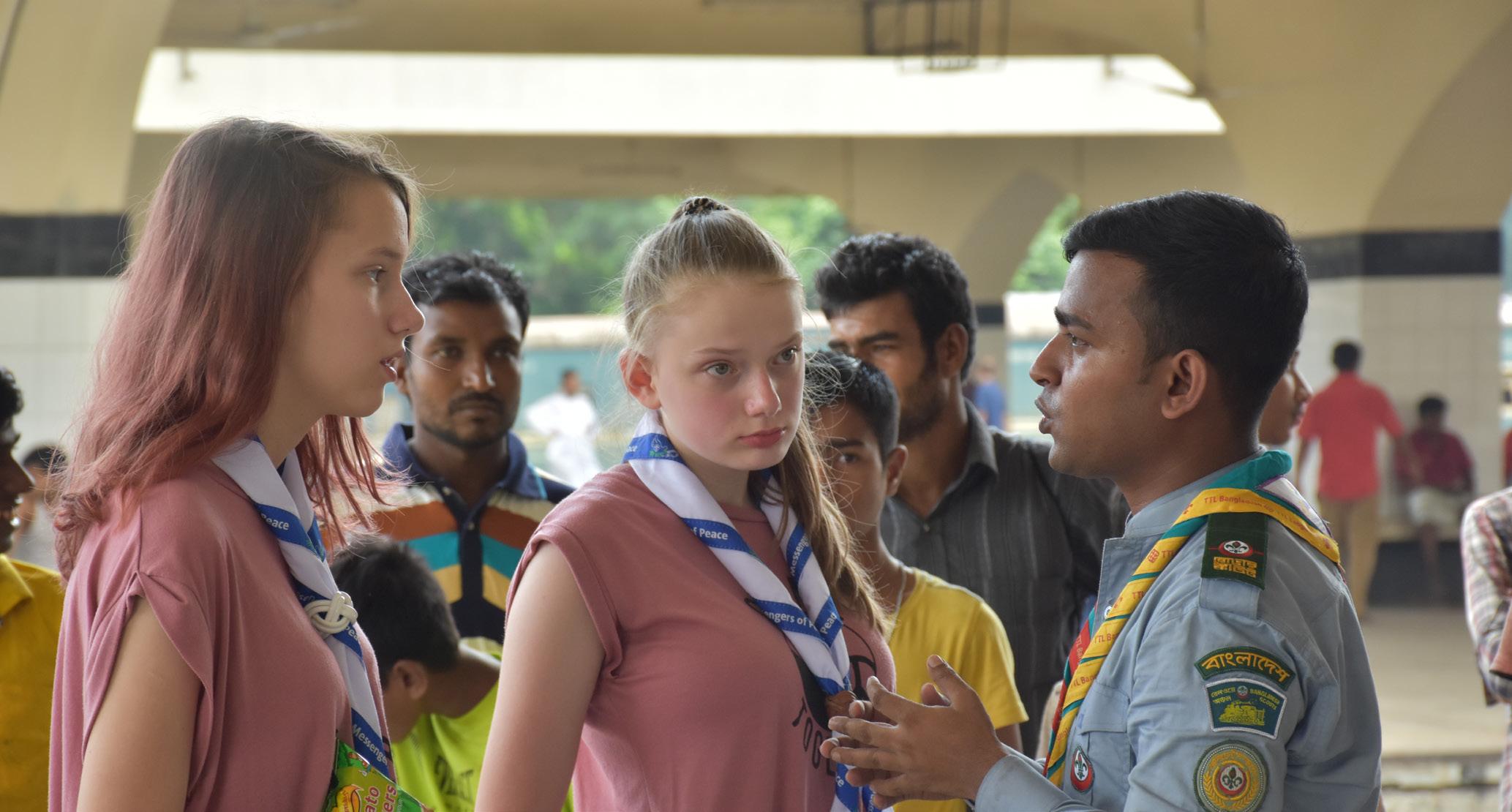
“The Ticket to Life project improved our Youth Programme through the training offered. This initiative will also contribute to the development of young people by giving them new opportunities to enrol in Scouting activities.”
The COVID-19 pandemic had a huge impact on the lives of young people and exposed the already existing inequalities in our societies. This project focused on initiating the development of a new Youth Engagement Strategy. This was done by asking young people how to improve their involvement in decisionmaking at all levels of Scouting, and how we can support them to continue to lead the way in making the necessary changes and improving their communities to create a more fair, just an equal world.
Key achievements of the project included:
• Developing the goals and objectives of the draft Youth Engagement Strategy through conducting several focus groups including with global and regional Youth Advisors and other regional and national stakeholders. The results of this work are articulated in a Conference Document on the Youth Engagement Strategy.
• Reporting on the Strategy on Youth Involvement 2011-2020.
• Delivering a workshop on increasing young people’s involvement in decision-making and youth leadership.
• Developing and promoting the National Scout Youth Forum Guidelines.
• Collecting and sharing best practices on youth engagement.
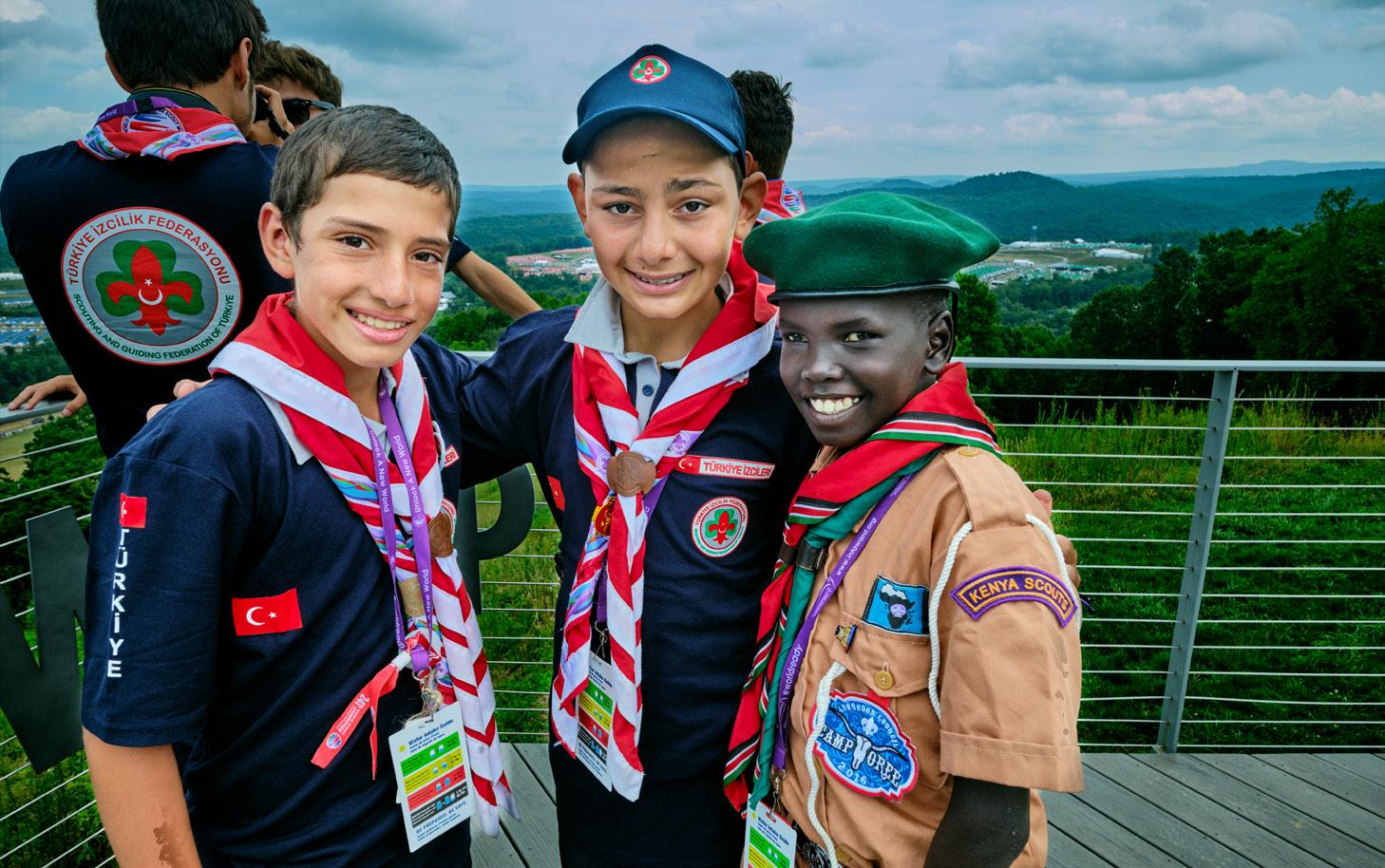
The aim of this project was to support NSOs during a challenging time with their storytelling, social media campaigns, and advocacy efforts through the engagement of youth representatives and capacity strengthening for members of the Global Communications Network. In addition, a series of advocacy briefs were developed around specific issues to create a framework to support NSOs in advocating on local and national issues. Key achievements of the project included:
• Developing an advocacy plan outlining WOSM’s goals and positions as a Movement, created for those representing the Scout Movement externally among partners, donors and other stakeholders.
• Developing seven advocacy briefs that outline different positions and goals in relation to the environment, sustainable development, skills and employability, gender equality, peace, human rights and youth rights, and humanitarian action.
• Creating an engagement plan that included a capacity building calendar for the Global Communications Network to equip NSOs with communications skills, involve them in global campaigns, and align our Movement on messaging, branding, storytelling and campaigning.
• Developing an Influencer Marketing Guidebook to work with micro-influencers at global, regional and national levels to broaden our audience outreach, contribute to growth, and promote different aspects of Scouting.
• Creating a brief storytelling guide to support NSO with showcasing the success of local Scout projects and raise the profile of Scouting programmes among partners and potential donors.
• Creating a concept for a regular live-streamed show to keep Scouts connected around the world despite a halt in physical events.
As part of profiling Scouting externally, World Scouting started its Scouts Live programme, a live-streamed show where Scouts from around the world can tune-in, learn new skills, meet special guests and get the chance to call into the Scouts Live show. The show is a way to keep Scouts connected and feeling part of a global family, while enabling them to discover different Scout projects and skills and connect with other Scouts.

The aim of the project was to enhance digital transformation and engagement across World Scouting by supporting NSOs and WOSM Consultants to strengthen their digital capacity. In addition the project supported the conceptual design of a digital platform for World Scouting’s educational programmes and Better World Framework initiatives.
Key achievements of the project included:
• Creating a database of digital tools.
• Conducting a discovery workshop for global citizenship education and creating an implementation plan for a digital platform for World Scouting’s educational programmes and Better World Framework initiatives.
• Developing a Digital Readiness SelfAssessment Tool for NSOs, and piloting a digital assessment for the recruitment of staff and volunteers.
• Testing an online hub for education technology and marketing technology.
• Scoping the requirements for a digital learning zone for WOSM Services resources and e-learning courses.
Given the pandemic, NSOs more than ever should be able to have easy access to WOSM Services and resources. The aim of this project was to identify and improve how WOSM Services and information to NSOs is communicated and accessed.

Key achievements of the project included:
• Conducting focus groups with 16 NSOs to capture feedback and needs of NSOs on internal communications.
• Updating the WOSM Services evaluation form for NSOs to share their experiences.
• Delivering a workshop for WOSM Consultants on impactful storytelling for the WOSM Services.
• Creating a content nomenclature, standardised categorisation and tags for the learning zone of WOSM Services resources.
• Creating a procedure for requesting translation and interpretation services.
• Developing a tracking tool to monitor the volunteer WOSM Languages Team status on translation and interpretation requests, and identify availability of translation and interpretation volunteers.
• Delivering a training to strengthen the skills of interpreters.
This project set out to generate new funding leads and opportunities for WOSM at large, secure additional funding sources, and provide NSOs with the tools and resources to develop and manage partnerships.
Key achievements of the project included:
• Researching and developing a master funding prospect list with more than 100 institutional, philanthropic and private sector partners and donors.
• Producing a series of funding proposals and developed a package of marketing and fundraising collateral to engage prospective funders and donors.
• Publishing a new partnership resources for NSOs to position Scouting as a leading educational youth movement, including an e-learning course, partnerships guides and case studies and Memorandum of Understanding template.
• Scoping the requirements for a contact relationship management system to better manage partner and donor relationships
• Securing funding from the World Health Organization through the Global Youth Mobilization project and establishing the Reenergising Scouting Fund to support NSOs with membership recovery, retention and growth.
• Securing additional funding from UN Environment to expand programming and digitisation of the Earth Tribe initiative.

The world’s largest youth organizations and the World Health Organization launched a Global Youth Mobilization to respond to disruptive impacts of COVID-19 on young people. The mobilisation effort featured the convening of a Global Youth Summit, and a fund of $5 million USD to support local and national youth organizations, including grants and an accelerator programme to scale up youth-led solutions to COVID-19.
In early 2021, a special Re-energising Scouting Fund was established by WOSM in collaboration with the World Scout Foundation and leveraging an innovative partnership with the World Health Organization. The new fund offers $1.2 million USD in additional direct support to promote membership recovery, retention and growth among NSOs impacted by the COVID-19 pandemic.

This project addressed the needs of NSOs to diversify their income streams. It engaged NSOs in discussions through a series of online webinars and showcasing best practices from all around the world that can be used and adapted to each NSO.
Key achievements of the project included:
• Conducting a capacity assessment of NSOs to identify the financial and operational impact of COVID-19 through an impact survey, NSO checklist and assessment tool aligned with GSAT.
• Developing new resources to support NSOs in developing a fundraising strategy, including templates and guides for developing a fundraising plan, mapping donors and programmes, and pitching projects to potential funders.
• Delivering a series of webinars on crowdfunding, individual giving, and good practices in fundraising strategies and corporate partnerships from NSOs.
• Collecting best practices from NSOs on developing a fundraising strategy, aligning NSO programmes with country priorities, and maximising revenue from existing sources.
This project aimed to raise awareness and better understand the needs of NSOs through a data survey on Safe from Harm capacity and compliance. The project focused subsequently on supporting WOSM Consultants to provide improved and enhanced support to NSOs with a specific focus on online safety.
Key achievements of the project included:
• Delivering multiple webinars, including the training of 20 new Safe from Harm Consultants and up-skilling WOSM Consultants worldwide.
• Developing three new toolkits for the Youth Programme around online safety, and supporting the mental health of young people and Adults in Scouting.

• Creating an updated e-learning package, including the creation of a new course for online events.
• Conducting a survey targeting more then 60 NSOs worldwide to better understand their Safe from Harm capacity and needs.
• Developing guidelines and eLearnings for improving Safe from Harm compliance during World Scout events.
The scope of this project was to support NSOs to develop, implement and monitor their growth strategy with an increased focus on retention of both youth members and adult volunteerstwo areas directly affected by the COVID-19 pandemic.
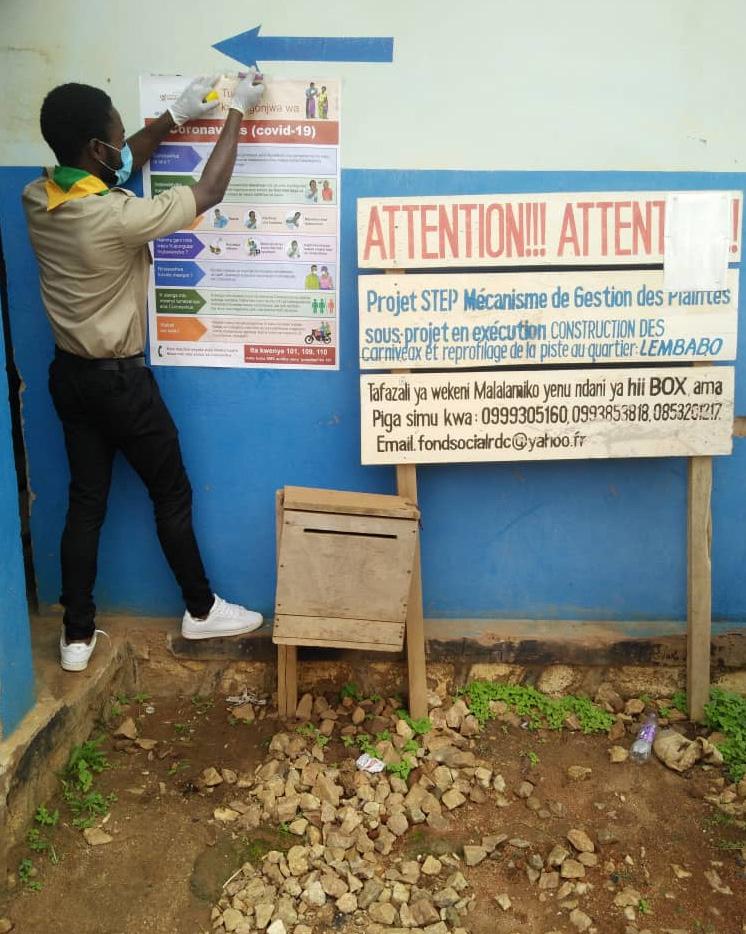
Key achievements of the project included:
• Developing and curating 27 resources for NSOs supporting them with ideas, inspiration and practical advice on how to retain and grow their membership during and after the pandemic.
• Helping prepare the Adults in Scouting and Growth Consultants to provide mentorship and work together with NSOs in innovating and implementing solutions for membership retention and growth, in alignment with the Adults in Scouting Policy
• Encourage NSOs to leverage the Re-energising Scouting Fund in their membership recovery, retention and growth plans.
• Delivering a series of webinars and networking opportunities (“Growth on Thursdays”) for NSOs to share best practices, challenges and opportunities for membership retention and growth.
• Developing a new retention support area under the WOSM Growth Service, featuring resources such as the Retention Toolkit and a tool on growing membership during and postCOVID-19
• Developing a new membership and volunteer recruitment campaign platform, including a comprehensive recruitment guide and a set of practical tools, templates and resources.
This project focused on strengthening the targeted support provided to NSOs during the COVID-19 pandemic specifically by building skills in virtual service delivery and through the continuous development of the global pool of WOSM Consultants.
Key achievements of the project included:
• Strengthening the global pool of WOSM Consultants via trainings on delivering services to NSOs digitally during the pandemic.
• Launching a central digital hub for WOSM Consultants to get support using resources to help deliver great service to NSOs.
• Innovating around future WOSM Consultant trainings enabling us to better and more easily recruit and train Consultants in the service areas that NSOs need support in most.
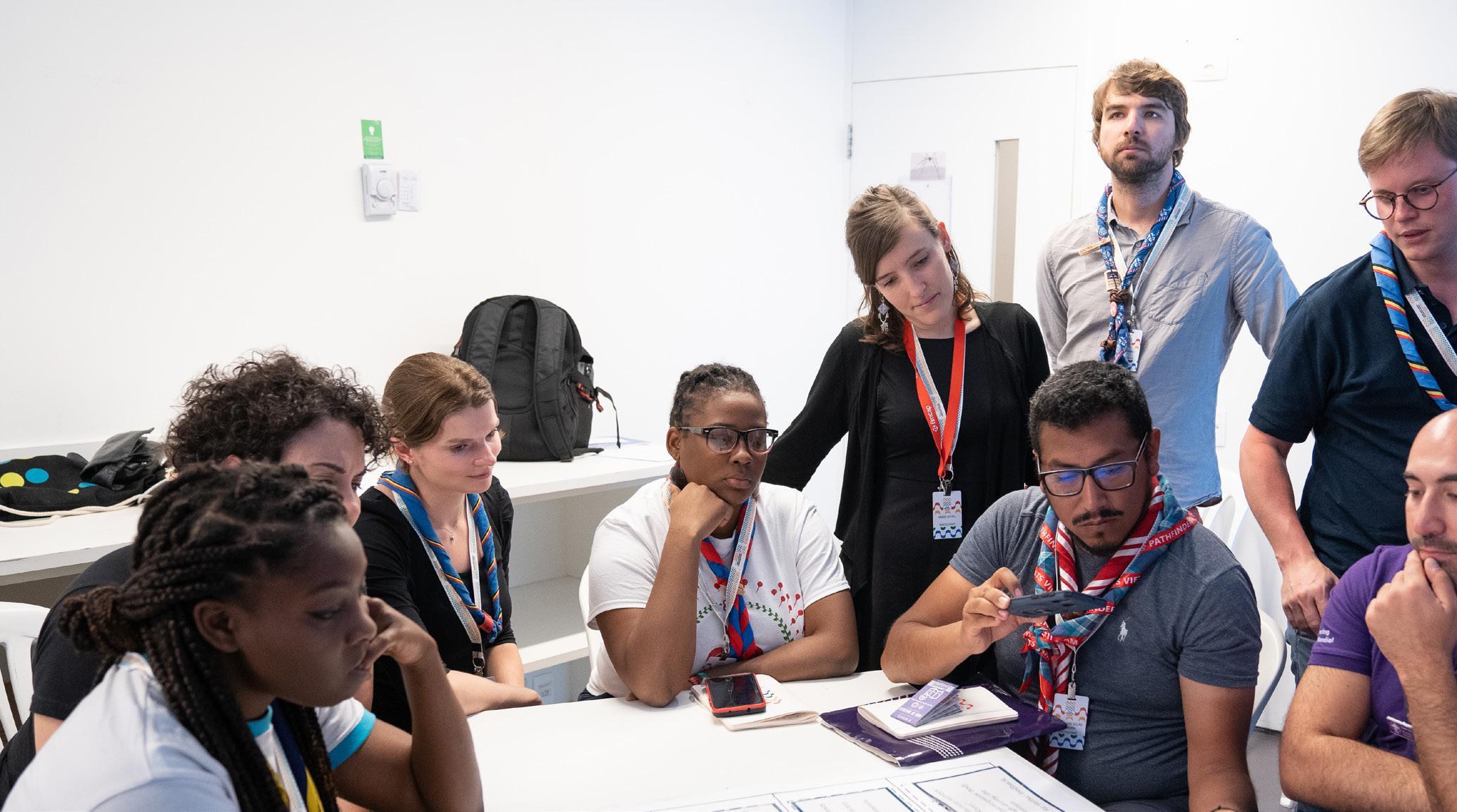
Around the world, more than 200 WOSM Consultants have been trained and equipped to deliver support to NSOs and now they are delivering support virtually. The National Association of Cambodian Scouts is among the many Member Organizations who took advantage of this virtual support during the pandemic. They became the first NSO to undergo a virtual assessment using the Global Support Assessment Tool (GSAT), World Scouting’s Quality Standard to measure the compliance of NSOs towards international best practices in good governance and quality Scouting.
This project aimed to facilitate continued dialogue, building communities of practice and facilitate peer-to-peer support between NSOs and bringing them closer together on specific topics. The Global Scouting Communications Network was used as a model to establish specific networks focused on the areas of growth, resource mobilisation and partnerships, and Safe from Harm.
Key achievements of the project included:
• Mapping existing networks and regional practices.
• Recruiting key volunteers and staff to coordinate and maintain the global networks.
• Setting up and launching the Global Scouting Safe from Harm Network .
• Setting up and launching the Global Scouting Growth Network .
• Setting up and launching the Global Scouting Partnership and Resource Mobilisation Network.

Messengers of Peace is World Scouting’s flagship initiative developed to inspire young people around the world to take action in their communities by contributing to peace and sustainable development. Over the past decade, Messengers of Peace has inspired over 16 million projects and actions which have totalled over two billion hours of community service.
In the final year of the 2017-2020 triennium, an evaluation was done to assess the overall impact and key learnings over the last 10 years, which included strengthening the grant management system, improving the capacity of NSOs to deliver highquality Scouting, identifying high-impact projects, and deepening support to NSOs through specialised funding campaigns. Here are some of the most notable accomplishments of the Messengers of Peace initiative.
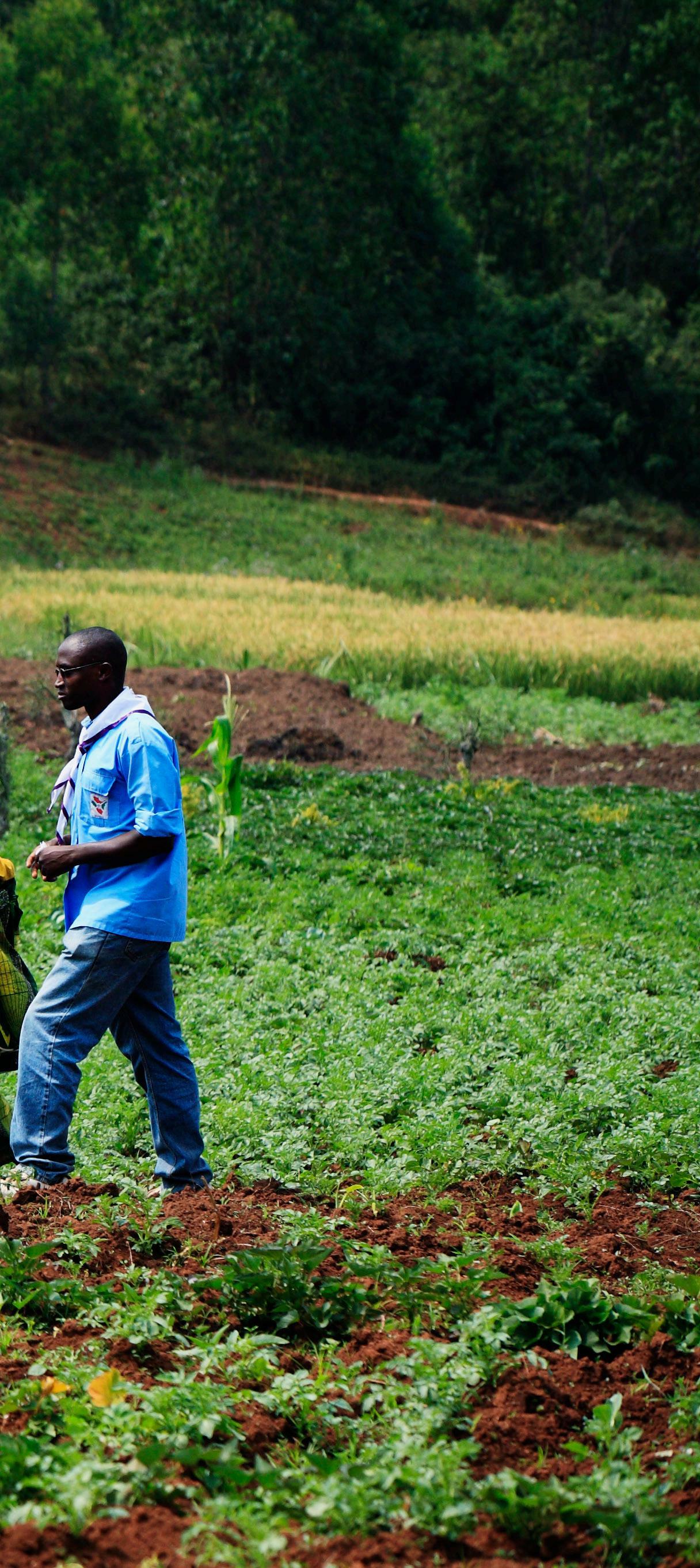
After 10 years of Messengers of Peace, an evaluation was conducted to gain a better understanding about the initiative’s impact, as well as to collect lessons learned that will enhance World Scouting’s capacity for programme implementation and grant management.
The evaluation used a combination of qualitative and quantitative methods collating data and information from nearly 4,000 Scouts, leaders and staff of WOSM. The goals and expected outcomes of the Messengers of Peace initiative were mostly achieved with some original expectations exceeded:
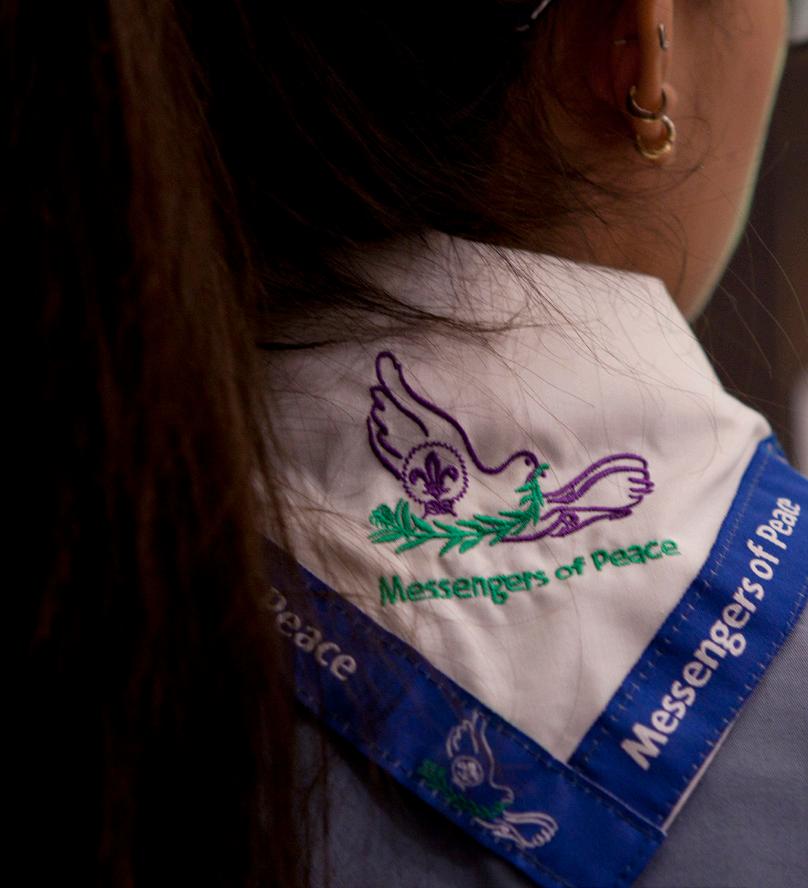
• The Messengers of Peace initiative was active in 127 countries at the community level, double the target of adoption in 60 countries.
• Over 4.7 million beneficiaries were reached, double the target of two million.
• The initiative mobilised some 28 million Scouts worldwide delivering over two billion hours of service to their communities.
• Scouts worldwide grew in the past ten years from 37 to 57 million members supported by Messengers of Peace projects to enable membership growth and strengthen the capacity of NSOs.
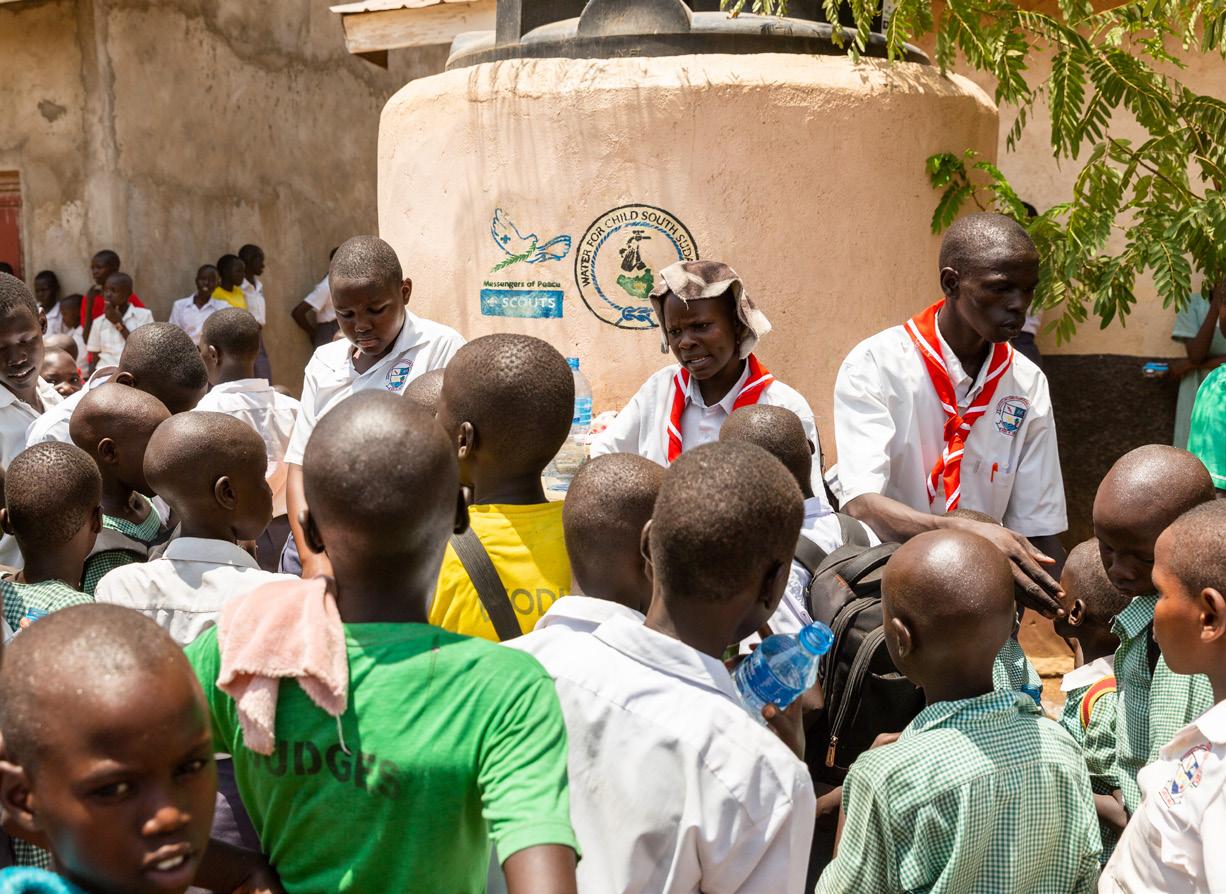
A key focus in managing the Support Fund for the Messengers of Peace initiative was centred on the continuous improvement of grant and project management at the global, regional and national levels. This past triennium saw a significant increase in project reporting and compliance by NSOs that benefit from Messengers of Peace funding.
In partnership with the World Scout Foundation, a new grant management software named Fluxx was procured and implemented to further streamline the grant management process and to continue to ensure high-impact projects and grant management. To support this transition, a capacity strengthening workshop was organised in 2018 for Regional Decision-Making Committees and staff supporting the grant management process from both the World Scout Foundation and the World Scout Bureau.
Now in its first year of implementation, an initial evaluation is being planned to further identify improvements for system usage, data reporting and project impact measurement for NSOs.
As part of WOSM’s efforts to promote membership recovery, retention and growth among NSOs impacted by the COVID-19 pandemic, a $1.2 million USD fund was established with support from the World Scout Foundation and the World Health Organization.
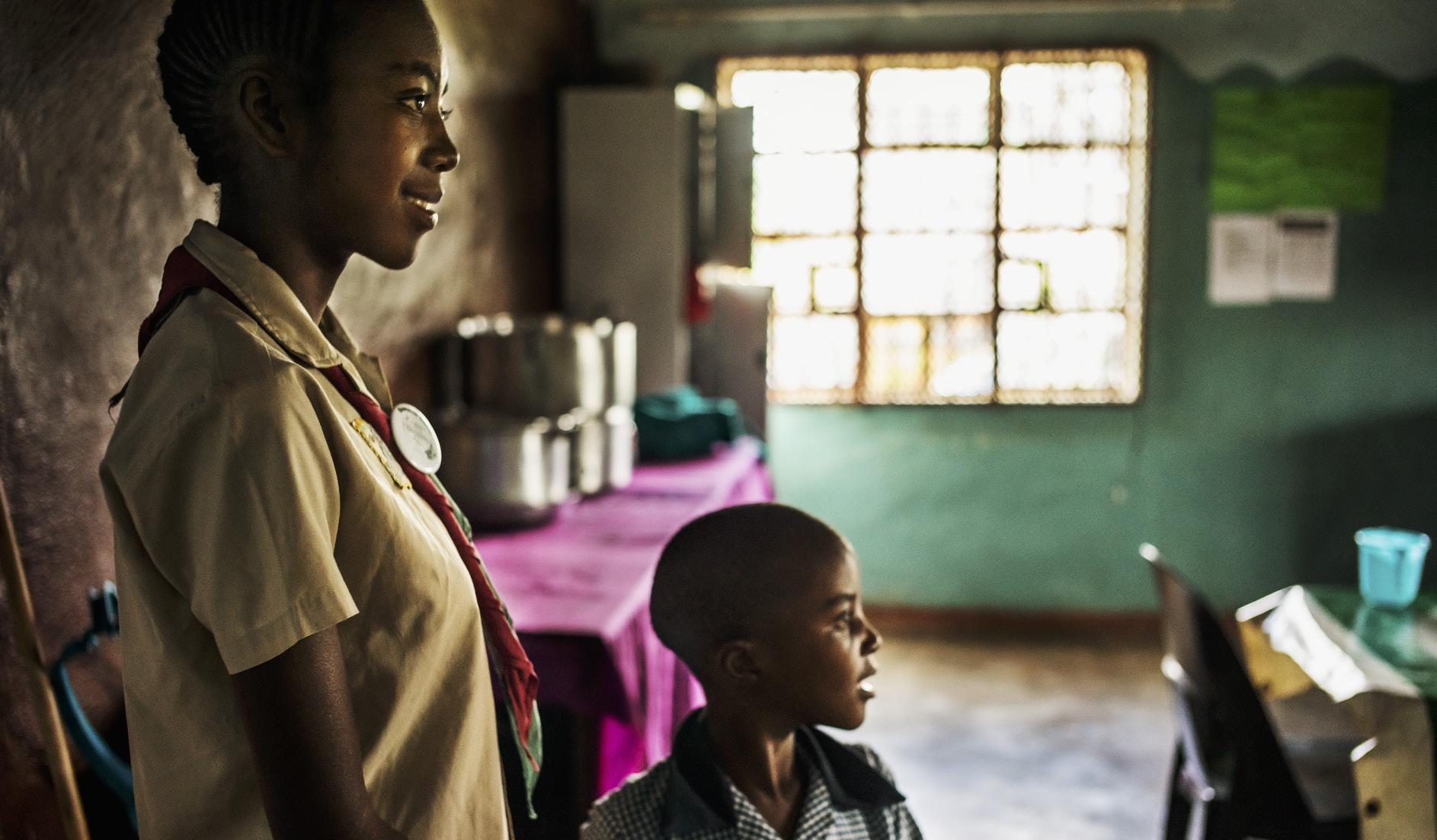
The Re-energising Scouting Fund is geared at inspiring young people to contribute to COVID-19 recovery and response efforts through voluntary service by supporting the activities of NSOs in two specific areas: recovery of membership lost during the pandemic and post-pandemic opportunities for Scouting to attract new members and provide community service.
So far, 11 initiatives have benefited from funding through the recovery fund to support projects such as developing Scouting in Albania, transformation for growth in Brazil, and membership recovery in Ecuador.
The Messengers of Peace Heroes Award was created in 2012 to recognise exceptional Scouts and volunteers who are working to create a better world. The award acknowledges and recognises the extraordinary service of young people and their contributions towards community development, the promotion of dialogue and peace, and relief in times of need.
Each year, Messengers of Peace Heroes are honoured with this award at a ceremony designed to inspire other young people worldwide to pursue community service with lasting and sustainable impact. During the triennium, we awarded 37 Messengers of Peace Heroes.
During its implementation over the past 10 years, the Messengers of Peace initiative has involved virtually all 172 National Scout Organizations with $27 million USD invested in over 532 national, regional and global projects, inspiring more than 16 million non-funded projects and actions.

The Scout Donation Platform was created to offer a social funding platform that could be used to link potential donors with Scouts around the world who are implementing service projects in their communities. The social funding platform, designed jointly with the World Scout Foundation, fills the needs of NSOs to fund smaller, local activities led by Scouts. In the past triennium, over 80 national Scout Donation Platform administrators were appointed by NSOs to review and support Scouts in their country.
Since its launch in 2017, Scouts all over the world have used the Scout Donation Platform to share their vision of a better world and raise funds for causes they care about. To date more than $367,000 USD has been raised to support over 90 community projects with 100% of proceeds going directly to support successful initiatives – everything from running menstrual health education programmes in Madagascar to flood relief projects in Fiji.
Scouts for SDGs is WOSM’s global mobilisation effort to engage young people in making the world’s largest coordinated youth contribution towards achieving the Sustainable Development Goals (SDGs). Since its launch at the United Nations headquarters in New York in 2018, millions of young people are serving their communities and working to improve the sustainability of our planet by promoting peace, acting as environmental leaders, and championing equality around the globe.
Since 2013, Scouts have already contributed an astonishing two billion hours of community service and over 16 million local actions to improve the sustainability of our planet, putting us half-way towards our commitment to deliver four billion hours of service towards the SDGs by 2030.
In the midst of the COVID-19 pandemic, the Scout Donation Platform offered an opportunity for Scouts to raise funds for local projects to support communities impacted by the health crisis and other humanitarian issues. WOSM initiated an Emergency Fund for COVID-19 to support volunteers worldwide in responding to the pandemic, and launched a crowdfunding appeal raising a total of $122,110 USD towards emergency relief efforts in 25 countries around the world.
Scouting’s local actions and contributions towards the SDGs are being supported through a network of partners and supporters including the World Scout Foundation and its network of private donors, Alwaleed Philanthropies, United Nations agencies, development agencies and governments, namely the Kingdom of Saudi Arabia.
In May 2020, WOSM launched the Earth Tribe as a new educational initiative that unites young people in a global youth movement for environmental action. The new initiative focuses on developing the key competencies needed to enable young people to become environmental leaders.

Earth Tribe replaces the long-standing World Scout Environment Programme, and is part of a wider collective mobilisation through Scouts for SDGs. It is designed to be easily integrated national youth programmes with support materials available throughservices.scout.org/.

As members of the Earth Tribe, young people can develop the skills and leadership to better understand their personal impact on the environment, and take action in their communities to tackle climate change, promote sustainable consumption, and connect with nature.
The Earth Tribe offers a self-progressive educational journey that young people can experience through a series of exciting Earth Tribe Challenges that address how to reverse the loss of nature and biodiversity, change personal consumption habits, fight plastic pollution, advocate for clean energy solutions, and more. Among the first Challenges to be featured as part of the Earth Tribe are the Champions for Nature Challenge designed in partnership with WWF, the Tide Turners Plastic Challenge designed in partnership with UN Environment, and the Scouts Go Solar Challenge designed in partnership with Solafrica.
As the Earth Tribe continues to grow as a platform for environmental action, more Challenges and gamification elements involving partners will be featured in the initiative, providing even more opportunities for young people to earn recognition badges and become champions for sustainability.
The Scouts for SDGs #MakeItHappen campaign was launched ahead of the 24th World Scout Jamboree as a 50-day global digital activation campaign to encourage young people to act for Sustainable Development Goals. The #MakeItHappen campaign kicked off with daily challenges, inspiring young people around the world to learn more about the 17 SDGs, and saw Scouts complete more than 2,000 local projects totalling nearly 40 million hours of community service.
Global and regional WOSM partners mobilised behind the Scouts for SDGs initiative through the Global Development Village and Better World Tent at the 24th World Scout Jamboree. A myriad of interactive spaces were created to showcase Scouts for SDGs and highlight Scouting’s focus on education for sustainable development. Over 12 days of youth workshops and campfire dialogues, Scouts for SDGs raised awareness on global issues and empowered young people with the knowledge, attitude and skills required to play active roles in supporting the SDGs in their communities.
WOSM Initiatives
Scouts for SDGs continues to be a driving force to enable Scouts everywhere to be citizens of change for the planet. The Scouts for SDGs digital hub features stories, community projects, resource materials and educational content all designed to teach young people about the importance of sustainability, and support NSOs to integrate education for sustainable development into their national Scouting programmes. The hub also enables young people to log their community service hours and add their projects to inspire their friends and other Scouts to take action for our planet.
Conference Resolution 2017-10 brought forward the need to measure the impact and strengthen the area of environmental sustainability at all levels within the World Organization. An investigation and baseline study of WOSM’s environmental impact was conducted, forming a basis of a much broader effort in which WOSM has worked with experts on developing an approach to create a strategic plan for Scouting’s climate action. Further details are outlined in Draft Resolution 2021-H and Conference Document 12. In addition, new SCENES Guidelines (Scouts Centres of Excellence for Nature, Environment and Sustainability) as well as WOSM Guidelines for Organising Sustainable Events have been made available to NSOs, Scout Centres and event hosts in the past period.
Since its inception in June 2018, the WOSM Services initiative has grown to deliver targeted support to NSOs via 13 support areas. With the support of over 200 trained consultants, 518 Services have been registered over the life of the initiative.
From an evaluative perspective, 74% of NSOs and NSAs have now received a WOSM Service. Steady delivery and an average of 12 new service requests every month has ensured that targeted support has been delivered consistently and to a high quality. Furthermore, NSOs have rated the quality of Services and the knowledge and professionalism of WOSM Consultants at an average of 4.5 out of 5 which is testament to the skills and commitment of these volunteers.
In the wake of the pandemic, WOSM Services shifted to virtual delivery, engaging WOSM Consultants to respond to requests submitted through the online platform.

As part of our ongoing digital transformation efforts, this triennium WOSM launched a new Members Portal, including the World Scouting Directory and NSO Data Portal. The digital platforms aim to make news, data and membership information more accessible and transparent to all NSOs. With these new platforms and the support of a dedicated staff team, Member Organizations can access the key information they need to make decisions, report on census figures, and track membership trends all in one place.
To invest in and scale up youth-led solutions and engagements in response to COVID-19 pandemic, the Big 6 Youth Organizations, together with the World Health Organization and the United Nations Foundation, launched a ground-breaking $5.1 million USD initiative entitled a “Global Youth Mobilization for Generation Disrupted”.
This initiative is the first joint operational effort undertaken by the Big 6 and aims to:
• Support young people to develop and implement innovative solutions to respond to the health and societal challenges of COVID-19.
• Support young people participating in the COVID-19 response and recovery efforts of their local communities, and ensure they are recognised for their contribution while reinforcing a positive narrative about their role in addressing the pandemic.

• Build the resilience of young people to the negative impacts of COVID-19 and advocate for their needs in COVID-19 recovery efforts.
Through this Global Youth Mobilization, the Big 6 and their national Member Organizations are able to access financial support for their programmes and initiatives in response to COVID-19.
Not only does this partnership expand the collective impact of the Big 6 by strengthening cooperation and advocacy efforts to support more young people globally, the partnership also helps to position WOSM as a leading youth movement through WOSM’s lead involvement as the coordinator and convener for this initiative.
The Global Youth Mobilization hosted a Global Youth Summit in April 2021, a unique youthled virtual event designed with young people, for young people. Over three-days 1,600 young people, leaders, policy-makers, brands and changemakers came together in one space to:
• Inspire by sharing examples of impactful initiatives implemented by young people at local, national, regional and global level.
• Enable by providing a wide range of workshops offering hands-on, practical knowledge to young people by leading experts and peer educators.
• Engage by providing networking opportunities for young people with peers and key stakeholders and identifying critical priorities for young people to champion and own in a post-COVID-19 world.


As an international youth movement, Scouting promotes cross-cultural exchange through its events, allowing young people to meet with peers from different cultures, share experiences and develop friendships. From 2017 to 2021, the WSC and World Scout Bureau supported the following World Scout Events:
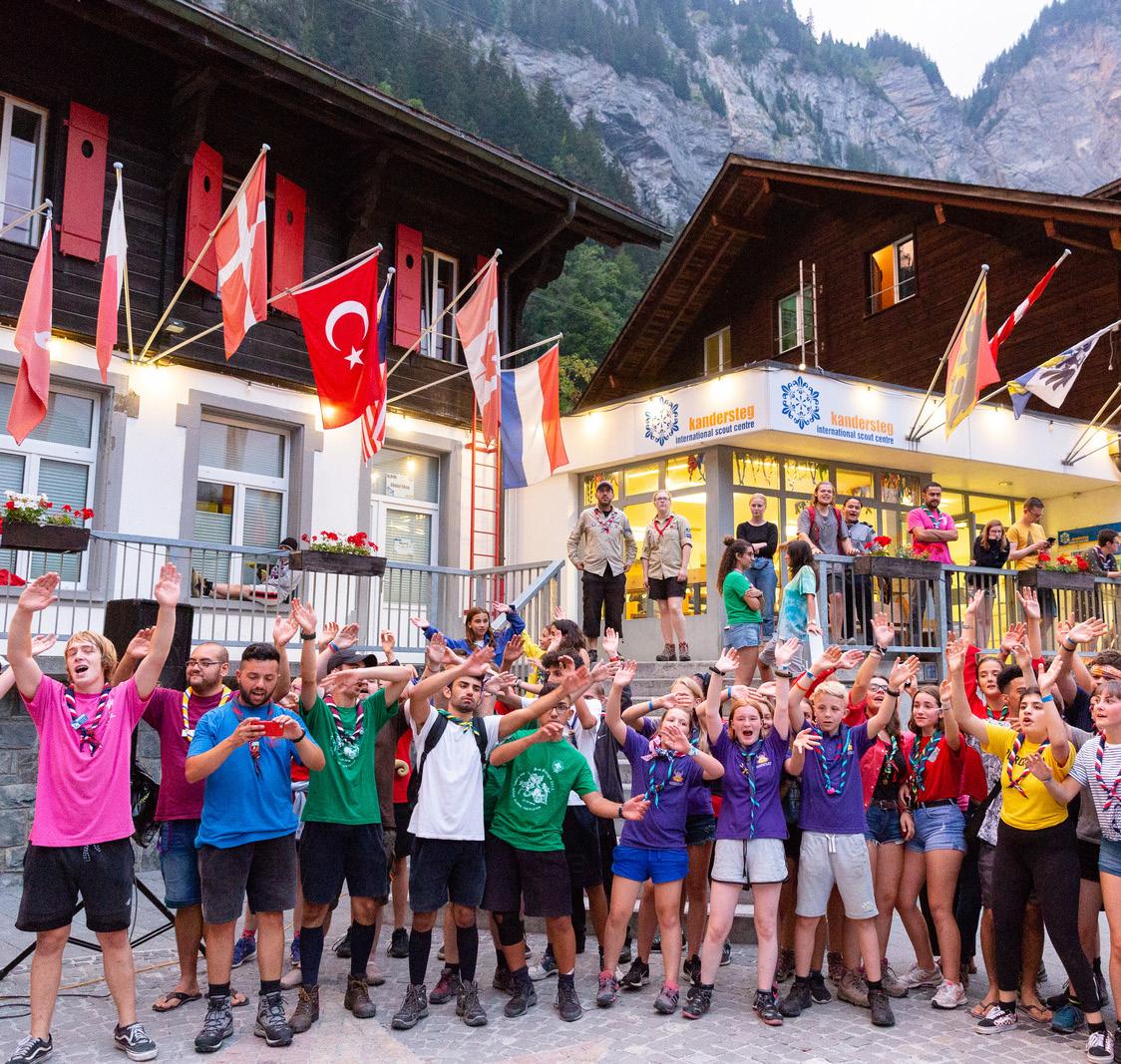
• 24th World Scout Jamboree, North America
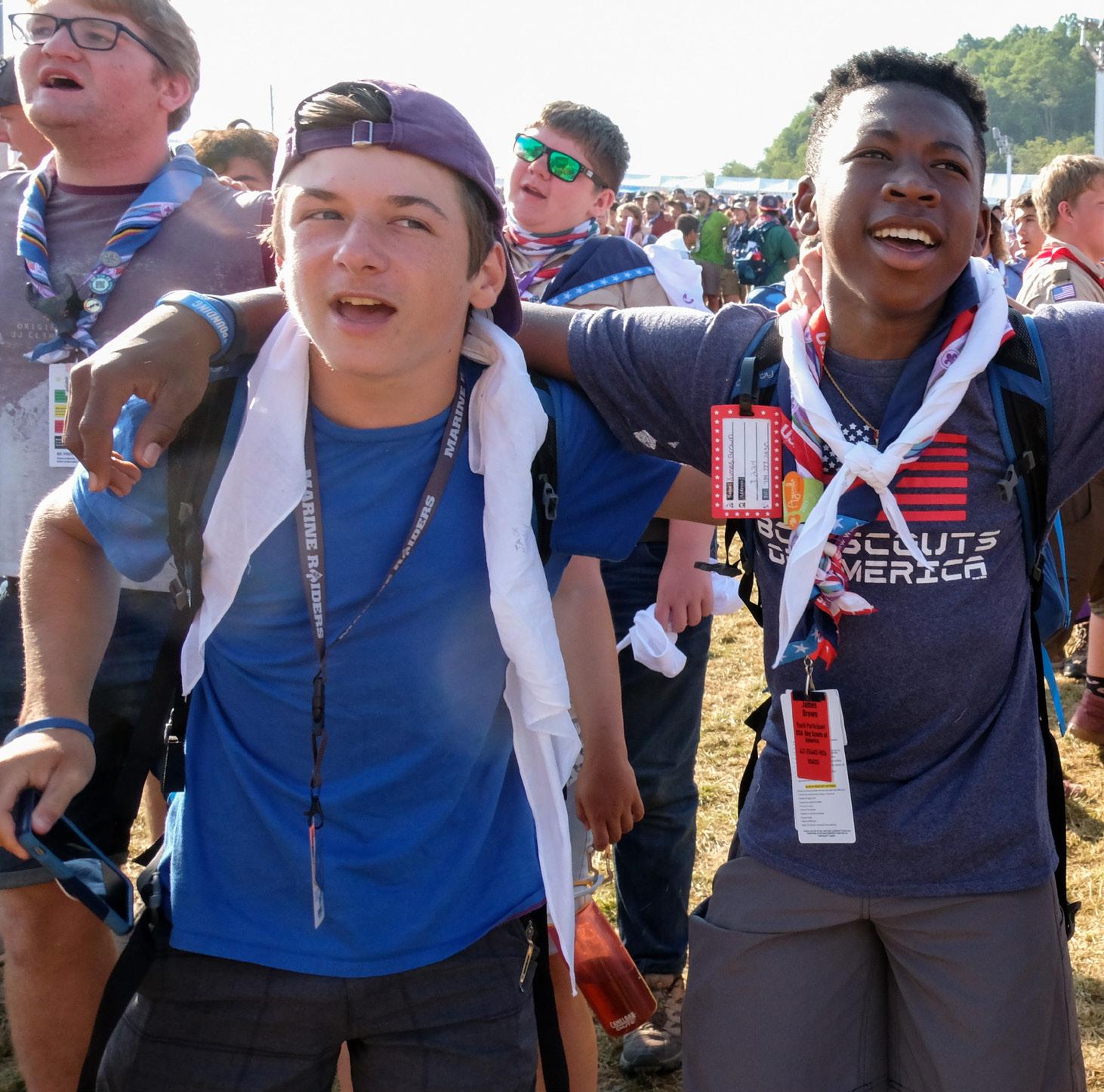
22 July – 2 August 2019
• Jamboree-On-The-Air and Jamboree-On-The-Internet (JOTA-JOTI), virtual October 2017, 2018, 2019, 2020
• World Non-Formal Education Forum, Brazil
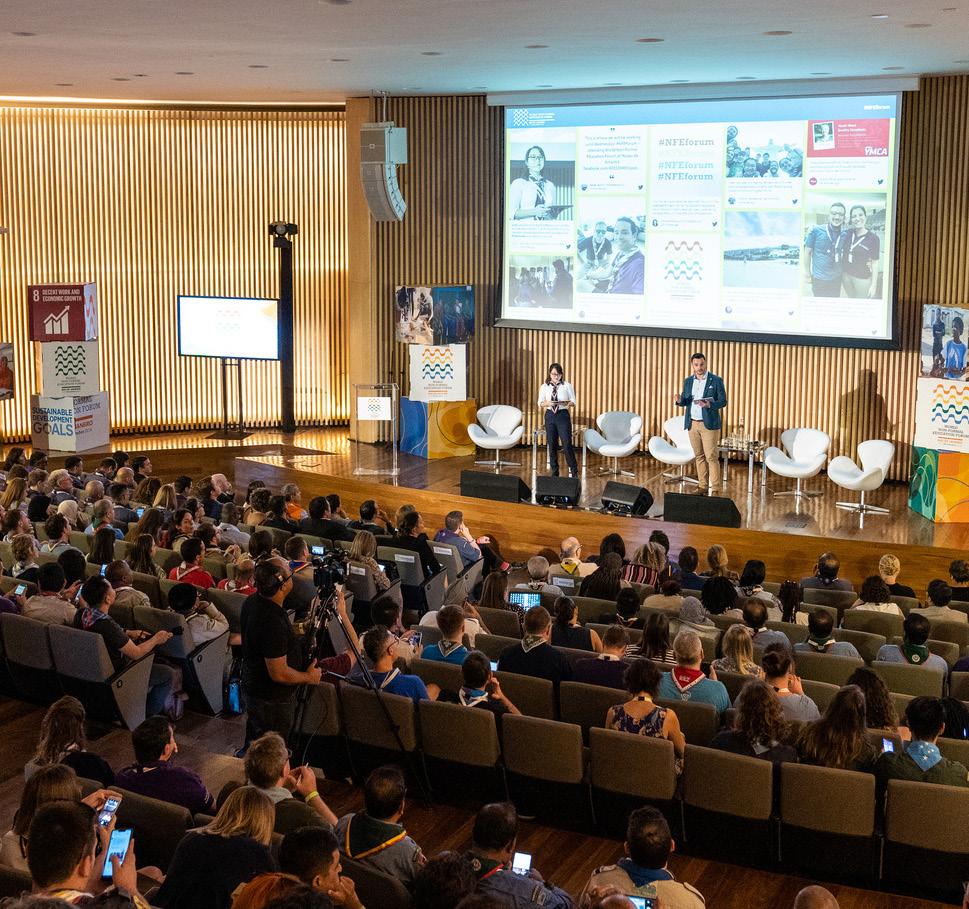
9-11 December 2019
• Special Edition of JOTI, virtual 3-5 April 2020
• World Scout Academy, virtual 22 June - 9 August 2020
• 14th World Scout Youth Forum and 42nd World Scout Conference, virtual 8-22 and 25-29 August 2021
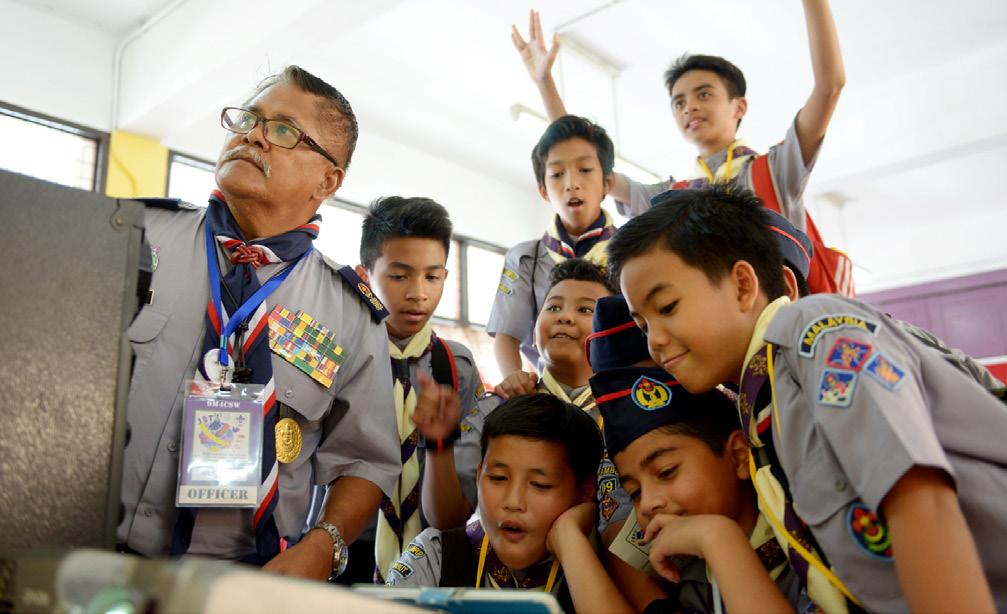





One of the unforgettable highlights of 2019 was the 24th World Scout Jamboree, a world-class event that united over 45,000 young people and volunteers from more than 150 countries to experience one of the world’s largest outdoor educational events for youth. Inspirational public figures and global partners joined us in celebrating the diversity of our Movement through an extraordinary programme of activities.
The Jamboree, jointly hosted by the United States of America, Canada and Mexico, was one of the biggest and most exciting Jamborees in recent memory, supported by 9,000 volunteers from across the Scout Movement. The theme to “Unlock a New World” inspired Scouts to become active citizens and create a more sustainable world by learning about global issues. Through activities that ranged from zip-lining and hiking to public speaking and leadership workshops, young people developed skills to help them thrive in a rapidly changing world.

Over 12 days, Scouts from around the globe camped, dined and embarked on exciting adventures together, engraving memories and international friendships to last a lifetime. Young people were able to connect with each other using NOVUS wristbands, allowing Scouts to stay engaged beyond the event. A remarkable Unity Show marked the end of Cultural Celebrations Day, where Scouts from around the world showcased their traditions, costumes, dances and food.
Among the many educational learning opportunities at the Jamboree, the Better World Tent and Global Development Village offered Scouts a space to learn more about the Sustainable Development Goals from 39 of World Scouting’s global and regional partners, including WWF, UN Environment, UNICEF, UNFPA, UNHCR, UN Women, KAICIID, WAGGGS and Solafrica. Through hundreds of engaging activities, campfires and workshops, Scouts learned about some of the most pressing global issues facing our planet and how to take action in their communities to tackle these challenges.
An on-stage ceremony passed the Jamboree flag to the Korea Scout Association who will host the 25th World Scout Jamboree in Sae Man Geum, Chollabukdo, Republic of Korea in 2023.
OBJECTIVE: Increase participation at the 24th World Scout Jamboree through innovative participation methods.

KPI: WOSM will engage 100,000 Scouts in Jamboree activities both online and offline.
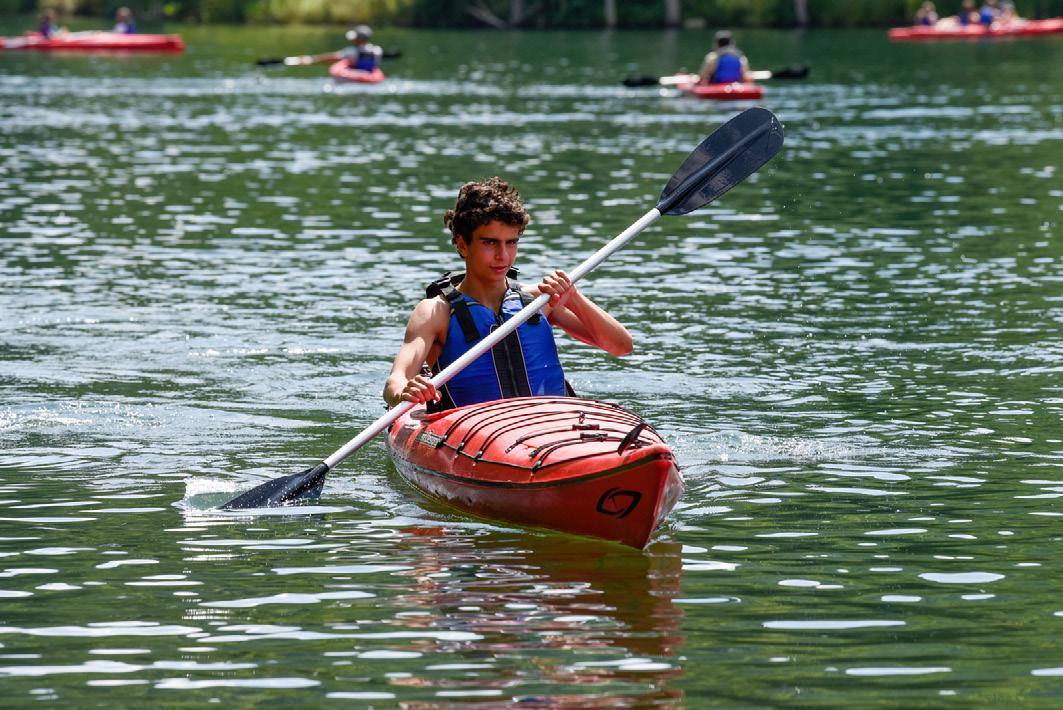


“Global citizens are those who identify themselves not as a member of a nation, but instead as a member of humanity. They are understanding and tolerant of other people and cultures. They fight for the protection of our planet. They are committed to service and helping others,” said Ban Ki-moon addressing the thousands of young people in the crowd.” Ban Ki-moon, United Nations Secretary-General from 2007 - 2016 and Co-chairperson of the Ban Ki-moon Centre for Global Citizens
“There are hundreds of reasons that divide us but there are millions of reasons that unite us. In order to bring true sustainable lasting peace, it’s not only politicians who should take leadership, it is the communities, especially the young people. I hope each one of you will be a champion of peace in your community.”
Jayathma Wickramanayake, United Nations Secretary-General’s Envoy on YouthThe first-of-its-kind World Non-Formal Education Forum took place in Rio De Janeiro, Brazil at the end of 2019. More than 400 youth leaders, international youth-serving and youthled organisations, UN agencies, academic experts, and educational practitioners gathered to debate the current and future trends in nonformal education.
The Forum was co-convened by WOSM, UNICEF, UNFPA and the Office of the UN Secretary- General’s Envoy on Youth, and involved the participation of more than 70 international organisations. The event offered an international platform for the exchange of ideas and best practices on non-formal education, and explored how organisations can develop programmes, concepts and methods to keep pace with the latest trends in non-formal education and contribute towards achieving the Sustainable Development Goals.
Over the course of three days, Forum participants examined the relevance of nonformal education in today’s society, and looked in particular at how non-formal education can complement other types of education (formal and informal) in supporting the skills development, digital capacity and leadership of young people to thrive in a rapidly changing world. The Forum validated the need to look at nonformal education as a critical field within the broader education sector which needs attention, collaboration, investment and continuous development.
OBJECTIVE: Deliver the 3rd World Scout Education Congress [World Non-Formal Education Forum] with an outward-looking focus aimed at informing participants about important external trends that could contribute to Scouting’s Mission and Vision 2023.
KPI: WOSM will deliver the 3rd World Scout Education Congress [World Non-Formal Education Forum] with at least 30% of sessions focused on external trends impacting Vision 2023.

The event also provided a platform for youthserving and youth-led organisations, including members of the International Coordination Meeting of Youth Organisations (ICMYO) and the Big 6 Youth Organizations to convene bilaterally to discuss key trends around nonformal education and youth development.
The Forum discussed a wide range of topics, theories and ideas which were captured in the Rio Declaration on Non-Formal Education as an outcome of the event. The Rio Declaration is an ambitious action agenda calling upon governments, academic institutions, multilateral organisations, non-governmental organisations, and the private sector to invest in the potential of young people by leveraging the transformative power of non-formal education and learning. The Rio Declaration will continue to be a key advocacy platform in advancing the non-formal education agenda for years to come.
The World Non-Formal Education Forum took place with the generous support of Alwaleed Philanthropies and the national host, União dos Escoteiros do Brasil, the Brazilian Member Organization of WOSM.
Over the weekend of 3-5 April, 2020, WOSM organised the first ever Special Edition of JOTI to respond to the growing number of youth around the world experiencing COVID-19 lockdowns. This Special Edition of JOTI was both educational and fun, bringing Scouting to the homes of young people around the world. It served as a space for young people and Scouts to connect, learn and build friendships during these challenging times and while social distanced.
Convened amid the COVID-19 pandemic, the event offered a unique opportunity for young people to connect and promote friendship and global citizenship through a wide range of fun and educational opportunities. The dynamic programme featured webinars, global campfires, talent shows, live shows, and much more. World Scouting’s global partners were actively involved in the event, offering their expertise and fun activities to engage participants. Through a dynamic virtual engagement programme, young people were able to learn about safety measures, mental and physical
health tips, and more while digitally engaging as global citizens through a range of activities –from webinars to concerts. The Special Edition of JOTI also enabled Scouts to connect to peers from different countries, hear from special guests, and share ideas about Scouting from home.
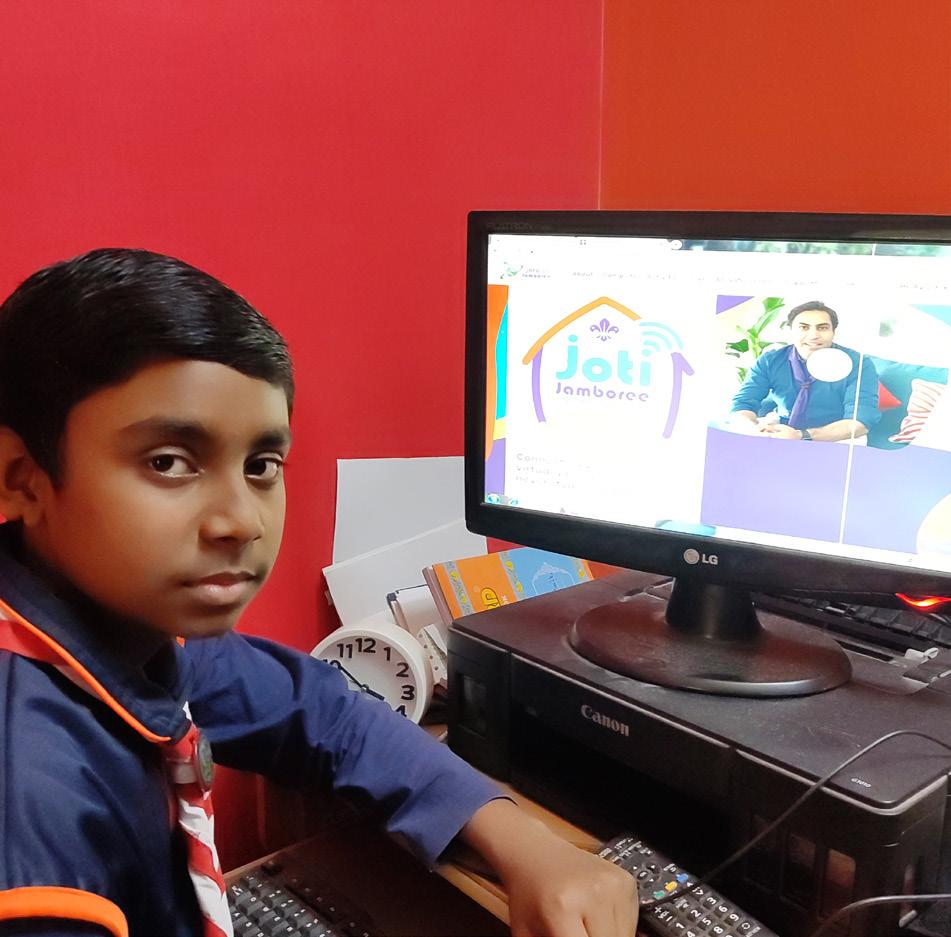
The online platform provided NSOs and Scouts with helpful resources, ideas and initiatives to adapt regular Scouting activities to engaging initiatives that can be done at home. Through the Special Edition of JOTI, challenges were turned into opportunities to continuously showcase and share what Scouting is all about – unity, friendship, education and resourcefulness.


22 June - 9 August 2020, virtual
The World Scout Academy was a virtual platform powered by WOSM that offered learning and exchange opportunities for NSO national leadership and Adults in Scouting. The sessions delivered in the Academy focused on a range of topics, including using technology to connect with local organisations and groups, managing stress and the well-being of staff and volunteers, and key competencies for young people in today’s modern world.
The Academy was part of WOSM’s emergency response to support NSOs in responding to the COVID-19 pandemic within their organisations, assisting them with the delivery of the Scout programme, and enhancing support provided to local communities. The Academy was a completely online event taking place over the course of eight weeks starting on 20 June 2020 and hosted at learning.scout.org.
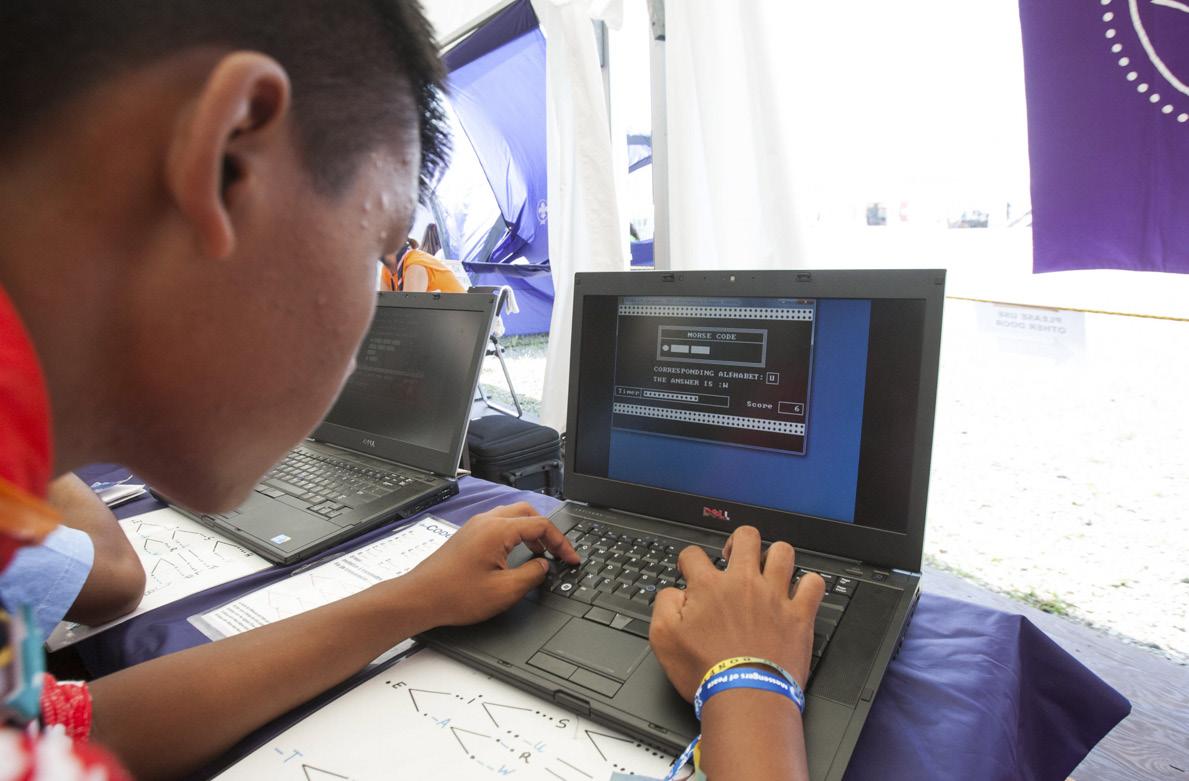
The World Scout Academy’s purpose was to connect, inspire and equip participants with the relevant knowledge and skills to successfully lead their organisations and facilitate Scouting in the new societal realities after the COVID-19 pandemic.
A series of online learning opportunities spread out over the course of the eight weeks allowed participants to use various online tools, open the possibility to engage in exploration and discovery, interact with experts, exchange with peers around the world, and influence the future of the Scout Movement. All in a fun and impactful way of course.
More than 7,631 adult leaders, including from the leadership of NSOs participated in 62 live sessions covering 23 topics and areas of learning. Upwards of 100 on-demand resources, along with recordings of the 62 live sessions, remain available on the Academy’s platform to be used by NSOs and thousands more Scout leaders around the world.
October 2017, 2018, 2019, 2020, virtual
JOTA-JOTI (Jamboree-on-the-Air and Jamboree-on-the-Internet) is the world’s largest digital Scout event taking place on the Internet and over the airwaves. Held every year in October, the event connects millions of young people around the world for a full weekend of online activities that promote friendship and global citizenship education. JOTA-JOTI enables young people and volunteers to participate in fun and engaging group activities over the Internet and amateur radio focused on developing 21st century skills through Scouting.
In 2019, World Scouting worked to redesign the JOTA-JOTI online platform and registration system to enhance the innovative and immersive educational experience for young participants.
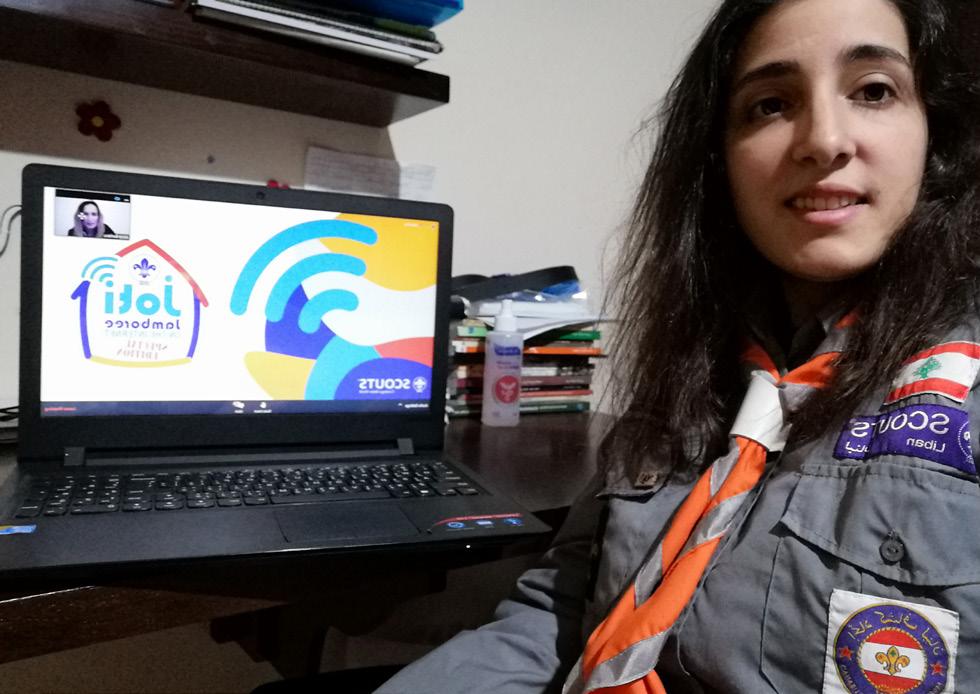

JOTA-JOTI 2019 centred around digital learning and education for sustainable development through crowdcasts, webinars and interactive sessions.
Building on the efforts of 2019, the JOTA-JOTI 2020 grew participation to over five million young people from more than 130 countries and territories connected online and over the airwaves. JOTA-JOTI participants were able to explore the event programme through an interactive 3D campsite. Individuals or Scout groups could guide their own JOTA-JOTI journey by entering different areas such as the Knowledge Lab, Celebration Arena, Fun Zone, and Amateur Radio Centre.
The theme of the most recent JOTA-JOTI focused on connecting young people together with an educational programme centred around learning paths related to the topics of contributing to the Sustainable Development Goals. Participants were able to engage in online dialogue and webinars offered in multiple languages about nature preservation, climate change, equality, and youth advocacy. Several key partners including WWF, UN Environment, UNICEF, UNESCO, contributed to the educational content of the event by facilitating online dialogues and webinars with youth. Keeping young people Safe from Harm online is a crucial aspect of this event. Through chat moderation, “listening ears”, e-learning courses and a number of sessions about how to be safe online, we ensured that all participants had a safe, positive and inclusive JOTA-JOTI experience.
OBJECTIVE: Revitalise JOTA-JOTI and deliver enriching activities to Scouts worldwide.
KPI: WOSM will increase reach of JOTA-JOTI to three million participants annually.

Collaborations are an essential component of WOSM’s success and its ability to effect positive change in communities around the world. We are grateful for the steadfast commitment of the following entities and organisations that worked to support, partner and offer insights to further the ability of WOSM to achieve its mission and vision.
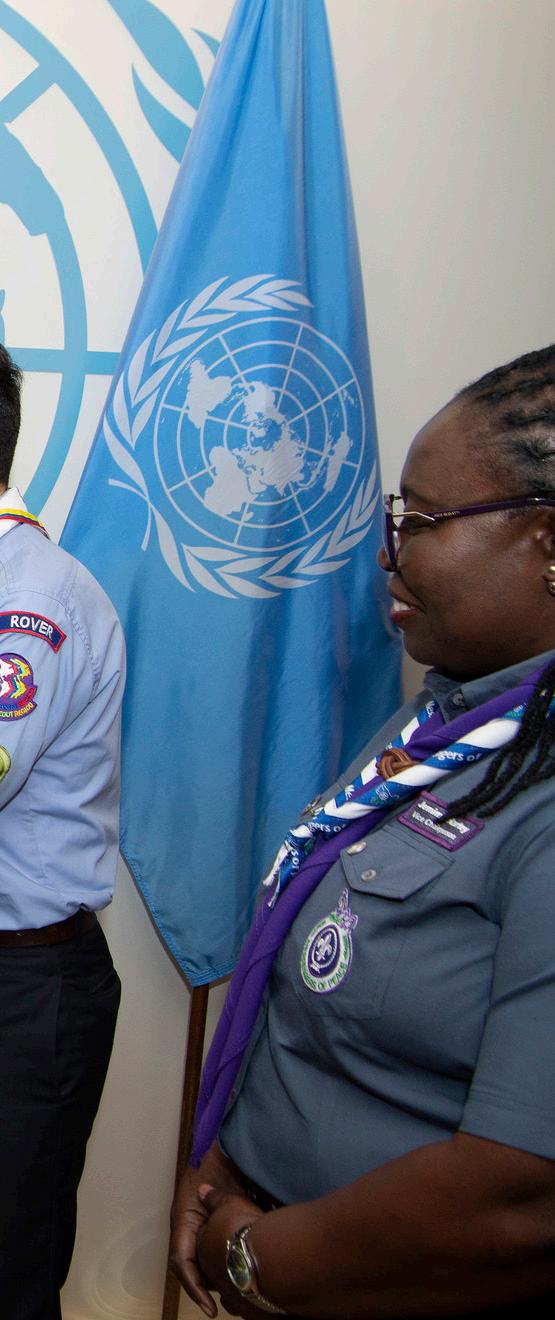
Building on the momentum of the past triennium, relations with the World Scout Foundation continued to deepen on a number of fronts. Early on in the triennium, an elaborate Memorandum of Understanding was signed between WOSM and the World Scout Foundation, formalising a decades-long strong collaboration. Annual meetings between the World Scout Bureau Global Support Centre and the World Scout Foundation staff were organised to facilitate the exchange of information, as well as to collectively agree on approaches for joint work and how best to deliver target support to global projects.
For the first time ever, the World Scout Foundation Board and the WSC met jointly in Seoul, Korea, marking a truly historic occasion. The two governance bodies had the opportunity to engage in informal discussions and brainstorm innovative ideas for working together in the future. The meeting was positively received from both sides, with members of both the WSC and World Scout Foundation Board welcoming the continuous improvement in working relations between the two entities.
The Foundation and the World Scout Bureau Global Support Centre also embarked on its first-ever joint funding request to the MacArthur Foundation’s 100&Change grant competition. While WOSM was not ultimately selected as a finalist, this opportunity provided an invaluable experience for WOSM to understand the funding landscape, identify additional measures for WOSM to employ to articulate its theory of change and social impact, and provided an opportunity to engage in peer-level review of other educational organisations seeking to address the Sustainable Development Goals.
The World Scout Foundation continued to provide essential financial support to WOSM through an annual grant, as well as through a number of donor advising funding. Despite the impact of the pandemic on financial mobilisation, the Foundation continued supporting the work of WOSM by maintaining the level of funding and building an emergency fund to support NSOs. We express our appreciation to the team at the World Scout Foundation for being a strong ally during this challenging period.

Formed in 1996, the Big 6 Youth Organizations comprise the five largest youth movements in the world: World Organization of the Scout Movement (WOSM), Young Men’s Christian Association (YMCA), World Young Women’s Christian Association (YWCA), World Association of Girl Guides and Girl Scouts (WAGGGS), The International Federation of Red Cross and Red Crescent Societies (IFRC) and a leading programme for youth development, The Duke of Edinburgh’s International Award (The Award). Together, the Big 6 actively involve and engage more than 250 million young people, contributing to the empowerment of more than one billion young people during the last century. During this triennium, as mentioned in other sections of the report, the alliance of the Big 6 blossomed with renewed purpose for using its collective power to influence nonformal education and exponentially increase impact around youth issues resulting from the pandemic under the banner of the “Global Youth Mobilization”. As a result of the partnership with the World Health Organization, the Big 6 are more closely connected than ever before, sharing best practices, key organisational learnings, and leadership exchanges on a regular basis.

KISC, WOSM’s permanent mini-Jamboree in the Swiss Alps, continued to serve as a programmatic incubator for testing and enhancing new initiatives under the Better World Framework such as the Earth Tribe. Following a long-standing tradition, the WSC also held one of its meetings this triennium at the World Scout Centre in October 2018.
In the wake of the pandemic, greater emphasis was placed on aligning and strengthening communication between both organisations. On several occasions, the new Executive Director of KISC was invited to meetings of the Senior Management Team of the World Scout Bureau and provided a detailed update to the WSC on KISC’s post-pandemic plans, including their 100th anniversary celebration in 2023.

The WAGGGS WOSM Consultative Committee worked to continue strengthening communications between the two organisations through open dialogue and visioning work to identify connections and opportunities for joint collaboration.
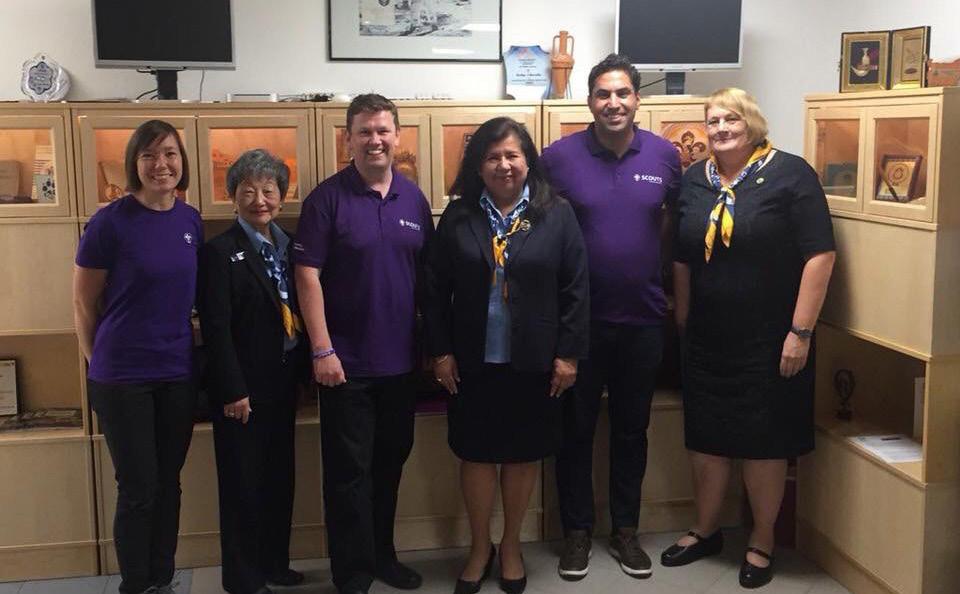
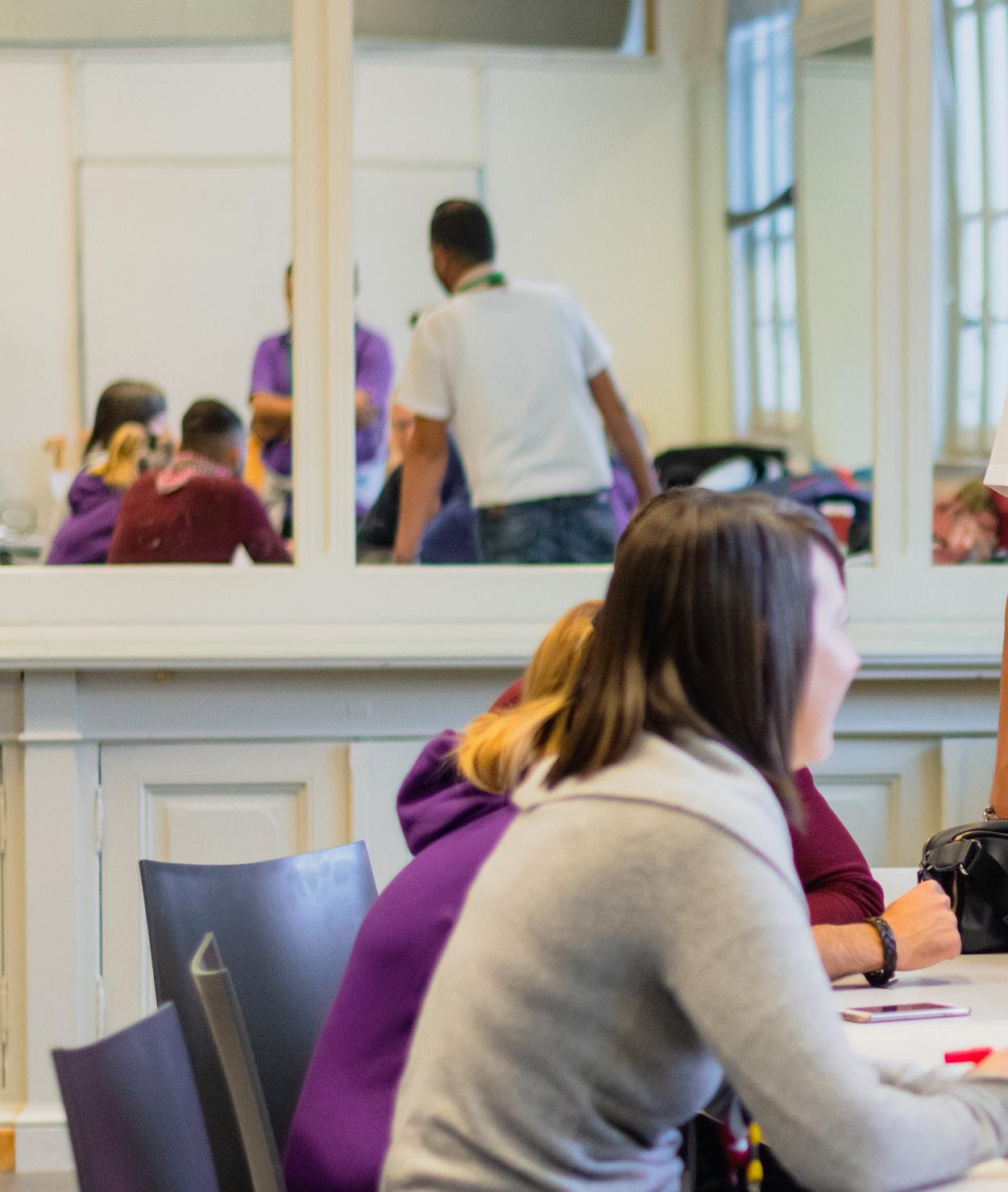
Over the course of the triennium, the WAGGGS WOSM Consultative Committee met three times and achieved the following:
• Issuing a statement reiterating the joint responsibility to reach out to more young people through growth and development activities in individual organisations.
• Releasing joint statements to acknowledge World Thinking Day and Founder’s Day, and to honouring a nomination for the Nobel Peace Prize recognising the unique contributions young women and men involved in WAGGGS and WOSM towards peace-building and sustainable development.
• Creating interagency dialogue to foster timely and effective communication, and serving as an advisor and sounding board to address common operational and governance issues.
• Engaging in active discussions on how to advance youth in decision-making roles in Regional and World governance structures.
• Committing to work on diversity and inclusion on a long-term basis through internal dialogue and training on cultural competence at all levels, as well as strengthening the collective stance, visibility, and advocacy as it relates to race relations.
• Maintaining close communication on best practices for supporting Member Organizations in emergency response efforts related to the COVID-19 pandemic.
During the 2017-2021 extended triennium, the following organisations were granted consultative status with the WSC:
• Council of Protestants in Guiding and Scouting (CPGS)
• International Link of Orthodox Christian Scouts (DESMOS)
• International Catholic Conference of Scouting (ICCS)
• International Forum of Jewish Scouts (IFJS )
• International Scout and Guide Fellowship (ISGF)
• International Union of Muslim Scouts (IUMS)
• World Buddhist Scout Council (WBSC)
• World Scout Parliamentary Union (WSPU)
Recognising the ongoing relevance and importance of the wide range of relationships and stakeholders involved in the continuing work of WOSM, consultative status organisations were surveyed to gain insights on the perception of their current involvement with WOSM and how best they could contribute to advancing Vision 2023 as part of the development of the original 2020-2023 Triennial Plan.
Given the cancellation of World Scout InterReligious Symposium and World Scout InterReligious Forum, which normally serves as a prime opportunity to dialogue and engage in relationship building, the religious organisations with consultative status were invited to meet with WOSM on 11-12 March 2021 to exchange updates about the status of their work during the pandemic and to review ways in which WOSM could be of support to these organisations during the pandemic.


As a Standing Committee of the WSC, the Audit Committee was mandated to:
• Assist the WSC to fulfil its responsibilities by reviewing the financial information provided to stakeholders and the public.
• Review the systems of internal financial controls through the internal control system that the WSC and World Scout Bureau established.
• Oversee the WOSM’s auditing, accounting and financial reporting processes.

Key achievements of the Audit Committee during the triennium include:
• Achieving alignment between the Audit Committee and Finance Committee, especially in the area of information sharing.
• Successfully completing the external audits of the Bureau’s annual consolidated and statutory financial reports within six months from the financial year-end for three consecutive years during the triennium. The consolidated audited reports were endorsed by the Committee and subsequently approved by the WSC.
• Providing oversight during the successful consolidation of the Arab Scout Centre results as part of WOSM in accordance with Swiss GAAP RPC/FER effective from 2016-2017 onwards.
• Attaining a significant reduction in audit observations by KPMG as compared to the beginning of the triennium.
As a Standing Committee of the WSC, the Finance Committee was mandated to:
• Review the annual budget developed by the World Scout Bureau and issue a recommendation on its approval to the WSC.
• Completing internal audit fieldworks and reporting in:
- Global Support Centre - 21-25 May 2017
- Arab Support Centre - 22-25 Aug 2017
- Africa Support Centre - 26-29 March 2018
- Asia-Pacific Support Centre - 14-17 May 2018
- Eurasia Support Centre - 4-8 June 2018
- Europe Support Centre - 11-14 Dec 2018
- Arab Region - 13-16 January 2020
• Evaluating and endorsing the Bureau’s annual risk management, internal control system compliance and global risk registers for the approval of WSC.
• Reviewing the Bureau’s implementation of Global Data Protection Regulations (GDPR).
• Conducting evaluations to mitigate the Bureau’s risk, processes and responsibilities in organising World Scout events.
• Collaborating with the Establishing an Ethics Committee Task Force to provide support on the Ethic Committee’s Terms of Reference, Code of Conduct and the Complaints Policy.
• Endorsing the appointment of KPMG as WOSM’s lead audit partner and conducting a due diligence report for continued engagement with KPMG after seven years.
• Developing and endorsing the Terms of Reference for the internal audit function.
• Supervise, verify and advise the WSC on matters relating to policies on procurement, management and use of services necessary to support activities of WOSM.
• Evaluate the implementation of finance policies adopted by the World Scout Bureau.
Key achievements of the Finance Committee during the triennium include:
• Ensuring stronger alignment between the Finance and Audit Committees, including sharing of best practices and lessons learned.
• Successfully developing and implementing the property acquisition and sale policy, and restricted fund accounting policy that ensures sound financial management. The adaptation of these best practices and policies promote better governance and transparency, and also enable resources to be utilised effectively to promote Scouting activities through strengthened planning and execution.
• Reviewing the Bureau’s yearly operating budget, which were subsequently endorsed by the Finance Committee on a timely basis. This enabled the WSC to approve the budget before the new financial years began.
• Evaluating and endorsing the Bureau’s restricted endowment fund to be invested with the World Scout Foundation in order to maximise returns.
As a Standing Committee of the WSC, the Constitutions Committee was mandated to:
• Advise the WSC on matters relating to the interpretation and application of the WOSM Constitution, and provide an opinion on proposed amendments to the Committee’s Standing Orders.
• Consider proposed amendments to the constitutions or bylaws governing Regions and to make recommendations to the WSC.
• Study the constitutions of NSOs applying for membership of WOSM and make recommendations to the WSC.
• Review and approve or reject proposed amendments to the constitutions of existing Member Organizations.
• Carry out studies on subjects related to the general institutional policy and structure of WOSM.
• Successfully improving financial transparency and reporting in all of the Bureau’s regional structures, as well we improving the Bureau’s capability to report financial results to key stakeholders on a timely basis.
• Developing a training workshop for financial education among volunteers at Regional levels.
• Reviewing and endorsing the implementation of the Bureau’s staff leave policy.
• Endorsing a revision of the WOSM registration fee policy to ensure that youth participation in the World Scout Youth Forum only gets restricted at the very final stage of the NSO sanctioning process upon non-payment of registration fees. The revision of the fee policy was approved by the WSC during its meeting in March 2018.
• Endorsing the Bureau’s decision to extend the commercial license of the World Scout Shop until 2023 with better commercial terms.
• Endorsing the Bureau’s investment internal control guidelines.
Key achievements of the Constitutions Committee during the triennium include:
• Reviewing a total of 72 NSO and NSA constitutions and five Regional constitutions.
• Advising Regional Scout Committees on how to deal with vacancies due to resignation, reduction of Committee sizes, and other membership matters.
• Facilitating a workshop in Lilongwe, Malawi attended by the leadership of nine NSOs in the Africa Region.
• Reviewing the Terms of Reference for the Ethics Committee, WOSM Complaints Policy, and draft WOSM Code of Conduct developed by the Task Force on Establishing an Ethics Committee.
• Reviewing the Rules of Procedure for the 42nd World Scout Conference and endorsing a recommendation to postpone the event until 2021.
• Developing an institutional and constitutional guidance document for Member Organizations.
Following the completion of the work of its Task Force for Establishing an Ethics Committee, the WSC approved the creation of an Ethics Committee as a WSC Standing Committee. The Ethics Committee’s mandate was to receive and review complaints about breaches of WOSM’s Code of Conduct and make recommendations to the WSC about the appropriates actions to take to resolve the complaint.
In support of this, the Ethics Committee acts to promote WOSM’s Code of Conduct to all stakeholders in the organisation, and provide the necessary training resources, as well as mediation services, to Regions and NSOs where requested.
Key achievements of the Ethics Committee during the triennium include:
• Reviewing a total of five complaints since its inception in February 2019.
• Developing a range of supporting materials, including an FAQ and training on the WOSM Code of Conduct and Complaints Policy, a Code of Conduct and Complaints Policy template for NSOs, a Code of Conduct for Bidding for Events, a Code of Conduct for various World Events, and a Code of Conduct for Elections within WOSM and associated declaration forms.
• Reviewing and proposing amendments to the Code of Conduct and the Complaints Policy based on lessons learned, strengthening the fairness and clarity of the process in handling specific situations.
The Bronze Wolf is the only award granted by the WSC for outstanding service of an exceptional character to the World Scout Movement. The World Honours and Awards Committee has the responsibility to review nominations for the Bronze Wolf and provide recommendations for consideration of the WSC.
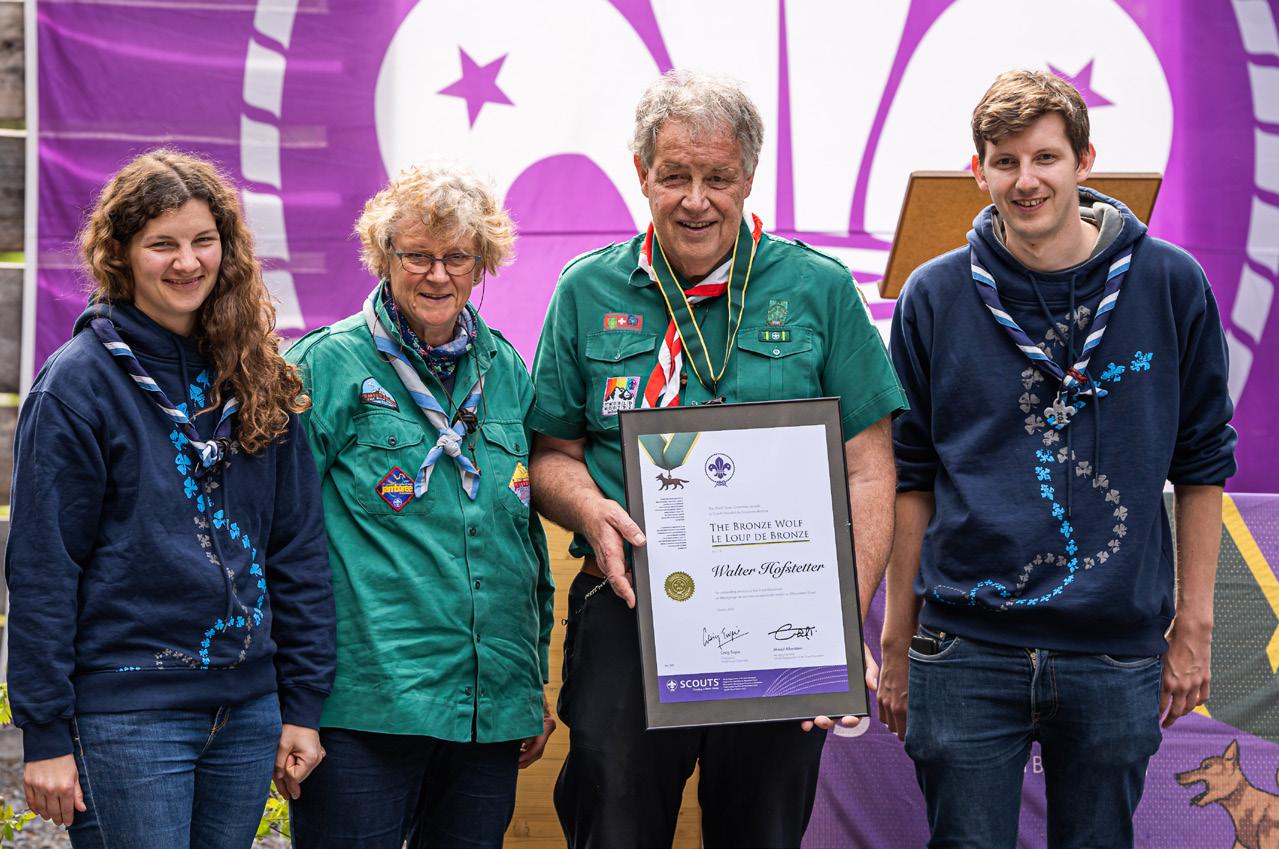
Key achievements of the Honours and Awards Committee during the triennium include:
• Meeting thirteen times virtually, and once inperson during the 24th World Scout Jamboree.
• Distributing two Bronze Wolf newsletters and delivering a webinar to explain the awarding of the Bronze Wolf.
• Receiving nominations and presenting awards during ceremonies at World and Regional events.
• Holding a special reception during the 24th World Scout Jamboree for Bronze Wolf Awardees and their families.
• 17 Bronze Wolf Awards were granted by the WSC during the triennium.

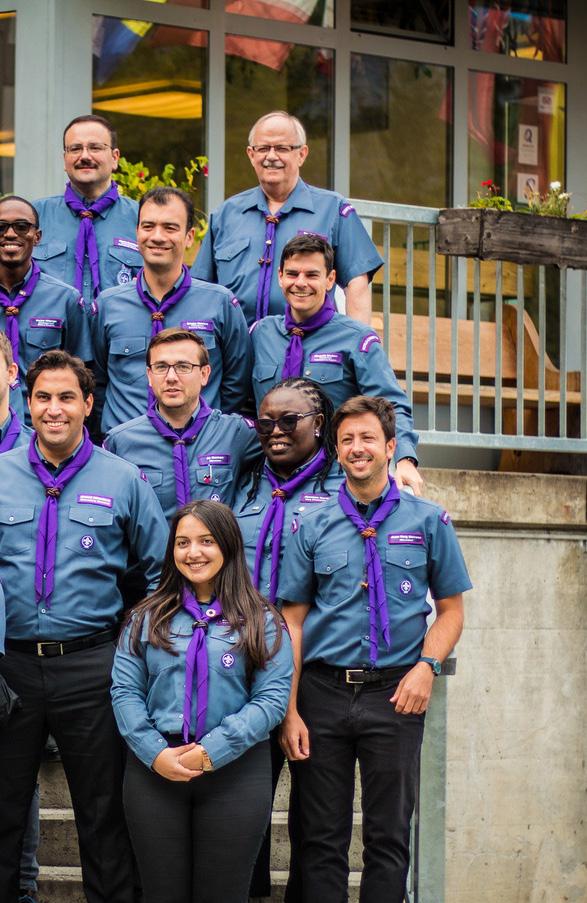
• Craig Turpie, United Kingdom
• Jemima Nartemle Nartey, Ghana
• Edward Andrew “Andy” Chapman, United States of America
• Peter Blatch, Australia
• Mehdi Ben Khelil, Tunisia
• Jo Deman, Belgium
• Janaprith Fernando, Sri Lanka
• Ilyas Ismayilli, Azerbaijan
• Sarah Rita Kattan, Lebanon
• Leornado Morales, Costa Rica
• Pia Melin Graasbøll, Denmark
• Juan Reig, Spain
The following World Scout Committee members were elected at the 41st World Scout Conference in 2017 and their term of office ends at the 42nd World Scout Conference in 2021.

• Ahmad Alhendawi, Secretary General (2017-present)
• Joseph Lau, Treasurer (2016-present)
• Hector Robledo Cervantes, Chairman, World Scout Foundation (2017-2020)
• Geoff Morgan, Board Member, World Scout Foundation (2020-present)
• Khamis Al-Rasbi, Chairperson, Arab Scout Committee (2016-2019)
• Abdullah Altraiji, Chairperson, Arab Scout Committee (2019-present)
• Victor Atipaga, Chairperson, Africa Scout Committee (2018-present)
• Wayne Adrian Davis, Chairperson, Africa Scout Committee (2015-2018)
• Paul Parkinson, Chairperson, Asia-Pacific Scout Committee (2015-2018)
• Ahmad Rusdi, Chairperson, Asia-Pacific Scout Committee (2018-present)
• Kevin Camilleri, Chairperson, European Scout Committee (2016-2019)
• Lars Kramm, Chairperson, European Scout Committee (2019-present)
• Sergiu Chirica, Chairperson, Eurasia Scout Committee (2016-2019)
• Andriy Chesnokov, Chairperson, Eurasia Scout Committee (2019-2020)
• Bagrat Yesayan, Chairperson, Eurasia Scout Committee (2020)
• Yelena Luzyanina, Chairperson, Eurasia Scout Committee (2021-present)
• Ricardo Stuber, Chairperson, Interamerican Scout Committee (2016-2018)
• Daniel Corsen Jr, Chairperson, Interamerican Scout Committee (2018-present)
The following Youth Advisors to the WSC were elected by the 13th World Scout Youth Forum:
• Diana Carrillo Tiburcio, Mexico
• Mori Chi-kin Cheng, Hong Kong
• Julius Kramer, Sweden
• Edgar Marumbu, Kenya
• Martin Meier, Liechtenstein
• Amal Ridene, Tunisia
The WSC met on the following occasions:
• 17 August 2017, Baku, Azerbaijan
• 6-8 October 2017, Nyeri, Kenya
• 3-5 November 2017, Kuala Lumpur, Malaysia
• 6-8 April 2018, Kuala Lumpur, Malaysia
• 5-7 October 2018, Kandersteg, Switzerland
• 4-7 April 2019, Seoul, Korea
• 27-29 September 2019, Kuala Lumpur, Malaysia
• 27-29 March 2020, virtual
• 25-27 September 2020, virtual
• 26-28 March 2021, virtual
• 23 August 2021, virtual
The 2017-2021 Steering Committee was comprised of the following members:
• Craig Turpie, Chairperson
• Jemima Nartemle Nartey, Vice-Chairperson
• Edward Andrew “Andy” Chapman, ViceChairperson
• Julius Kramer, Youth Advisor
• Ahmad Alhendawi, Secretary General
Meeting bi-weekly throughout the course of the triennium, the Steering Committee’s primary function was to provide leadership to the WSC and support to the Chairperson. The other functions were to handle major executive matters in between WSC meetings, refer sensitive or strategic issues to the WSC as appropriate, and advise the Secretary General on matters, when applicable.
As part of the Steering Committee’s emphasis on cross-functional communications, several members of the WSC and Senior Management Team were invited to share their subject matter expertise or provide feedback on key issues during Steering Committee meetings. Some of the notable achievements of the Steering Committee this triennium were to champion youth engagement at all levels of WOSM, and to operate in a agile manner to be able to act swiftly and responsively on critical issues impacting the Movement.
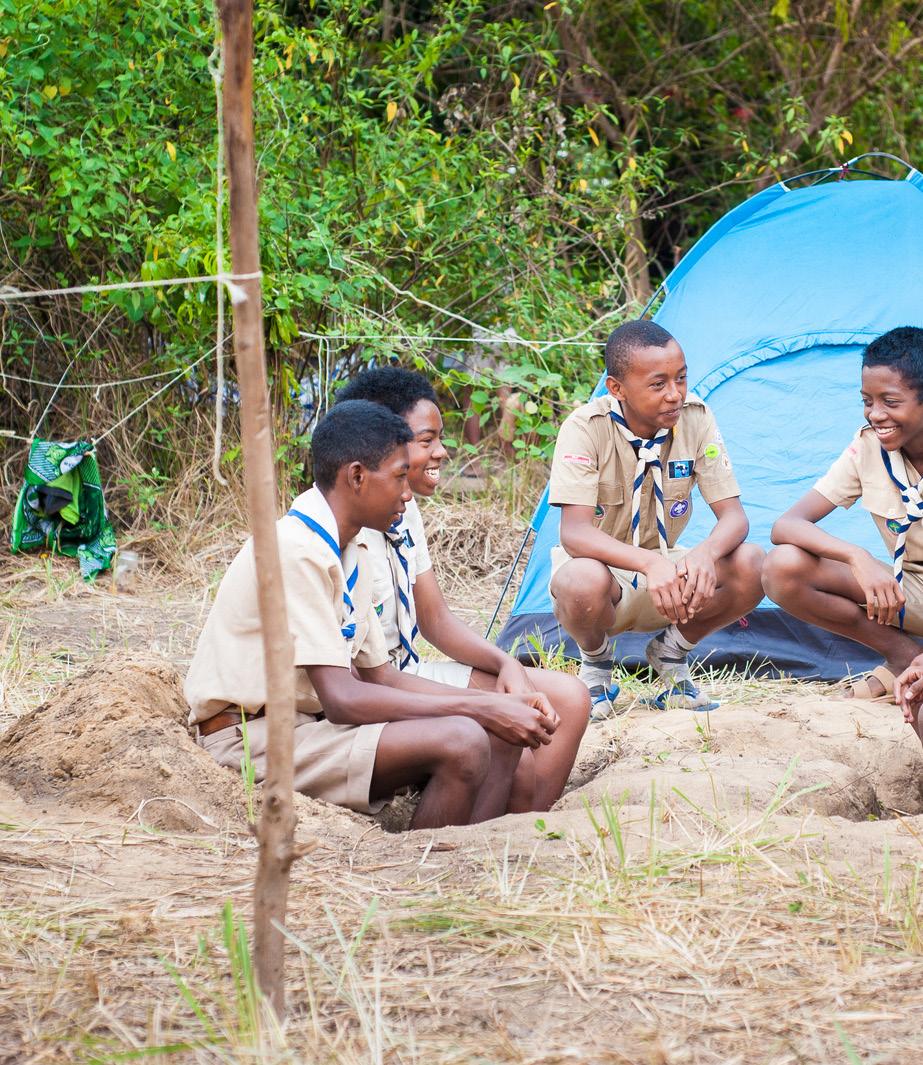
In order to monitor the progress towards achieving Vision 2023, the WSC approved a set of 16 meta-indicators to provide an overarching, impact-oriented perspective on the implementation of the Strategy for Scouting. The meta-indicators were derived from the four themes of the Vision statement (Influence, Growth, Impact and Unity) and are intended to be measured twice per triennium.
Before assessing the progress of the meta-indicators during the mid-term review, the Growth and Strategy Coordination Group reevaluated the measurement methodology to determine relevance and accuracy of the measurements. Based on the assessment, a limited number of minor revisions to four of the meta-indicators were proposed and approved by the WSC.
The meta-indicator was revised to: “Built on 15 global partnerships that advance WOSM’s mission”.
This meta-indicator was revised to: “Trained and supported 15 young representatives every triennium to take action to help promote WOSM to key stakeholders on a global level.”
This meta-indicator was revised to: “Raise $1 million USD from new funding sources to support community development projects.”
This meta-indicator was revised and split into two separate indicators:
• 15.1: “Engaged individuals from at least 5 regions, ensure increased gender balance, and count at least 40% young people below the age of 30 in all global working groups.”
• 15.2: “50% of NSOs involved in inter-regional initiatives.”

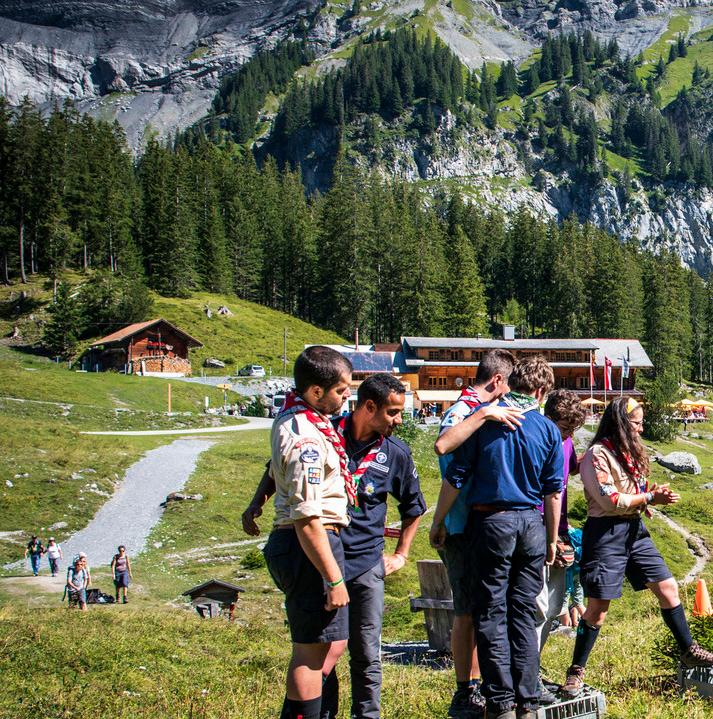
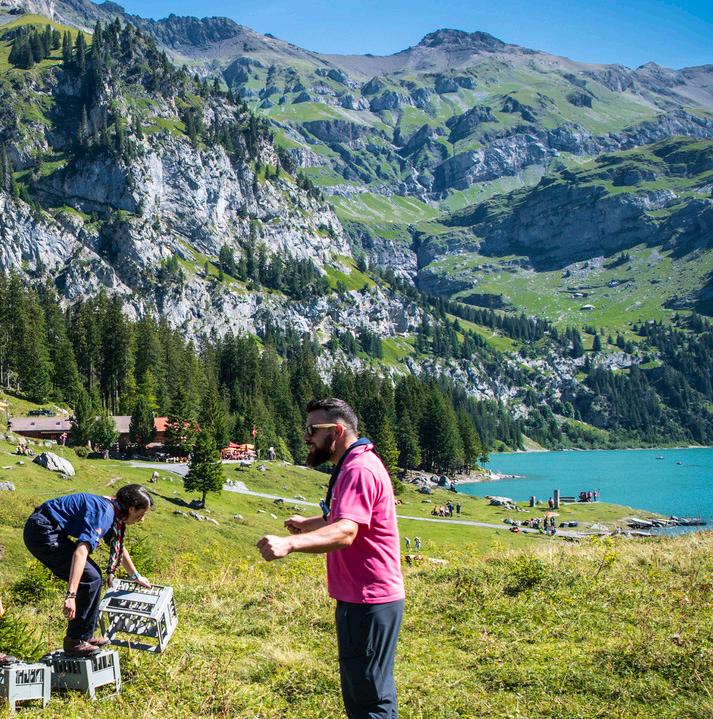

Confirmed that 100% of NSOs consider WOSM as a united movement based on shared values.
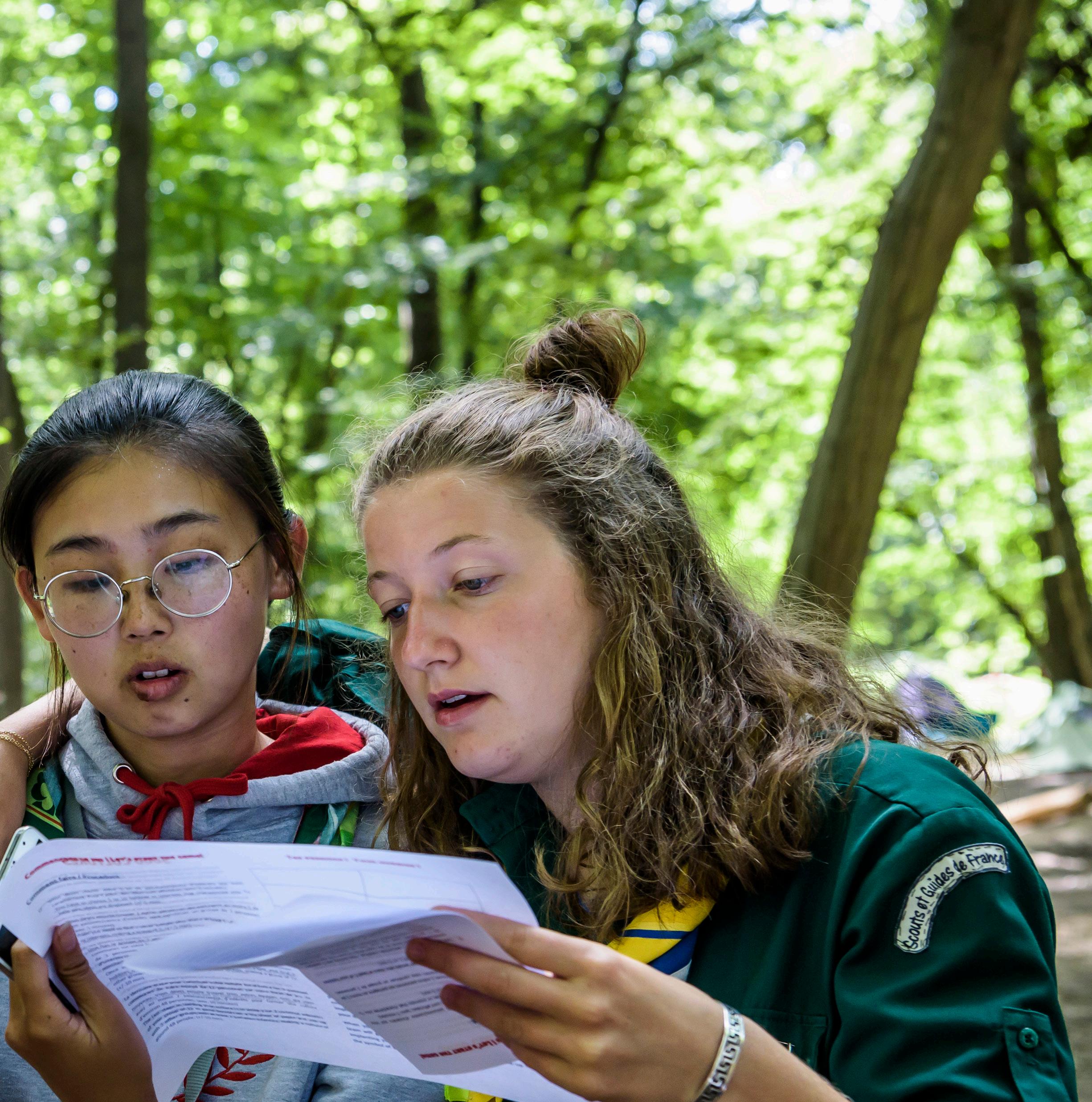
Ensured 30% of NSOs add elements of peace education and intercultural understanding in their youth programmes (where previously nonexisting).
Engaged individuals from at least 5 regions, ensure increased gender balance, and count at least 40% young people below the age of 30 in all global working groups
The Bronze Wolf Award is the only award presented by the WSC and is given solely in recognition of outstanding service by an individual to the Scout Movement. Here are the 17 awardees from the past triennium, in order of date of awarding:
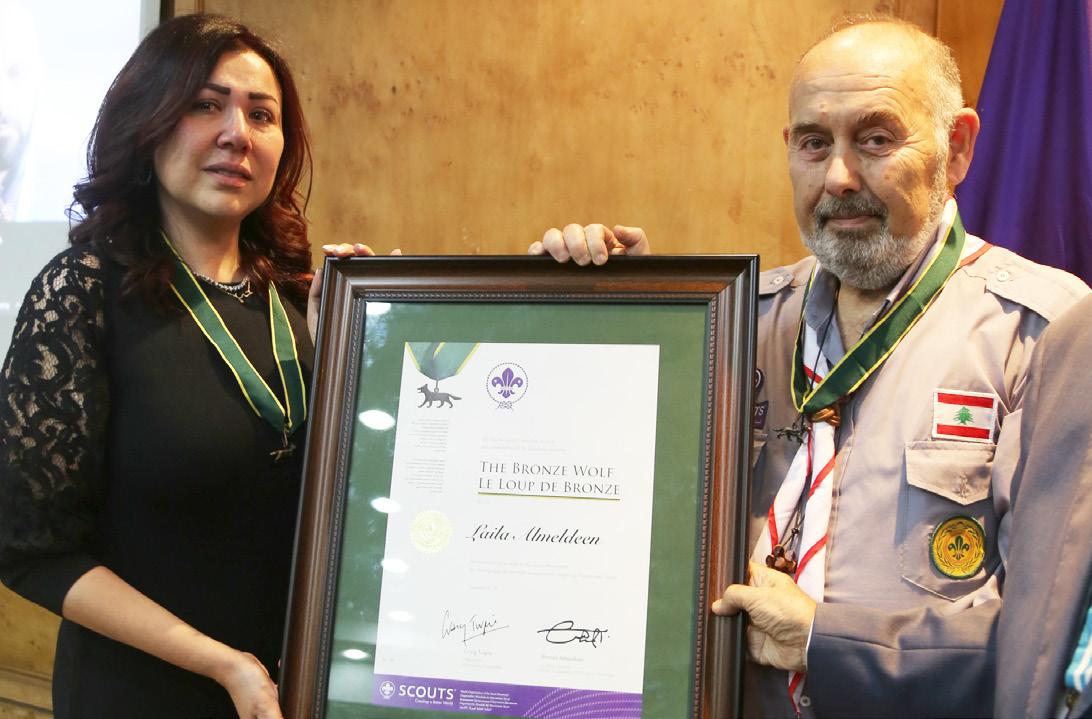
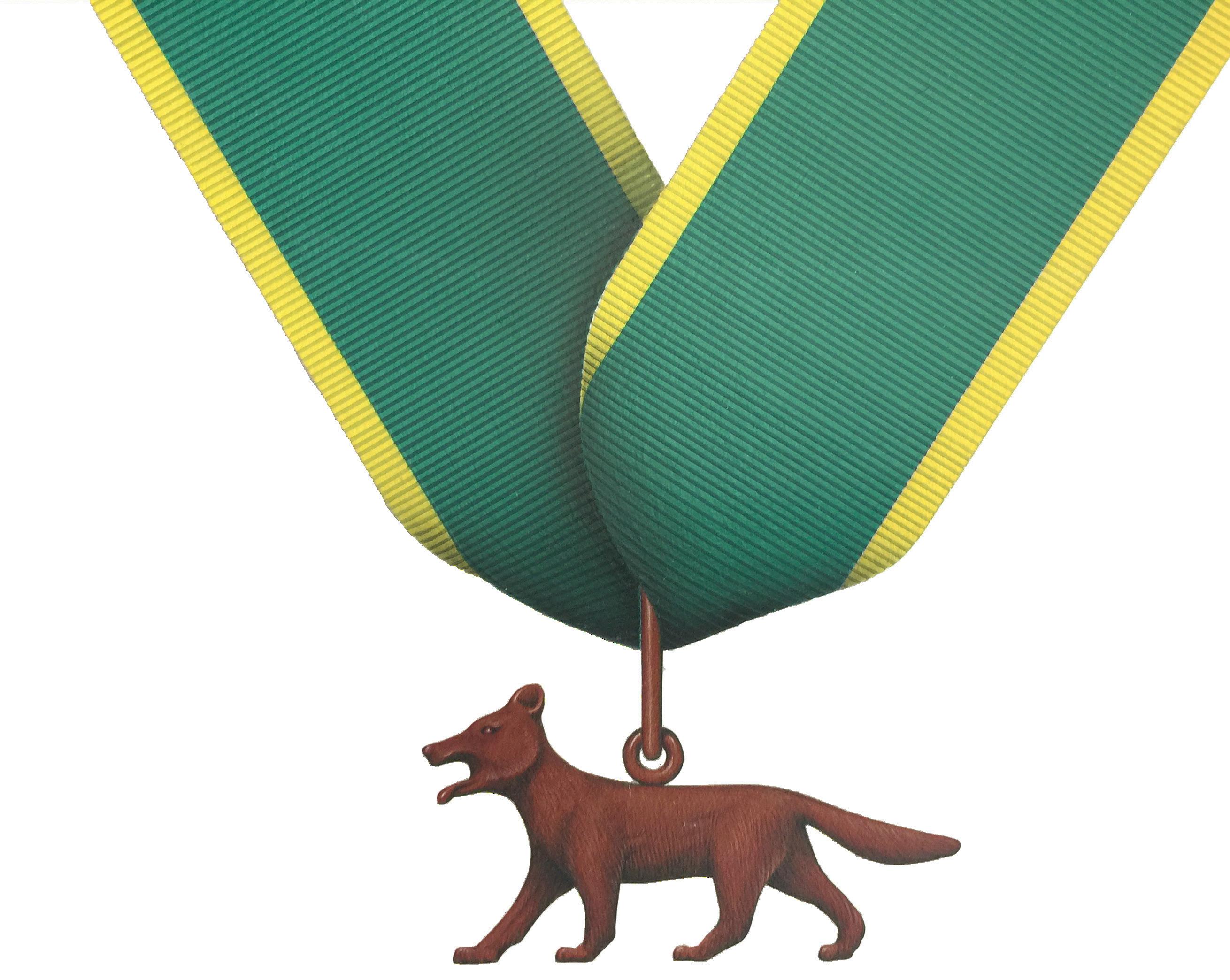
Mari Nakano, Japan
João Armando Gonçalves, Portugal
Karin Ahlbäck, Finland
Ian Langford-Brown, Australia
Brigitte Therivel, United States of America

Laila Almeldeen, Egypt
Jejomar Cabauatan Binay, Philippines
Daniel Ownby, United States of America
Paul Parkinson, Australia
Anne Whiteford, United Kingdom
Göran Hägerdal, Sweden

David Wynne Jones, Australia
W. Scott Sorrels, United States of America
Walter Hofstetter, Switzerland
Stephen Peck, United Kingdom
Peter Hyman, United States of America
Héctor Omar Carrer, Argentina



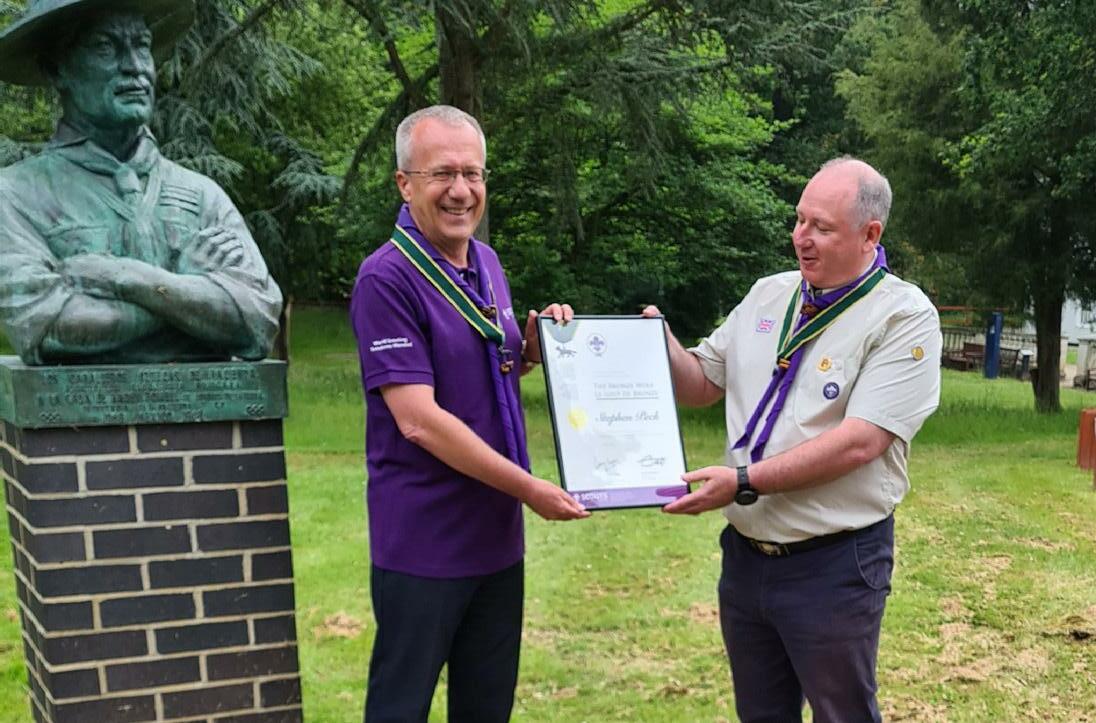
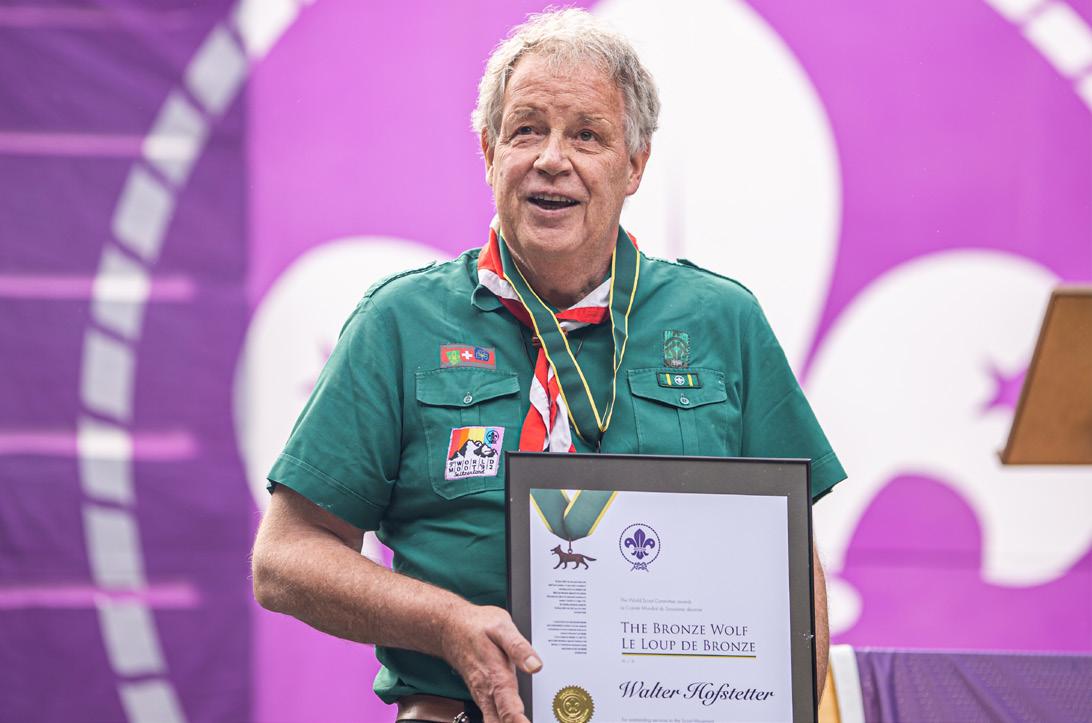
The Scout Movement acknowledges the contributions of the following WSC members, World Scout Bureau staff and Bronze Wolf Awardees who have gone home since the 41st World Scout Conference:
HRH Grand Duke Jean of Luxembourg
The Lord Robert Crause BADEN-POWELL, 3rd Baron Baden Powell, United Kingdom
Mr. Abdelwahab ABDELBAR, Egypt
Mrs. Laila Abdelsalam Aly ALMELDEEN, Egypt
Mr. John W. BERESFORD, United Kingdom
Ms. Pauline Marie BERGER, Switzerland
Mr. Victor BRENES, Costa Rica
Mr. Richard “Dick” BURDICK, United States of America
Mr. D. Kent CLAYBURN, United States of America
Mr. Marciano A. CRUZ, Philippines
Dr. Aly Aly EL-MOURSY, Egypt
Mr. Desmond J. FAY, Ireland
Sir William GLADSTONE , United Kingdom
Ms. Jocelyne GENDRIN-GUINEBAULT, France
Mr. Billy Piak Chiang GOH, Singapore
Mr. Felix Li Tai HO, Singapore
Mr. Amos ILANI, Israel
Mr. Leonard F. JARRETT, VE3MYF, Canada
Mr. Farid KARAM, Lebanon
Mr. Manzoor Ul KARIM, Bangladesh
Mr. Saiful Islam KHAN, Bangladesh
Dr. Eberhard von KOERBER, Germany
Dr. Helen LAIRD, United Kingdom
Mr. German Rocha MALDONADO, Plurinational State of Bolivia
Mr. Thomas S. MONSON, United States of America
Mr. Abdelhamid OKASHA, Egypt
Shri G. Ranga RAO, India
Mrs. Sumon SAMASARN, Thailand
Mr. Abdoulaye SÈNE, Senegal
Mrs. Blanche-Marie SERVAS, France
Mr Jim SHARP, Switzerland / United Kingdom
Mr. Sergey TSURKANOV, Ukraine
Mr Gerald VOROS, United States of America
Dr. William WELLS, Australia
Mr. Robert “Bob” WILMES, France
Mr. Shieh YOU-HWA, Scouts of China
Detailed analysis of the current membership of the worldwide Scout Movement can be found in the 2021 WOSM Membership Report, available online at www.scout.org/membership-report

As part of constitutional membership requirements, all NSOs are required to submit an annual report including census numbers to WOSM.
• The below list represents the most recent census data at time of publication, submitted by NSOs in the course of 2020 as declaration of their membership of 31 December 2019.
• NSOs which did not submit census data in 2020 are marked with an * in the table and were included with their most recent census declaration on record.
• Solomon Islands is not included in this list as it only gained WOSM membership in June 2021.

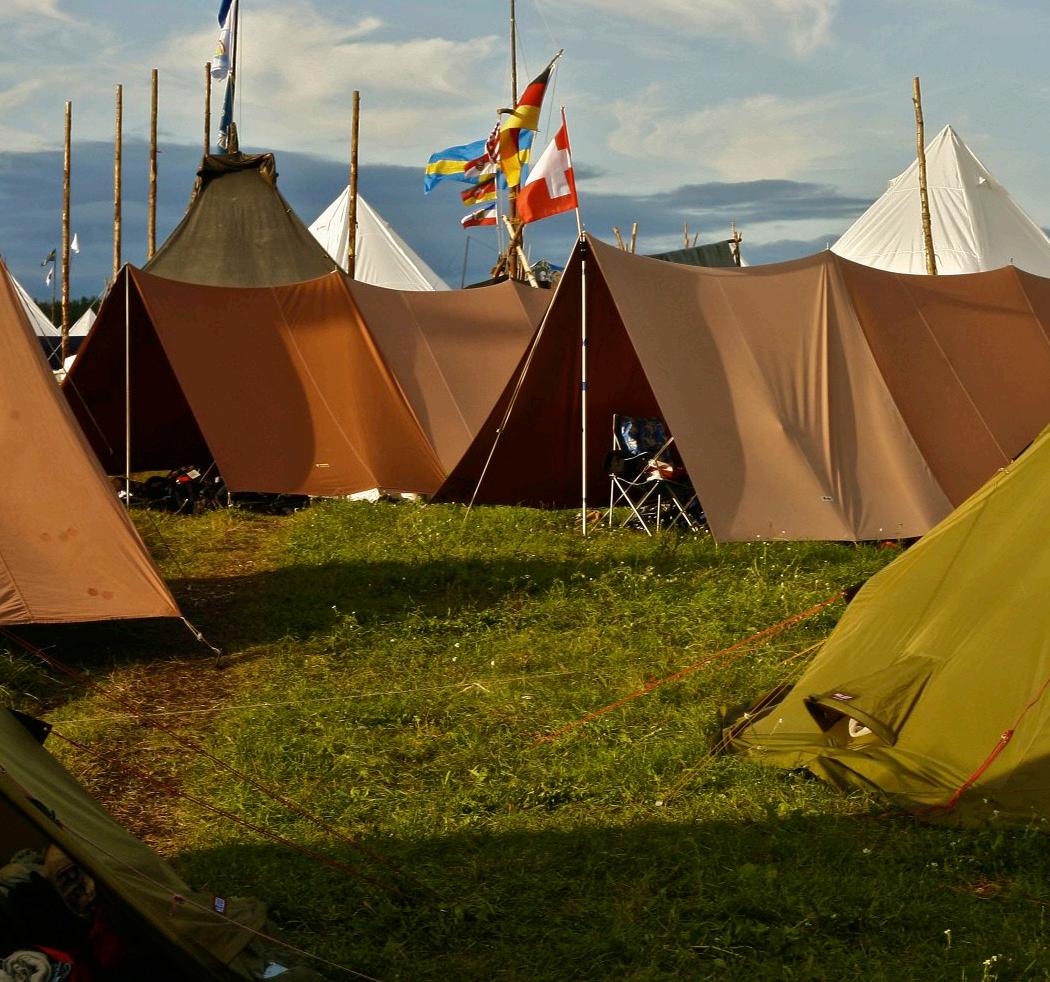
The stack column charts show the World Scout Bureau’s financial operating income and expenses over the last three trienniums since the 39th World Scout Conference in Brazil. They consists of nine audited financial year results and a current year 2020-2021 last estimates. For the purpose of facilitating comparison, the results of the extended year 2020-2021 has been excluded. The Bureau has registered an audited surplus $1,064,000 USD as compared to the corresponding audited surplus of $647,000 USD during the triennium 2014-2017 and an audited deficit of $65,000 USD in the triennium 20112014 respectively.
The Bureau’s total operating income in this triennium recorded a decline of 11% (~ $2.7 million USD) as compared to the last triennium. The decrease is mainly attributed to a 13% lower annual operating grant from the World Scout Foundation (WSF), and a 10% decline in WOSM fee collection from Member Organizations.
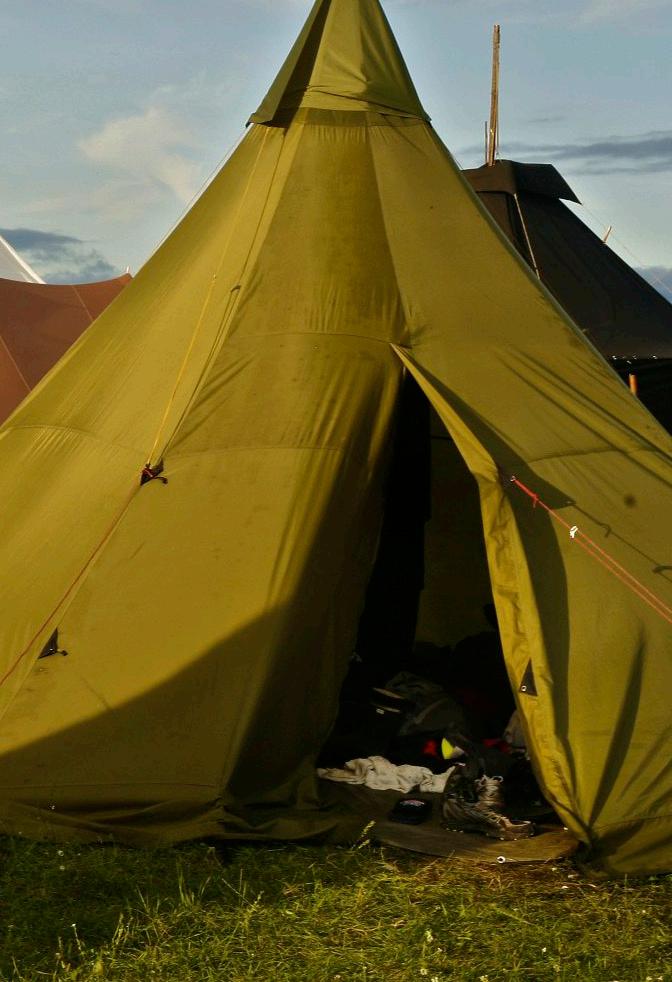
WOSM fees and WSF grants however continue to remain as the two solid income sources of the Bureau. Both WOSM fees and WSF grants contributed 59% and 40% respectively towards the Bureau’s total Yearly Operating Plan operating income. For more information, please refer to Chart 1 on the operating income trend. The 11% decrease of the Bureau’s total operating income in this triennium has inevitably reduced the allocations to Regional and Global Support Centres to a proportion of 40% and 60% respectively, with the Global Support Centre cushioning a higher reduction in relation to the 2011-14 triennium. For more information, please refer to Chart 2 on the operation expense trend.




The writing of this report is the result of the collective effort of the teams of the World Scout Bureau and the World Scout Committee.
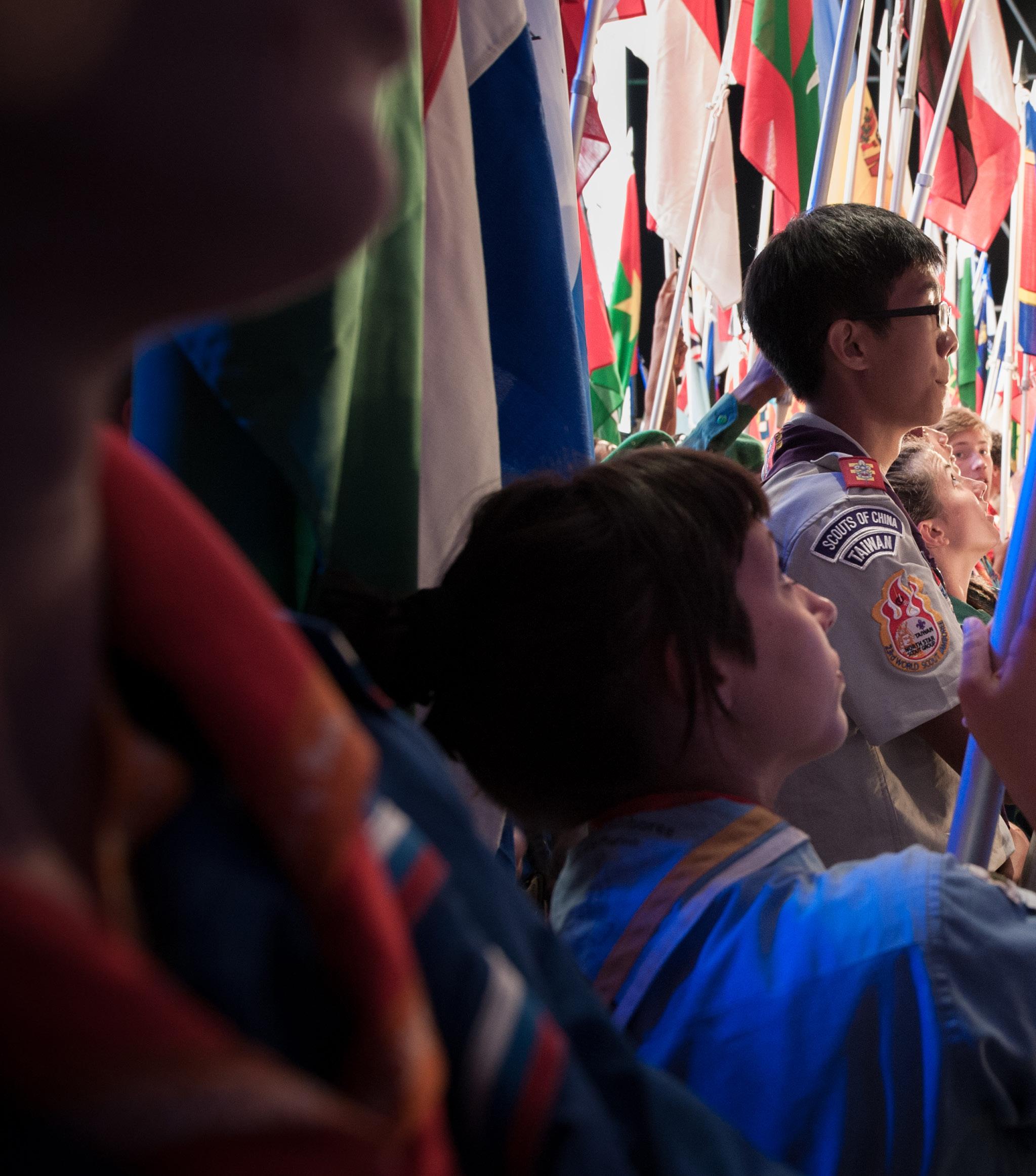
Photography:
Ronald de Beer
Geroge Michel Botros
Haja Faniry
Dolores Garcia
KISC
Huyung Kyu Jang
Enrique León
Nancy León
Ahmed Mohamed Hassan
Nelson Opani
Victor Ortega
Olivier Ouadah
Lynn Peck
Nuno Perestrelo
Jean-Pierre Pouteau
John Silva
Hiang-Boon Thian
Yoshi Simizu
Art Direction & Design:
Victor Ortega
Layout Brand Ripe
We would like to thank the many National Scout Organizations and photographers that have contributed images from around the world during the past triennium.
